Latest updates: all new material added to the site

EU Border Software Vulnerable to Hacks, Confidential Reports Warn
Category: News
Bloomberg, 2 July 2025.

EU states demand more migration control cash in next long-term budget
Category: News
EU member states want significantly more money allocated to migration control in the bloc’s next long-term budget, set to run from 2028 to 2034. This is according to a document produced by the Polish EU Council Presidency and circulated on 12 June. Spending on external migration control from current budgets is already above expectations.

UK: Undercover policing: new archive sheds light on the spycops scandal
Category: News
In 2010, a police spy was uncovered in the UK environmental movement. His exposure set off a chain of events that led the government to announce an official Undercover Policing Inquiry. Now, a new archive gathers all the documents released by that inquiry since public hearings began in 2020. It is designed to help activists continue the fight against political policing and state secrecy, and to push for transparency and accountability.

Police racism and criminalisation across Europe increasingly fuelled by digital 'prediction' and profiling systems
Category: News
London, 30 June 2025 – The civil liberties organisation Statewatch has published a report that reveals how police and criminal legal system authorities across Europe are using data-based, algorithmic and AI systems to ‘predict’ where crimes may occur and profile people as criminals, despite the EU’s apparent ban on so-called ‘predictive policing’ systems in the Artificial Intelligence Act.
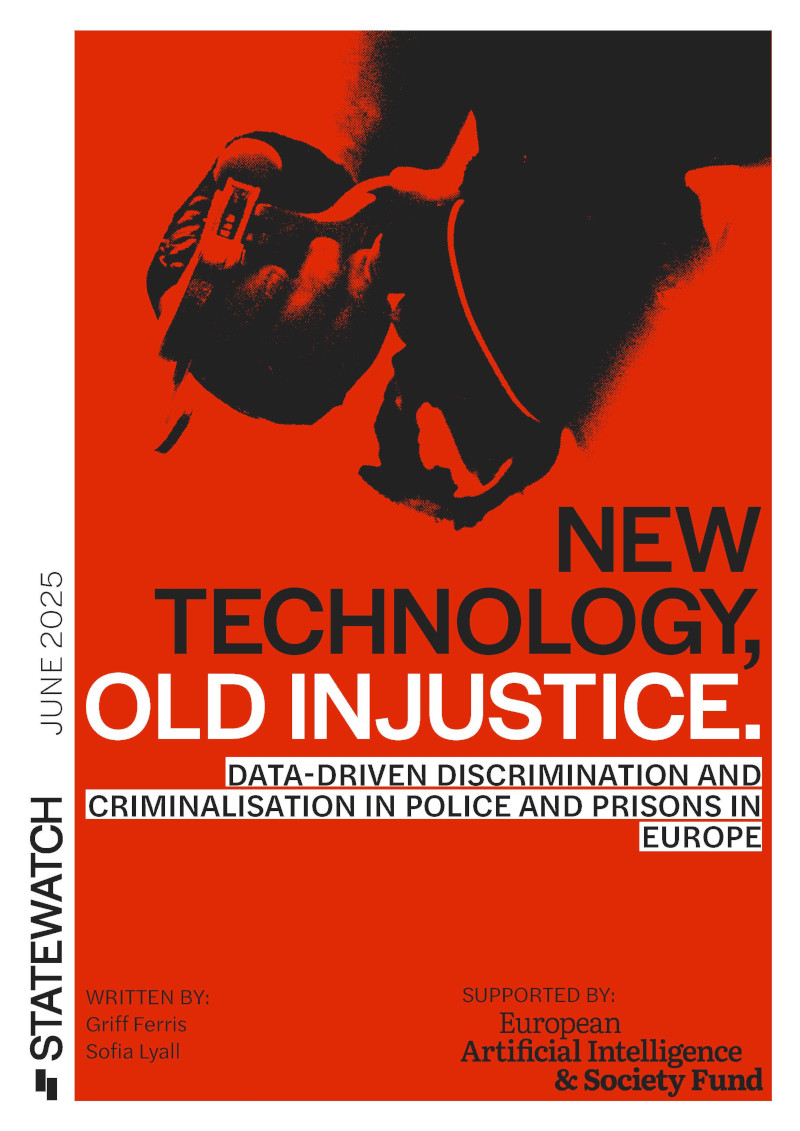
New Technology, Old Injustice: Data-driven discrimination and profiling in police and prisons in Europe
Category: Publications and reports
Police and criminal legal system authorities across Europe are increasingly using data-based systems and tools to ‘predict’ where crime will occur, to profile people as criminals and to assess the ‘risk’ of crime or criminality in the future.

UK: Electronic tagging: the normalisation of a “fascist or totalitarian” technology
Category: News
Electronic tagging has long been a controversial means of monitoring and restricting the movement of people outside of prisons. The British government is expanding the use of electronic tagging against people with criminal convictions, asylum seekers and migrants. A report from 1989, held in the Statewatch Library & Archive, shows remarkably fierce opposition to the practice from what might seem an unlikely source: the Prison Officers’ Association.
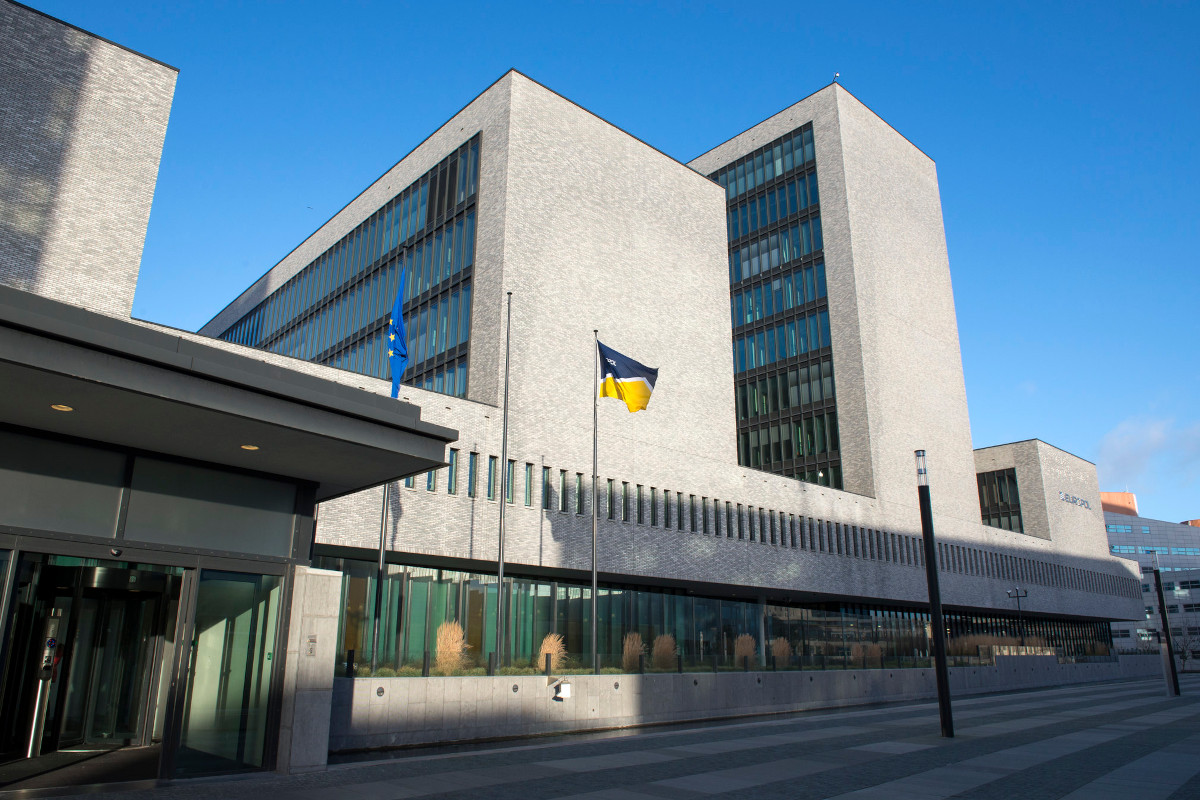
Activist demands compensation from Europol for illegal surveillance
Category: News
A Dutch political activist last week filed a legal complaint with EU police agency Europol, seeking compensation for the unlawful processing and handling of his personal data. The move is likely to lead to litigation at the European Court of Justice to determine Europol’s liability. This case could help clarify the rights of individuals seeking redress against Europol’s growing surveillance and data-gathering efforts.

EU under pressure to cancel data adequacy agreement with Israel
Category: Open letter
Israel's "combination of legal reforms, unchecked intelligence access, and the operational deployment of EU-linked data in repressive practices further undermines the credibility of Israel’s adequacy status," warns a letter to the European Commission signed by 17 organisations, including Statewatch.

"We must build a different future while we can": collective statement calls for urgent change of course
Category: Statement
A declaration coordinated by the Palestinian Institute for Climate Strategy ties together the crises of border violence and refugee deaths at sea, extractivism and fossil fuel dependence, militarism, Big Tech and corporate power, the genocide in Palestine, and environmental destruction in the Mediterranean. It makes an urgent call for a transformative social, environmental and political alternative.

New report examines Algeria's role in the European border regime
Category: News
A new report looks at the way the Algerian government has increased its involvement in border control initiatives promoted by European governments, after decades of reluctance to do so.
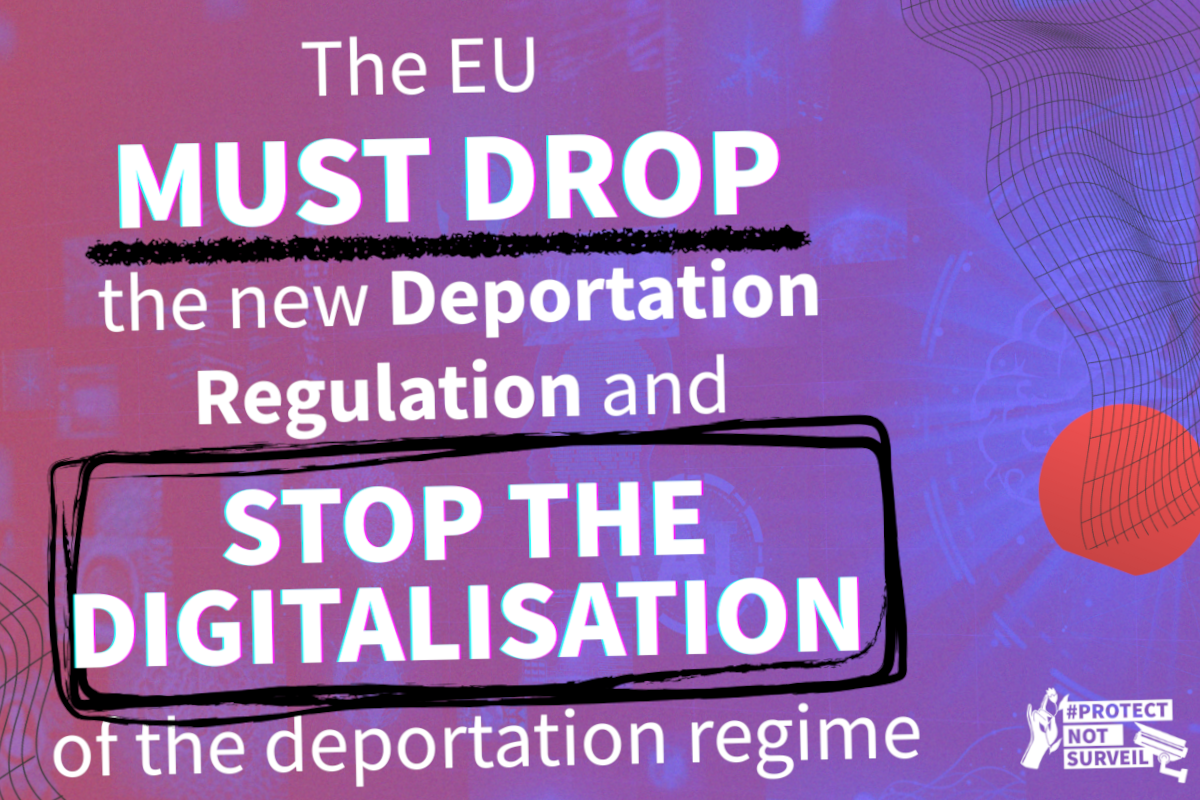
EU: Proposed deportation law fuels "far-right narratives" and should be withdrawn, says letter
Category: Open letter
EU lawmakers should drop the proposed deportation Regulation, says an open letter signed by 12 members of the #ProtectNotSurveil coalition, including Statewatch. The letter warns that the proposal will violate peoples' rights through an expansion of the EU's digital surveillance and control infrastructure.
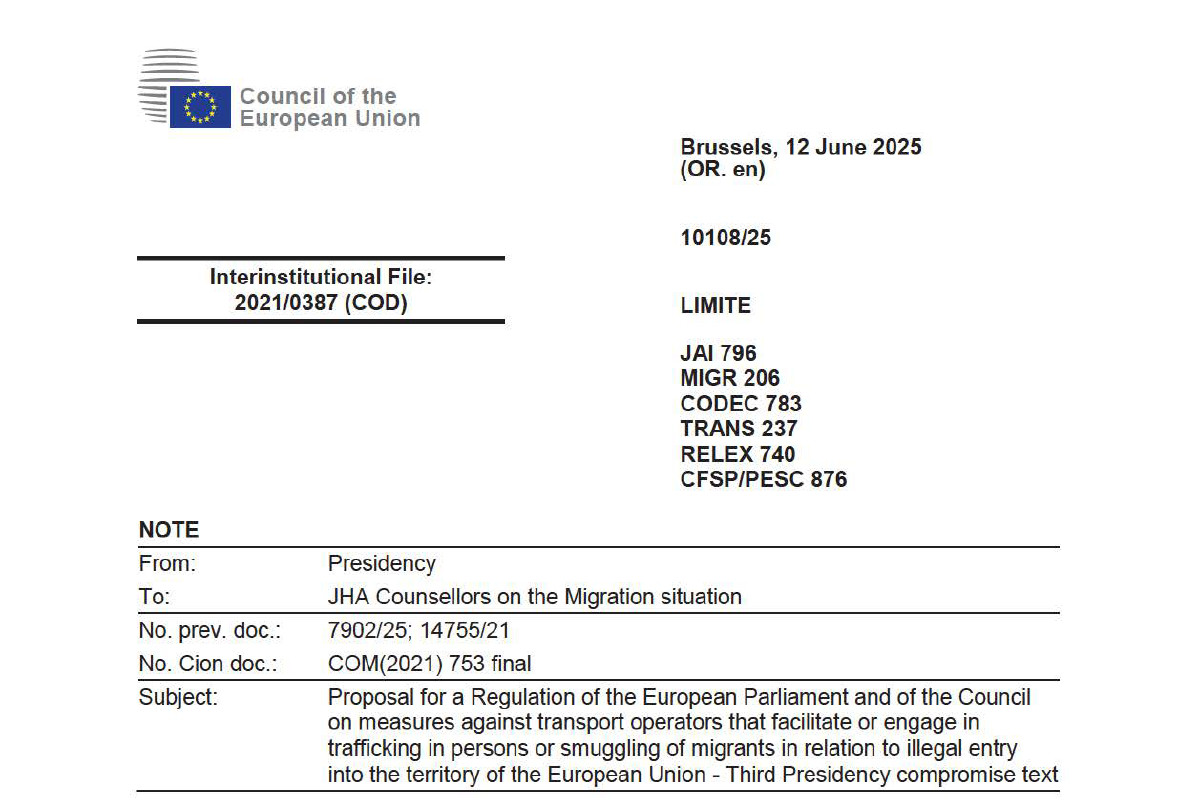
Document: EU measures against transport operators involved in migrant smuggling
Category: Document
The latest Polish Council Presidency draft of the proposed Regulation "on measures against transport operators that facilitate or engage in trafficking in persons or smuggling of migrants". If a company were deemed to be engaged in those activities, the EU would be able to suspend port visitation rights, road or rail transportation licences, or to limit the scope of existing licences.

Artificial intelligence, artificial security: Digital technologies and authoritarian politics
Category: Events
Join Statewatch and the Collaborative Research Center for Resilience to discuss the nexus between state power, digital technologies and security politics in Europe and the USA.
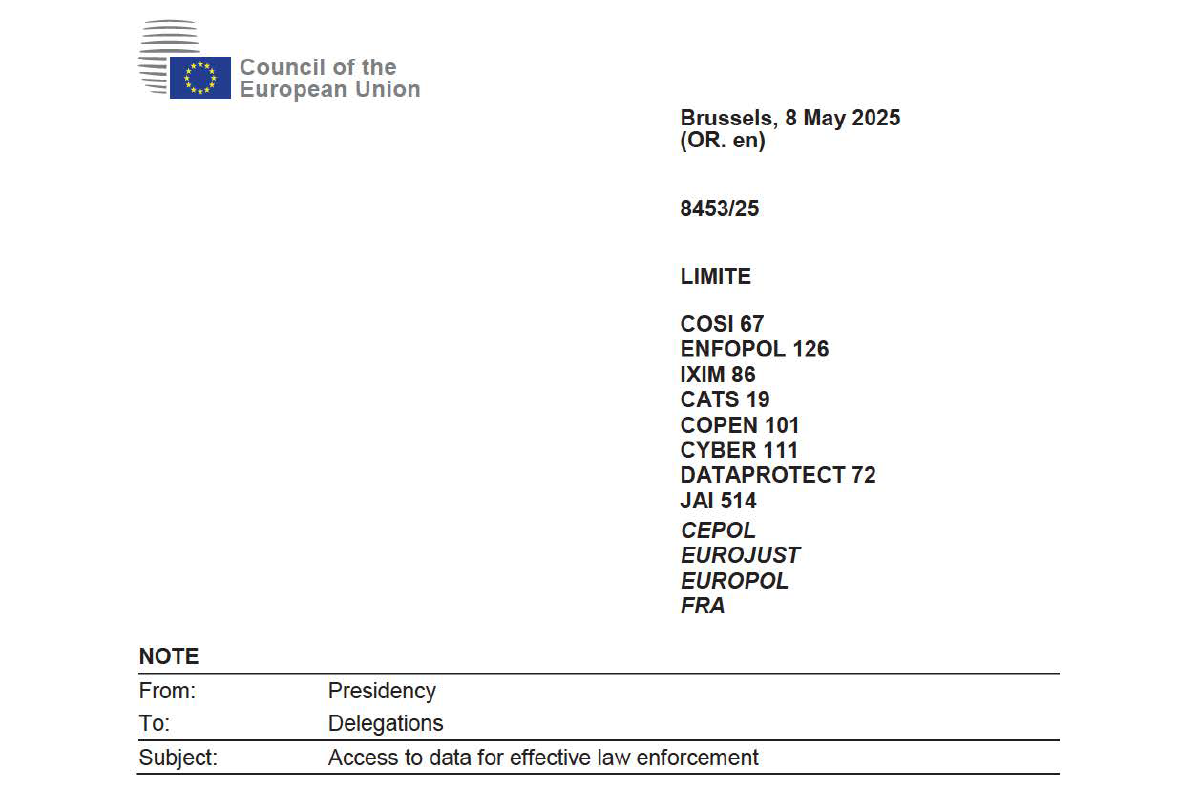
Document: Access to data for effective law enforcement
Category: Document
The Council of the EU's proposed priorities for law enforcement access to data, covering: measures to be implemented immediately; priorities for the European Commission's upcoming "roadmap to ensure lawful and effective access to data"; and ideas for ways to "foster a constructive public discourse."

Longstanding failings in police databases likely to worsen under new deportation law
Category: News
The EU’s new deportation law will expand a database that has long led to abuses and rights violations, particularly in relation to the right to data protection.

Europe urged to revoke UK's data adequacy status
Category: Press coverage
Computing, 5 June 2025.

European civil society calls for the protection of the freedom flotilla and an end to the Gaza blockade
Category: Statement
A vessel attempting to carry medicine, food, and infant supplies to Gaza is currently sailing across the Mediterranean. A previous attempt at such a voyage was ended following an attack by armed drones. A letter so far signed by 220 organisations and 4,700 individuals calls on European and other governments to take action to ensure the protection of the vessel, and an end to the siege and bombing of Gaza: "The fate of millions of people in Gaza and the humanitarians trying to support them depends on our collective ability to respond with strength and determination."
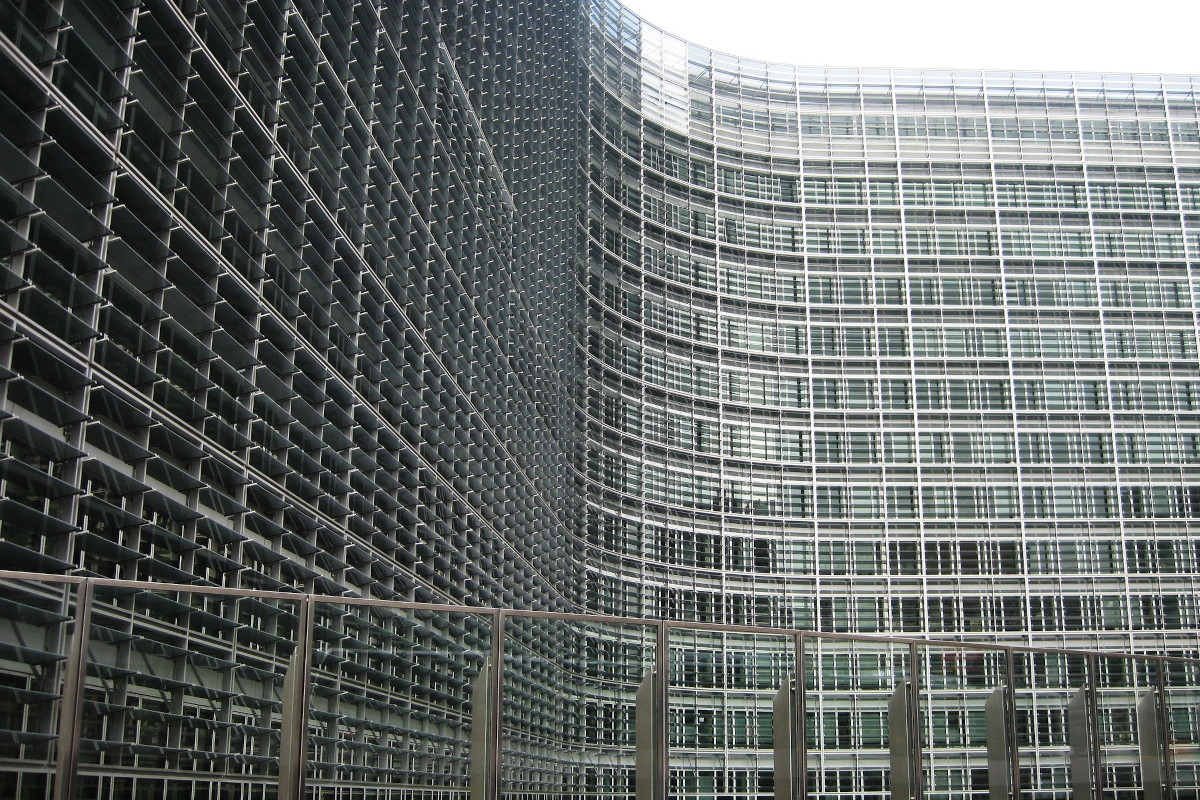
EU states failing to uphold immigration data safeguards amidst renewed push for deportations
Category: Analysis
EU member states are violating laws designed to protect individuals from data abuse by police and immigration authorities, according to an official report. This should be a major cause for concern, given plans to introduce new laws to deport more people and ban them from returning to the EU. However, the report does not even name the countries that are failing to follow the law, posing massive challenges for democratic scrutiny and accountability.

Border externalisation: more EU support for violence in North Africa, joint EU-UK plans, and more
Category: News
Racist violence in North Africa: EU governments know exactly what is happening, and plan to continue support /// EU and UK consider joint external migration control projects /// Africa Frontex Intelligence Community: documents released /// EU officials talk "asylum policy and homeland security" at European Police Congress

How the EU coordinates the outsourcing of migration control
Category: News
It is no secret that the EU is seeking greater cooperation from non-EU states in its migration control agenda. Less is known, however, about precisely how that cooperation is organised and encouraged. A document produced last year and released in response to an access to documents request from Statewatch provides some further details on the topic, pointing to avenues for advocacy, research and investigation.
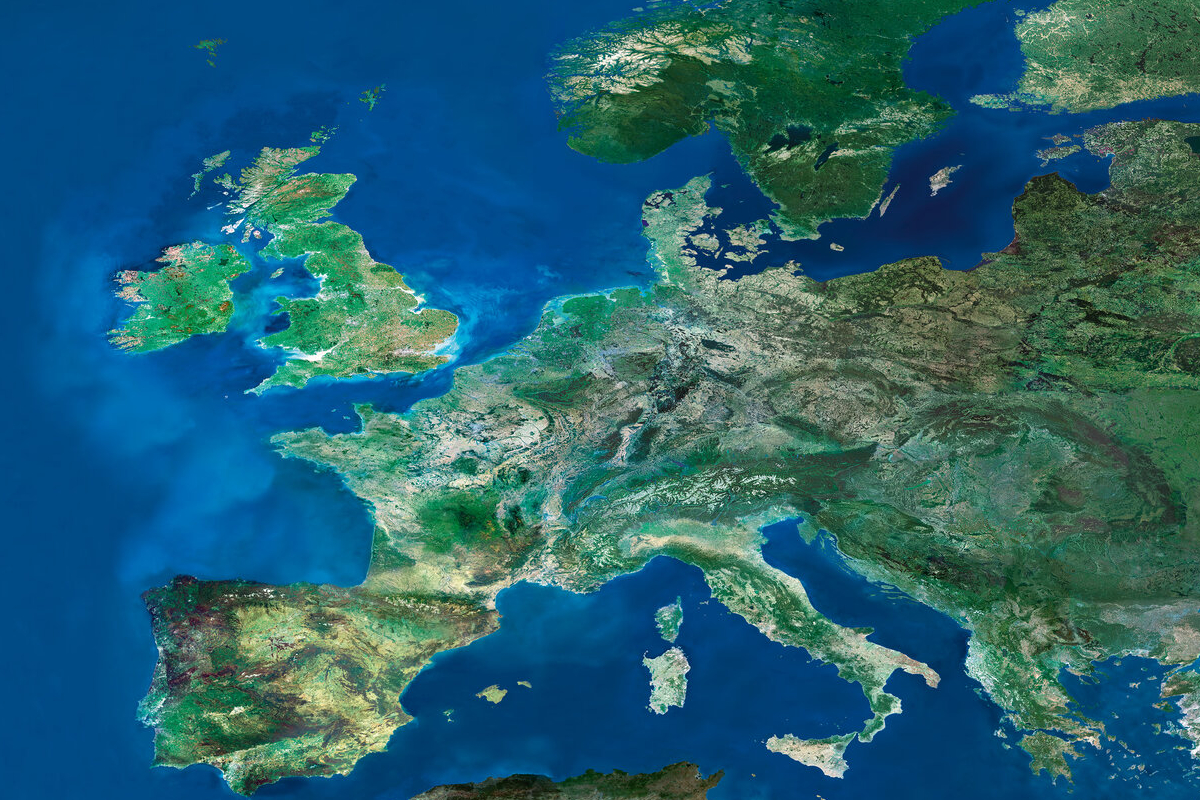
UK undermining data protection rights and putting EU agreements at risk
Category: Open letter
Changes to UK law will undermine data protection standards, posing risks to individual rights and leading to calls for the EU to review the "adequacy decisions" that deem the UK a safe destination for transfers of personal data. A letter from seven organisations, including Statewatch, calls for the EU to urgently reassess the UK's adequacy status, "to protect fundamental rights and uphold its credibility as both the guardian of the EU’s legal order and a global leader in digital rule-making." However, the EU is also currently seeking to downgrade data protection standards, for the same purpose: economic deregulation.

Algeria: Migrants face raids, mass expulsions, and hate speech
Category: Statement
In recent years, there has been an alarming rise in hate speech and persistent incitement against migrants from sub-Saharan Africa in Algeria. Racist rhetoric is widely circulated in some media outlets and on social media, underpinning a general climate of marginalisation and discrimination. A joint letter signed by 20 organisations from Europe and Africa calls on the Algerian authorities to halt arbitrary mass expulsions of migrants, and to end policies that criminalise civil society organisations standing in solidarity with them.

"Deep concern" over EU's plan "to weaken or circumvent encryption"
Category: Open letter
The European Commission should reinforce and support that enable private communication, says a joint letter signed by almost 90 organisations, companies and technical experts. The Commission's recent Internal Security Strategy says there is a need to "enable law enforcement authorities to access encrypted data in a lawful manner," alongside a host of other proposals on policing and security. Statewatch is a signatory of the letter.

Turkey: Political prisoners must be freed as part of drive to end prison overcrowding
Category: Statement
A statement signed by 12 organisations, including Statewatch, calls on the Turkish government to release political prisoners as part of a push to stop prison overcrowding. Political prisoners are currently exempt from the scheme due to anti-terrorism laws passed in 2020 and 2023. Those affected include lawyers, journalists, politicians, artists, judges and prosecutors, and human rights defenders.
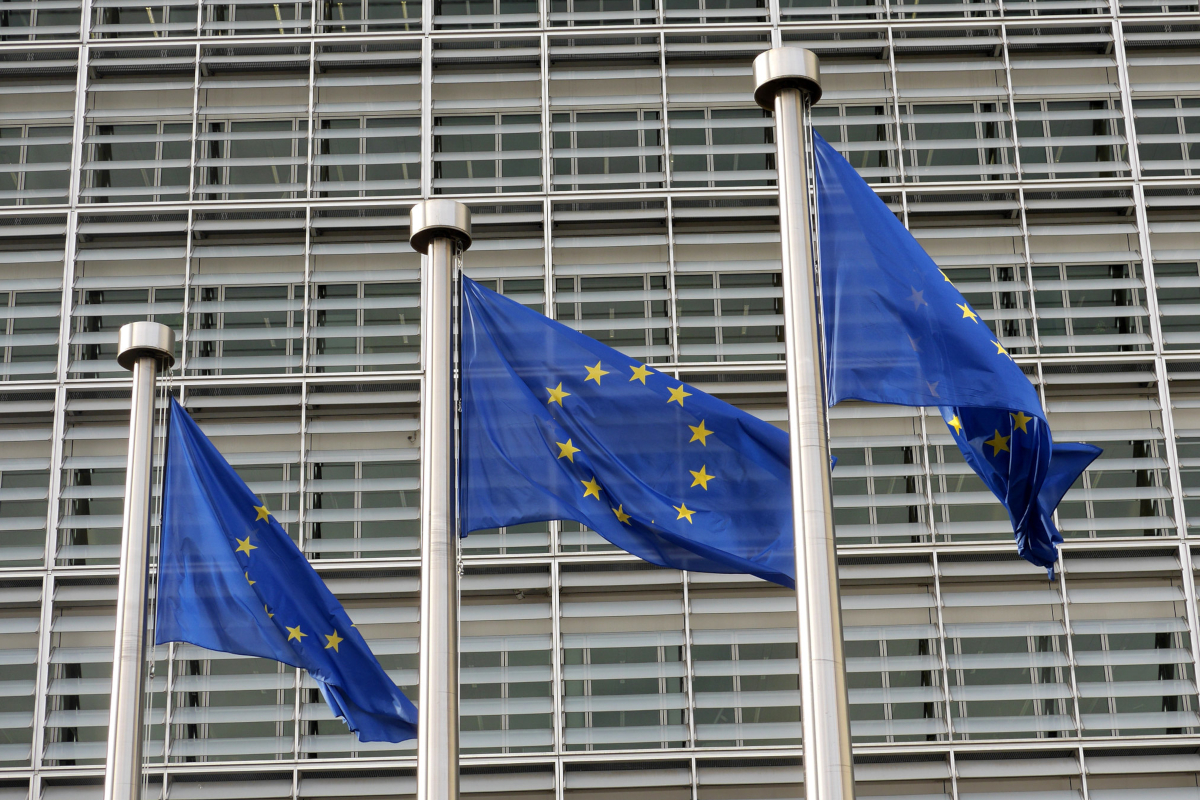
EU: Business deregulation plans will undermine data protection rights
Category: Open letter
More than 120 organisations, including Statewatch, are calling on the EU to keep the General Data Protection Regulation in place, as the European Commission announces plans to remove certain provisions of the law in the name of removing 'red tape' for businesses. The signatories express concern that the proposed changes "could instead roll back key accountability safeguards and with them, the accountability principle itself."

IOM’s digital tool aims to speed up migrant removals, but at what cost?
Category: Press coverage
The New Humanitarian, 18 May 2025.

Deportation camps: EU member states want to “prevent judicial scrutiny”
Category: News
Agreements between the EU and non-EU states on so-called “return hubs” should be “framed in flexible way” to “prevent judicial scrutiny.” This is according to a document produced by the Polish Presidency of the Council in February, obtained and published by Statewatch.

Data protection in immigration and asylum: Rights and opportunities for redress
Category: Events
Do you work with people in immigration or asylum proceedings? Do they face problems of secrecy and lack of access to information about their case? Would you like to know more about how data protection law can be used in migration and asylum cases? Join us for an online workshop on 8 May.

France: Flaws and injustices of 'predictive policing' laid bare in new report
Category: News
As part of a European initiative coordinated by Statewatch, La Quadrature du Net has published an English translation of its report on the state of predictive policing in France. In light of the information gathered, and given the dangers these systems carry when they incorporate socio-demographic data as a basis for their recommendations, La Quadrature calls for a ban.

EU’s secretive “security AI” plans need critical, democratic scrutiny, says new report
Category: News
The EU is secretively paving the way for police, border and criminal justice agencies to develop and use experimental “artificial intelligence” (AI) technologies, posing risks for human rights, civil liberties, transparency and accountability, says a report published today by Statewatch.
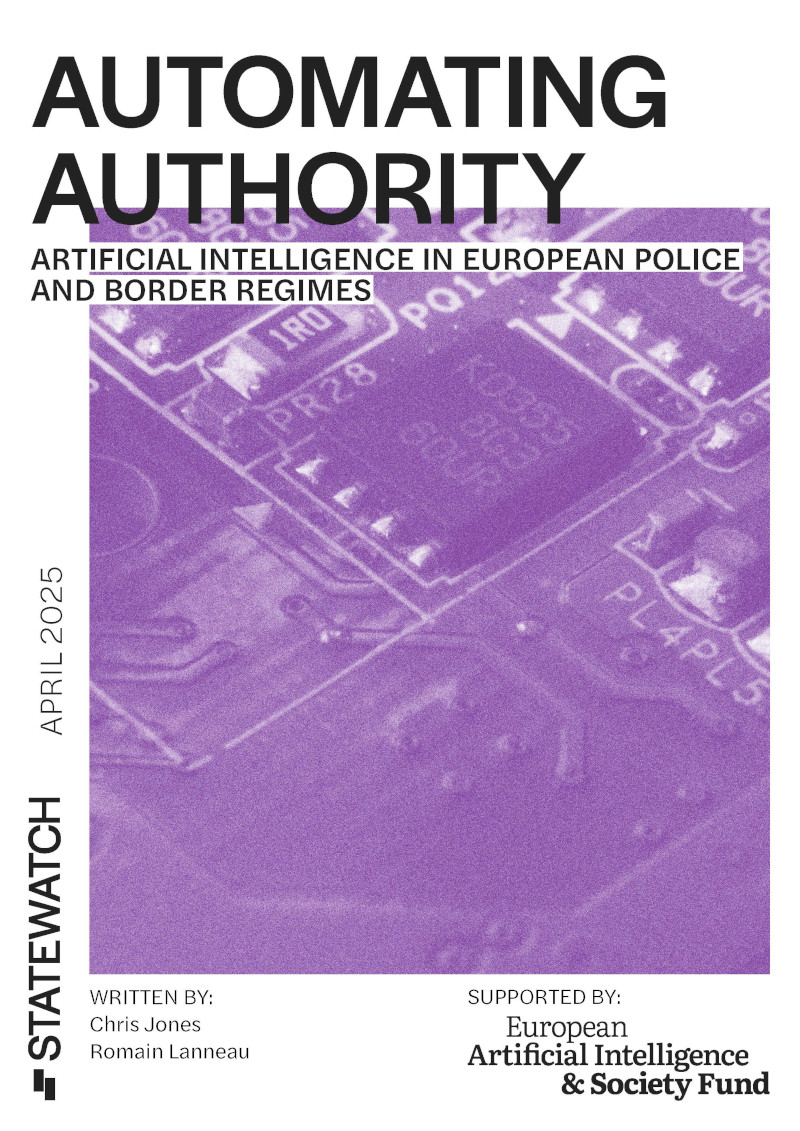
Automating Authority: Artificial intelligence in European police and border regimes
Category: Publications and reports
Artificial intelligence (AI) technologies are being embedded into everyday life by powerful actors, primarily motivated by profit. Police, border and criminal justice agencies are also looking to take advantage of the new powers AI offers for “security” policies, at both national and EU level. The EU is creating new infrastructure, away from the public eye, to allow the swift development and deployment of “security AI.” This will also reinforce the existing discrimination, violence and harm caused by policing, border and criminal justice policies. Exposing and understanding this emerging security AI complex is the first step to challenging it.

France: How the “war on drugs” is turbo-charging surveillance powers
Category: Analysis
A French law is set to unleash invasive new police surveillance powers. Fuelled by absurd rhetoric, the government is proposing what has been dubbed “the worst surveillance law in the EU”. Experts warn that it will fail to achieve its aims. However, the broad scope of the law means the powers can be used against migrants, their supporters, and to crack down on dissent. As official reports have made clear, dealing with drug use and trafficking requires long-term, low-tech policies – not high-tech police surveillance powers.
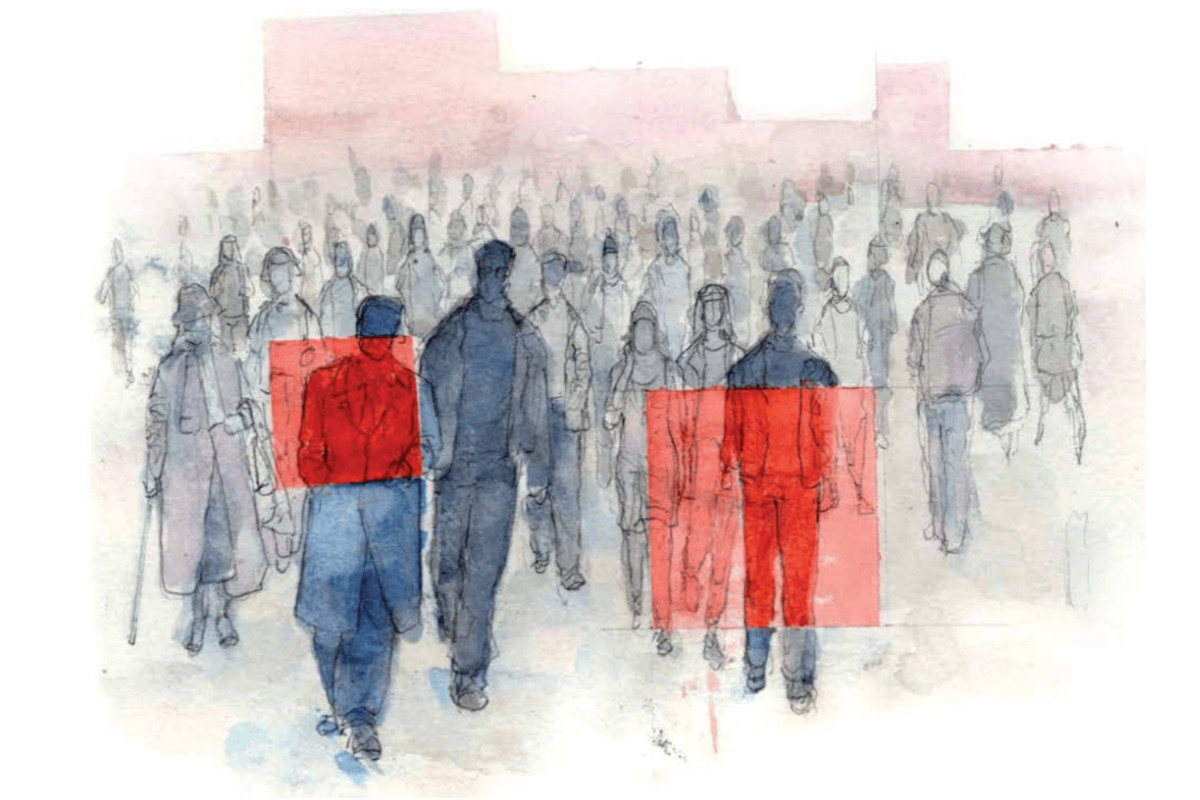
Belgium: New report calls for a ban on 'predictive' policing technologies
Category: News
Following an investigation carried out over the past two years, Statewatch, the Ligue des droits humains and the Liga voor mensenrechten, jointly publish a report on the development of ‘predictive’ policing in Belgium. There are inherent risks in these systems, particularly when they rely on biased databases or sociodemographic statistics. The report calls for a ban on ‘predictive’ systems in law enforcement.

UK: Over 1,300 people profiled daily by Ministry of Justice AI system to ‘predict’ re-offending risk
Category: News
Over 20 years ago, a system to assess prisoners’ risk of reoffending was rolled out in the criminal legal system across England and Wales. It now uses artificial intelligence techniques to profile thousands of offenders and alleged offenders every week. Despite serious concerns over racism and data inaccuracies, the system continues to influence decision-making on imprisonment and parole – and a new system is in the works.
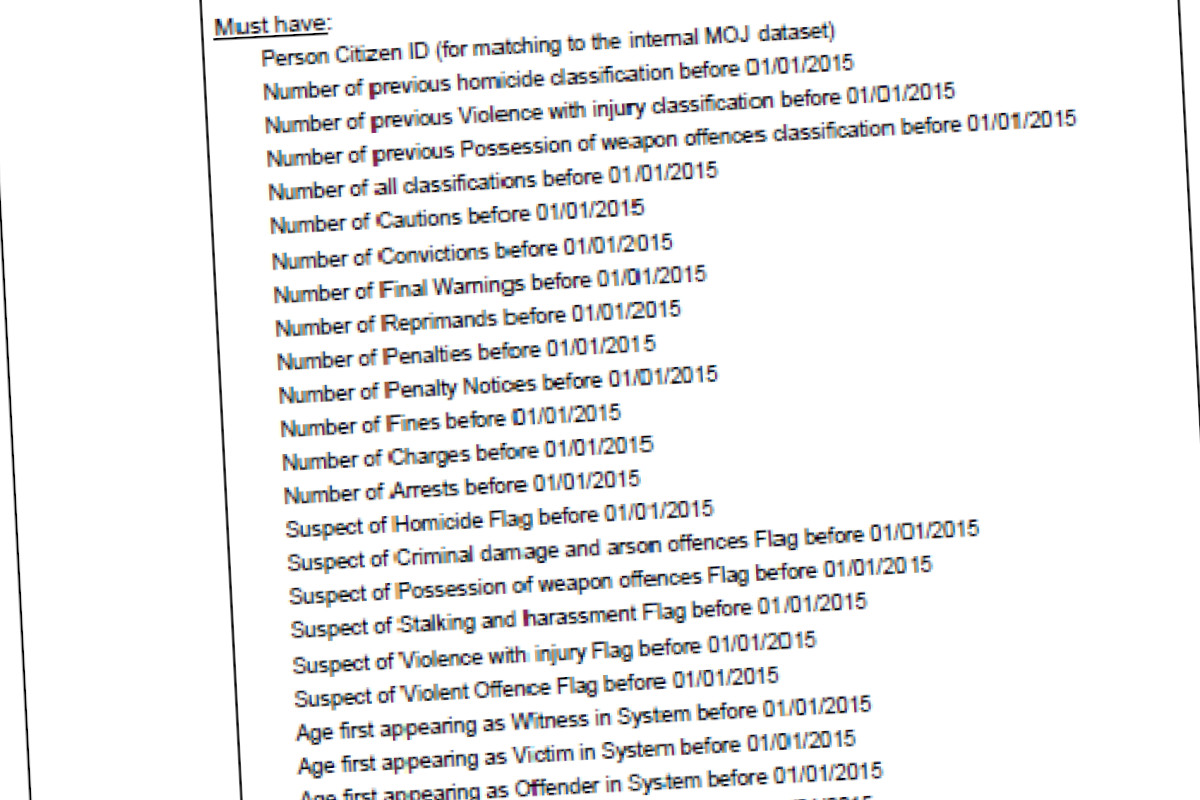
UK: Ministry of Justice secretly developing ‘murder prediction’ system
Category: News
The Ministry of Justice is developing a system that aims to ‘predict’ who will commit murder, as part of a “data science” project using sensitive personal data on hundreds of thousands of people.

UK government wants to legalise automated police decision-making
Category: News
A proposed law in the UK would allow police decisions to be made solely by computers, with no human input. The Data Use and Access Bill would remove a safeguard in data protection law that prohibits solely automated decision-making by law enforcement agencies. Over 30 civil liberties, human rights, and racial justice organisations and experts, including Statewatch, have written to the government to demand changes.

UK creating ‘murder prediction’ tool to identify people most likely to kill
Category: Press coverage
The Guardian, 8 April 2025.

Swedish parliament urged to reject law that would "greatly undermine security and privacy"
Category: News
The Swedish parliament is benig urged to reject a law that would "force companies to store and provide law enforcement with access to their users’ communications, including those that are end-to-end encrypted." The law, designed to strengthen police powers, would "create vulnerabilities that criminals and other malicious actors could readily exploit," says the letter. More 230 organisations and individuals from more than 50 countries have signed the letter, including Statewatch.
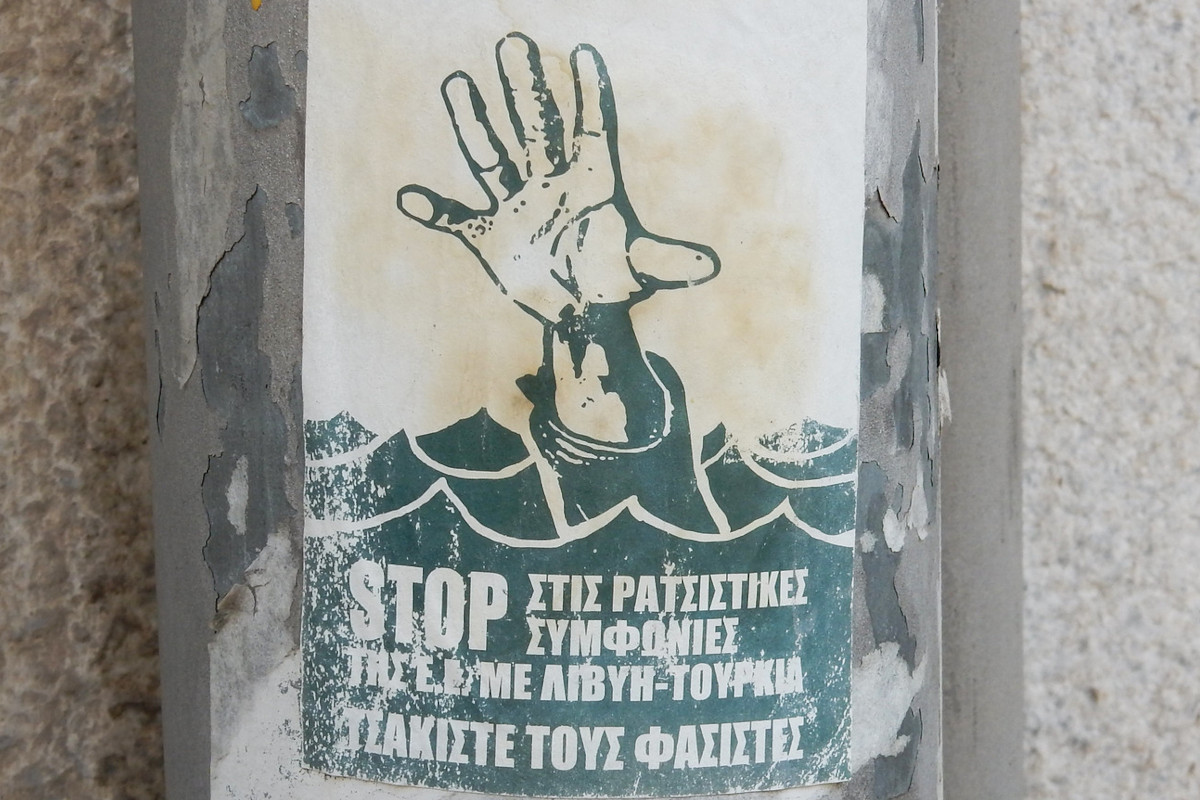
Impunity for war criminals and the European migration strategy in Libya
Category: Analysis
New leaked documents show that the EU’s “border assistance mission” in Libya is slowly expanding its work and is entering a “consolidation phase”. The efforts to “stabilise” the North African country include increased cooperation with Frontex. Meanwhile, in January, a wanted war criminal was arrested in Italy, only to be released and flown back to Libya on a government jet. This act made Italy and the EU’s reliance on third-state actors to maintain their migration policy clear. Politicians in Europe consider their migration policies so essential that they are willing to undermine the so-called rules-based international order to maintain them.
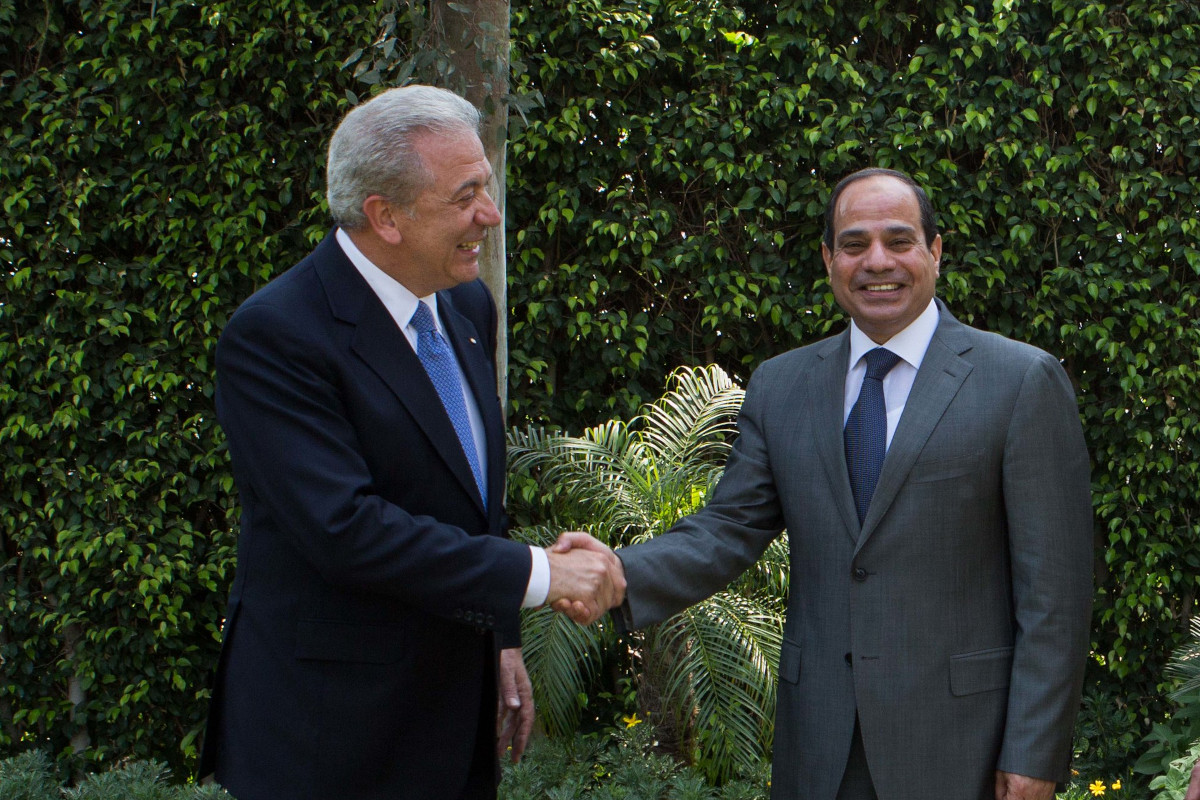
European support for Egypt: billions of euros for a dictatorial “partner” in migration control
Category: Analysis
A year ago, the EU and Egypt announced the launch of a “strategic and comprehensive partnership.” This comes with a €7.4 billion aid and investment package from the EU to Egypt. This article analyses this development in the context of regional changes, the ineffectiveness of “external solutions” to migration, and the impact of EU-Egyptian cooperation on human rights in Egypt. It argues that European support for Egypt underpins human rights abuses. Those abuses are then ignored or sidelined so that the EU can claim Egypt is a safe and reliable “partner” for managing migration.

Serbia: Mass protests continue despite government repression
Category: News
Almost 140 organisations from across Europe and beyond have expressed their solidarity with people in Serbia protesting against the government. An open letter condemns the Serbian government’s “effort to silence critical voices and suppress fundamental freedoms,” in response to nationwide protests sparked by the collapse of a train station. Statewatch has signed the letter.

"Größte Bedrohung": EU-Ratsspitze will anonyme SIM-Karten EU-weit verbieten
Category: Press coverage
Heise, 24 March 2025.

EU officials discuss banning anonymous use of mobile phones
Category: News
The Polish government has suggested new EU rules to ban the anonymous purchase of prepaid SIM cards for mobile phones.“The main threat associated with prepaid SIM cards is anonymity,” says a document obtained by Statewatch. Extensive research has found no evidence that bans on anonymous purchases of SIM cards contribute to reducing crime.

Call to reject new EU laws that "criminalise migrants and human rights defenders"
Category: News
An open letter to the EU demands action to end the criminalisation of migrants and those who stand in solidarity with them. More than 100 signatories, including Statewatch, condemn proposed reforms to EU laws on migrant smuggling and call for an urgent change of approach.

Film screening: Ultraviolence
Category: Events
Ultraviolence documents the struggles for justice by families of people killed by police in the UK. The screening is in support of the forthcoming People's Tribunal on Police Killings (PTPK). A speaker from the PTPK will be in attendance for a discussion session after the screening.

Italy: The end of the systematic denial of data protection rights?
Category: Analysis
Italy has been systematically denying people access to data about them stored in Europe’s largest policing and immigration database, statistics obtained by Statewatch show. Much of the data in question concerns entry bans and deportations orders. Knowing what information is stored is vital for peoples’ livelihoods and even their survival. EU institutions have known for years that mechanisms for the protection of individual rights were lacking. Now, victory in a long legal struggle may force the Italian state to comply with its obligations.

Northern Ireland: How a 1980s state killing cover-up is still relevant today
Category: News
A review of ‘Decades of Deceit: The Stalker Affair and its Legacy’ by Paddy Hillyard (Beyond the Pale Books, 2024).

From Malpensa to Tel Aviv: Italian police use Israeli software to spy on anti-deportation activsts
Category: News
In March last year, four people were arrested after stopping a deportation flight to Morocco leaving Milan's Malpensa airport. When they got their phones back from the police, they found a strange file – one connected with spying products designed by the Israeli firm Cellebrite.

Italian police are “misleading” people about Schengen entry bans, says internal EU report
Category: News
The Italian police are providing “misleading” information to people who ask whether there is a Schengen entry ban against them, says an internal EU report obtained by Statewatch. The document also says the country’s data protection authority cannot properly supervise the use of two huge EU databases.

EU: Digital and migrant rights groups call for "full rejection" of new anti-smuggling powers
Category: News
Two new laws against migrant smuggling should be rejected by EU legislators, says a position paper published today. The paper, by the #ProtectNotSurveil coalition, analyses two proposals: an update of a 20-year old law on criminal penalties for migrant smuggling; and new rules to give police agency Europol more powers. The approach adopted by the EU "will not provide the care and protection people need, but only aggravate the criminalisation and dehumanisation of people on the move," argues the paper. Statewatch is a member of #ProtectNotSurveil and supported the drafting of the paper.
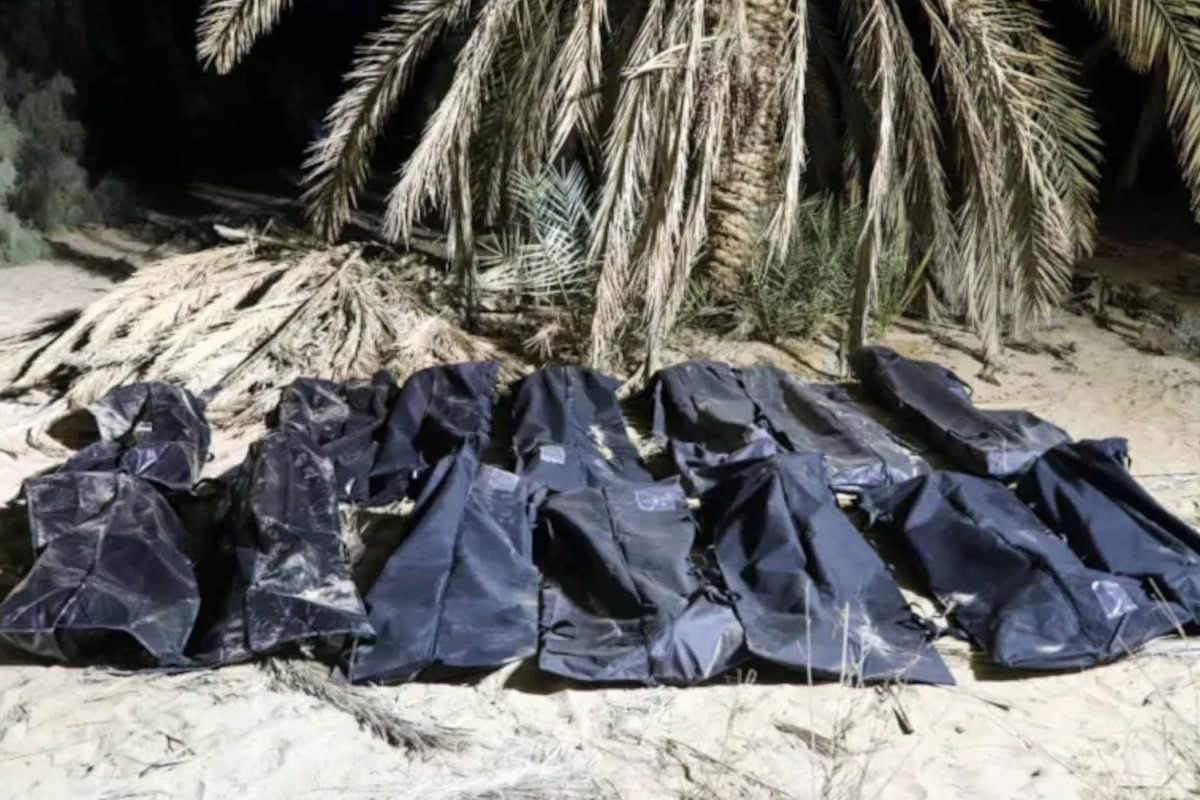
Libya: After discovery of mass graves, EU funding should "save lives and open up safe routes"
Category: News
More than 30 organisations, including Statewatch, have called on the European Commission to use its funding for immigration control in Libya "to save lives and to provide alternatives to dangerous journeys." The call comes after the discovery of two mass graves in Libya, containing the bodies of almost 50 people believed to have been migrants and refugees.
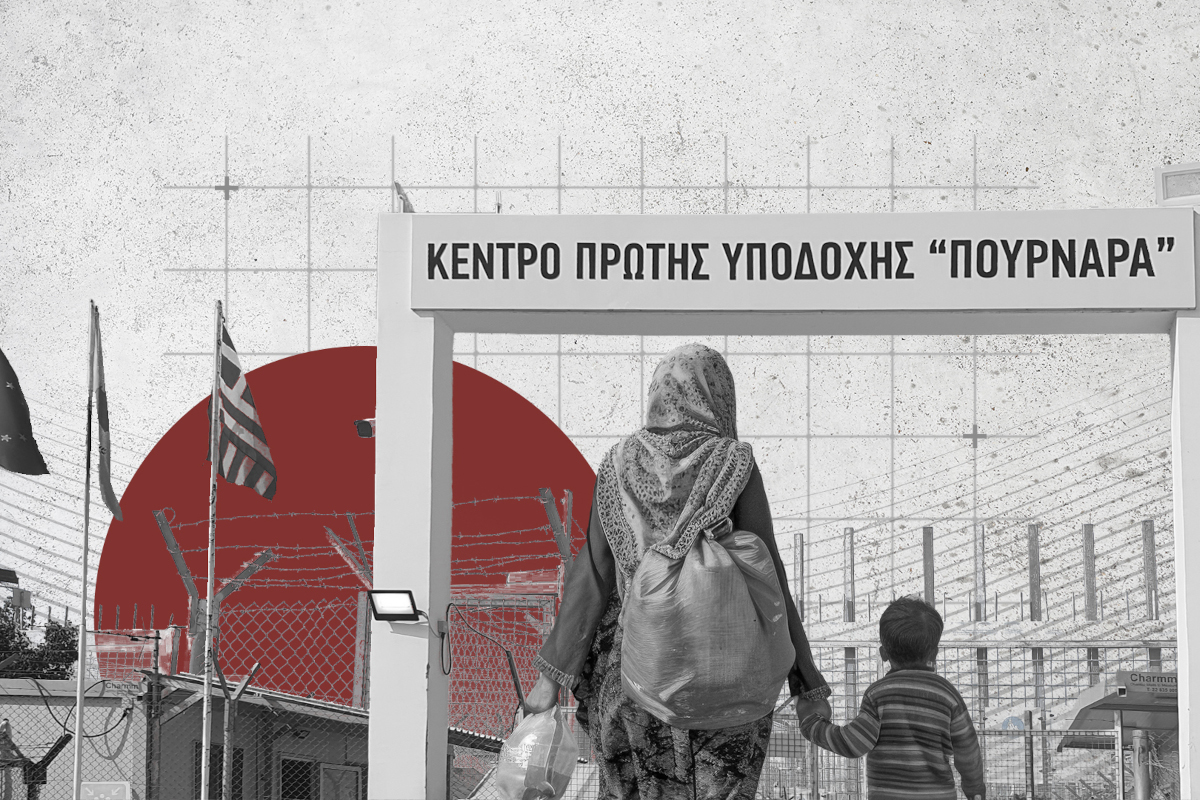
€1,500 and a one-way ticket: how Cyprus deports Syrian refugees with EU support
Category: News
Cyprus has been unlawfully detaining Syrian refugees for years, and has coerced thousands of people to go back to Syria through a supposedly "voluntary" return programme. Behind those "voluntary" returns lies a lack of access to asylum procedures, intimidation by officials, and appalling detention conditions. The European Commission and Frontex have supported the programme, despite internal concerns. EU funds for the Cypriot deportation regime run into the tens of millions of euros, but the real price is paid by Syrian refugees.

Polish government proposes life-long EU entry bans for deportees
Category: News
In the coming months, EU institutions will start negotiating a new law to increase deportations. EU governments want their positions taken into account in the European Commission’s forthcoming proposal. The Polish government has proposed banning deportees from EU territory for “an indefinite period of time,” alongside other coercive measures.
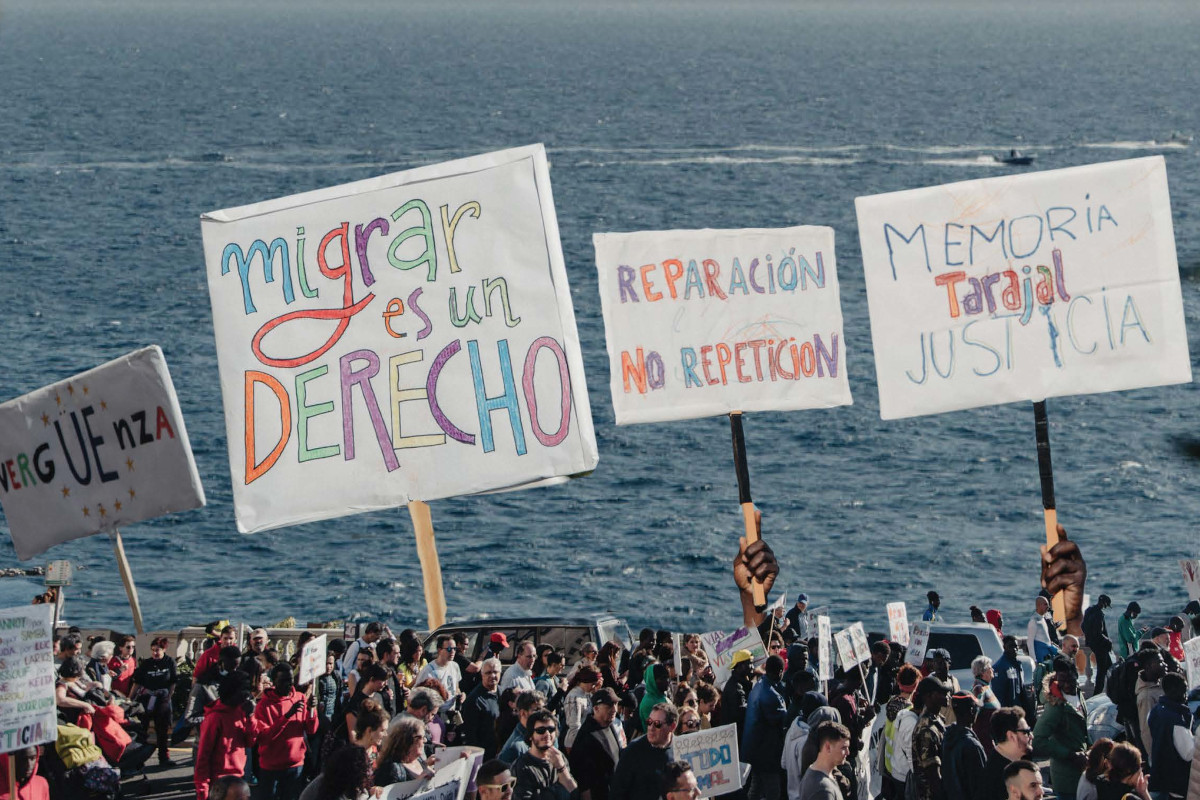
Protest in Ceuta commemorates "all those who, in search of a better life, met their death"
Category: News
On 8 February, activists and campaigners once again gathered in the Spanish enclave of Ceuta to demand justice for the deaths of 14 people in 2014. The 14 drowned after Guardia Civil officers fired rubber bullets and tear gas at them as they tried to reach Spanish territory. The manifesto of the 'XII March for Dignity', supported by Statewatch and published here, calls for the Spanish state to "make reparations to their victims and establish mechanisms to safeguard lives at the borders."
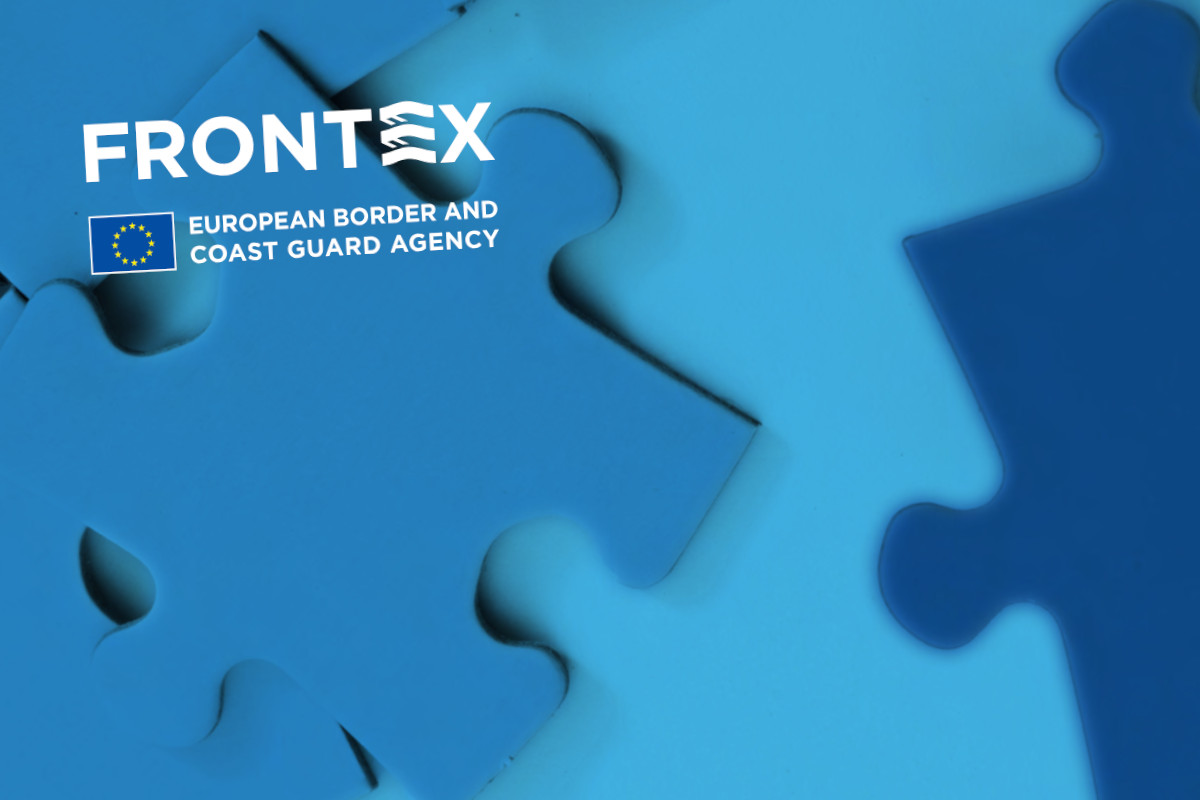
Violence at a distance: Frontex’s increasing role outside the EU
Category: Analysis
The EU tries to keep ‘unwanted’ people out by outsourcing border control to non-EU states. Frontex, the EU’s border agency, play a key role in a “web of violent deterrence” that is deeply-rooted in Europe’s colonial past. Every year, the agency publishes a report on its work in and with non-EU states. The latest edition demonstrates how its role has expanded, whilst glossing over or ignoring human rights violations.

New bulletin on outsourcing of Europe's borders out now
Category: News
30+ internal EU documents on border management and control, deportation, migration "partnerships" and more /// Updates on case law relevant to border externalisation /// Analysis of Frontex's increasing role in non-EU states
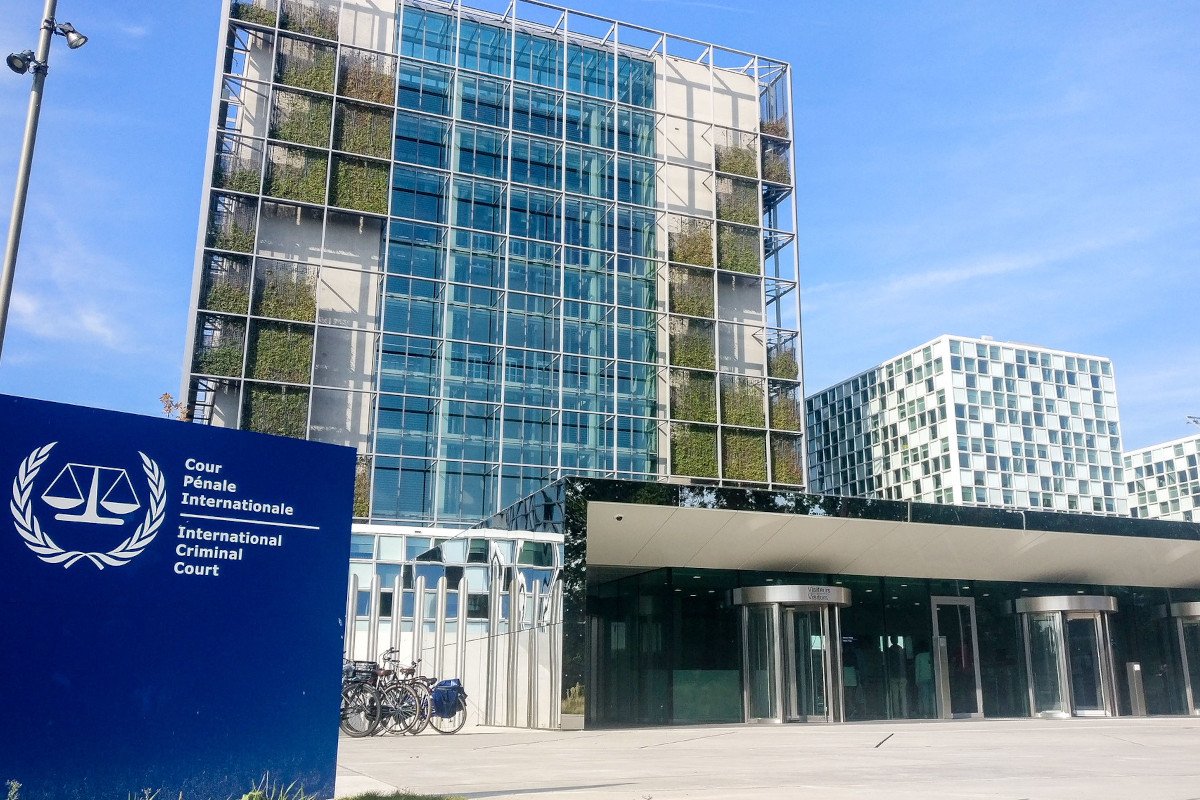
Italian ministers should face justice for freeing fugitive war criminal, says legal complaint
Category: News
A case filed with the International Criminal Court calls for the launching of investigations into Giorgia Meloni, the Italian prime minister, and two other high-ranking Italian politicians. The complaint accuses them of helping an alleged war criminal wanted by the ICC to escape from Italy to Libya. In doing so, they obstructed the work of the International Criminal Court, says the filing - a crime under international law.
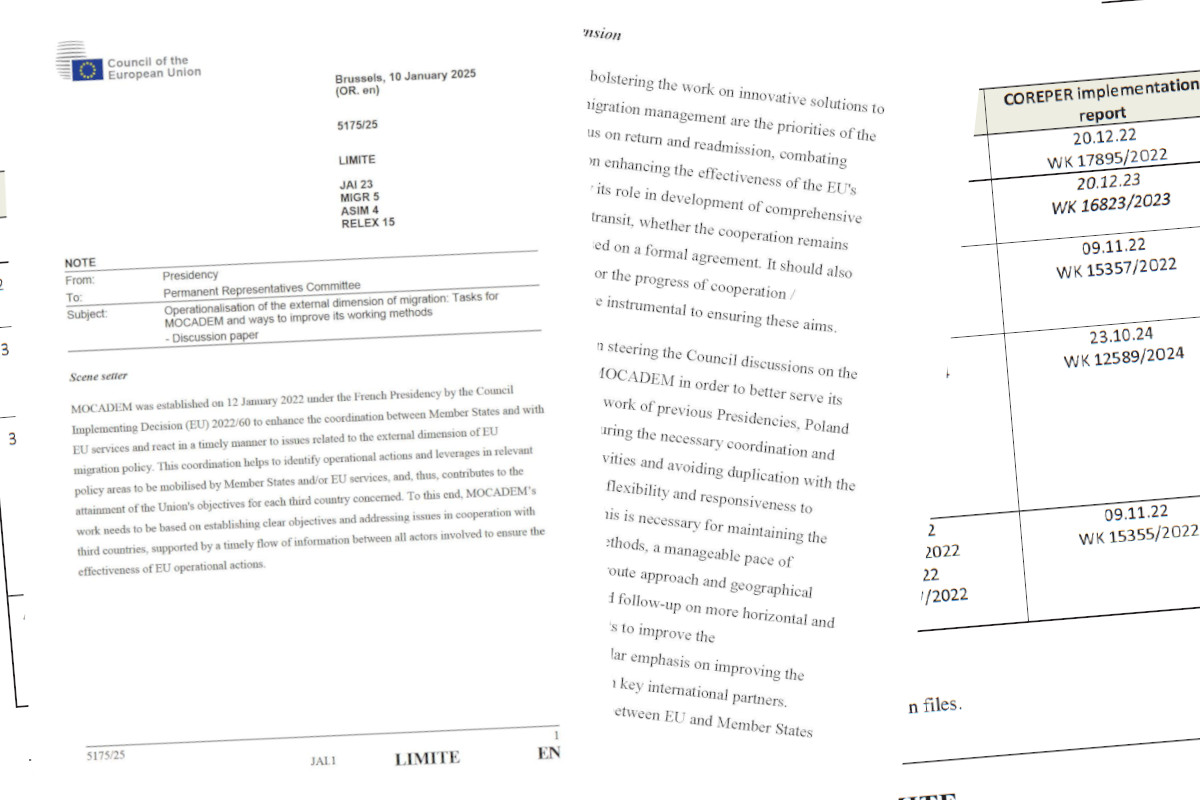
EU: Outsourcing borders and migration control: no parliamentary scrutiny in sight
Category: News
EU member states are looking for ways to “improve” the outsourcing of border and migration controls to non-EU countries. This entails more funding for authoritarian regimes, and more violence and abuse against migrants and refugees. A document obtained by Statewatch outlines the key topics of interest to the EU’s secretive “operational coordination mechanism.” Transparency and democratic scrutiny are not on the list.

Serial shipwrecks on the Libyan route: the price of deterrence
Category: News
In just one week in November, more than 600 people in unseaworthy vessels were intercepted on the high seas and taken back to Libyan shores, where conditions remain appalling. This is the result of cooperation between Italy, Frontex and Libyan bodies that flies in the face of international law.

The silence of Italy’s Guardia di Finanza on drones deployed in the Mediterranean
Category: Press coverage
Investigative Reporting Project Italy, 29 January 2025.

Why Statewatch is leaving X
Category: News
Today, Statewatch officially bids a not-so-fond farewell to X (formerly known as Twitter). After over a decade of sharing research, exposing abuses of power, and engaging in critical conversations on the platform, we’ve decided it’s time to take our leave.
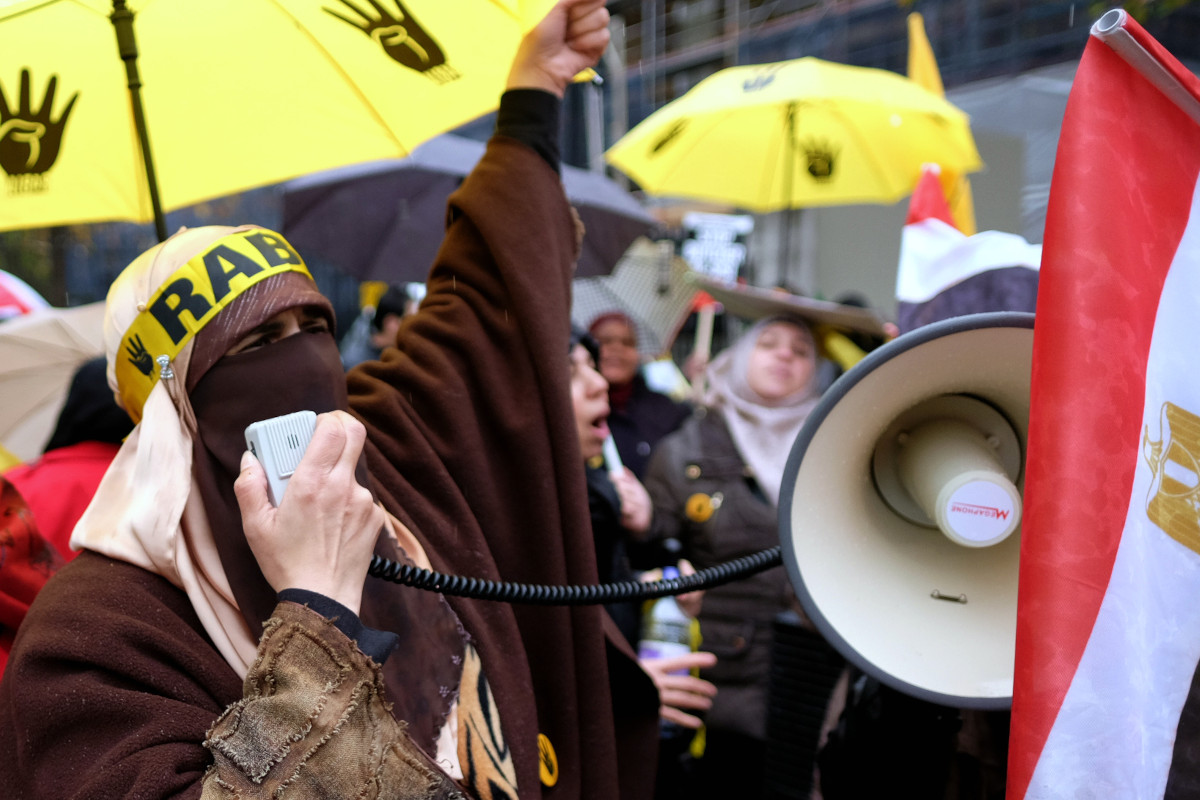
EU police cooperation with Egypt sacrifices "people's rights and freedoms" for security
Category: News
An open letter to EU officials raises serious concerns over a planned agreement between Europol (the EU police agency) and Egyptian law enforcement authorities. The letter opposes the agreement due to Egypt’s “abysmal human rights record.” It condemns the plan as part of a regional strategy that "places security interests above any consideration of justice, democracy and people’s rights and freedoms." The letter has been signed by over 40 organisations and individuals, including Statewatch.
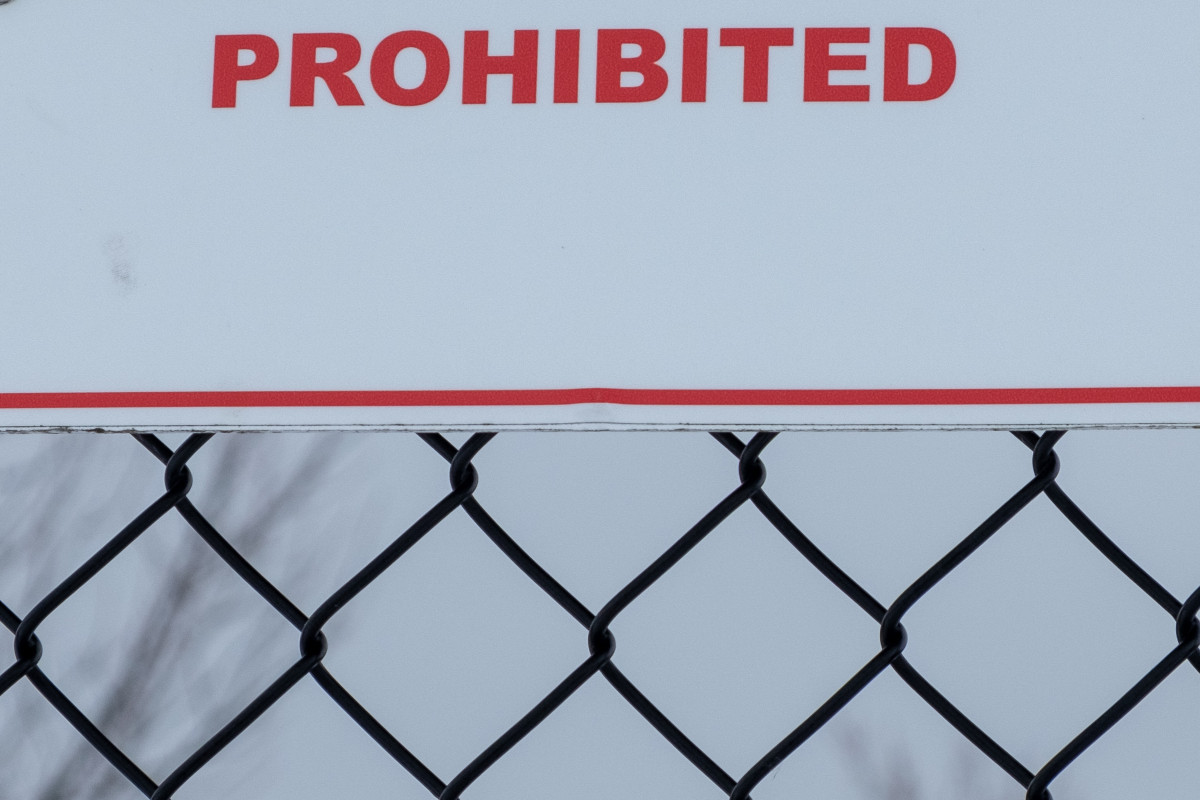
EU: Human rights must be “central guiding basis” for new AI guidelines
Category: News
The EU is preparing guidance on the definitions and prohibitions contained in the AI Act, which was agreed last year. A statement signed by more two dozen organisations and individuals, including Statewatch¸ says the guidance must be centred on upholding fundamental rights.
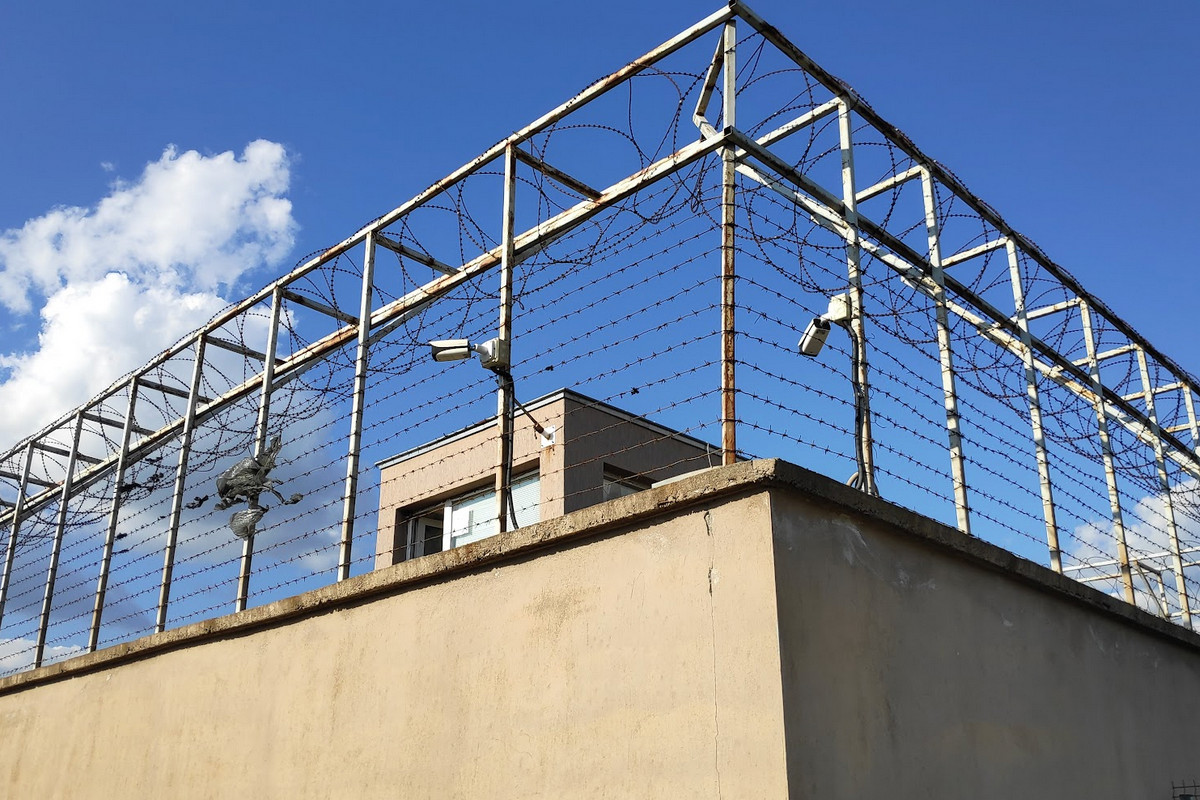
Deportations: New role for Frontex as EU pushes for more “voluntary” returns
Category: News
A special report by Hope Barker and Anas Ambri: The EU has been funding new accelerated asylum and deportation procedures in Bulgaria, including a new "assisted voluntary return" project. Increasing "voluntary" returns is a key part of the plan to increase deportations from the EU, with Frontex playing an increasing role. The project targets individuals in detention. Experts question whether such procedures can ever be truly voluntary.
Digitalising discrimination and criminalisation
<p>Artificial intelligence, policing and criminal justice.</p>
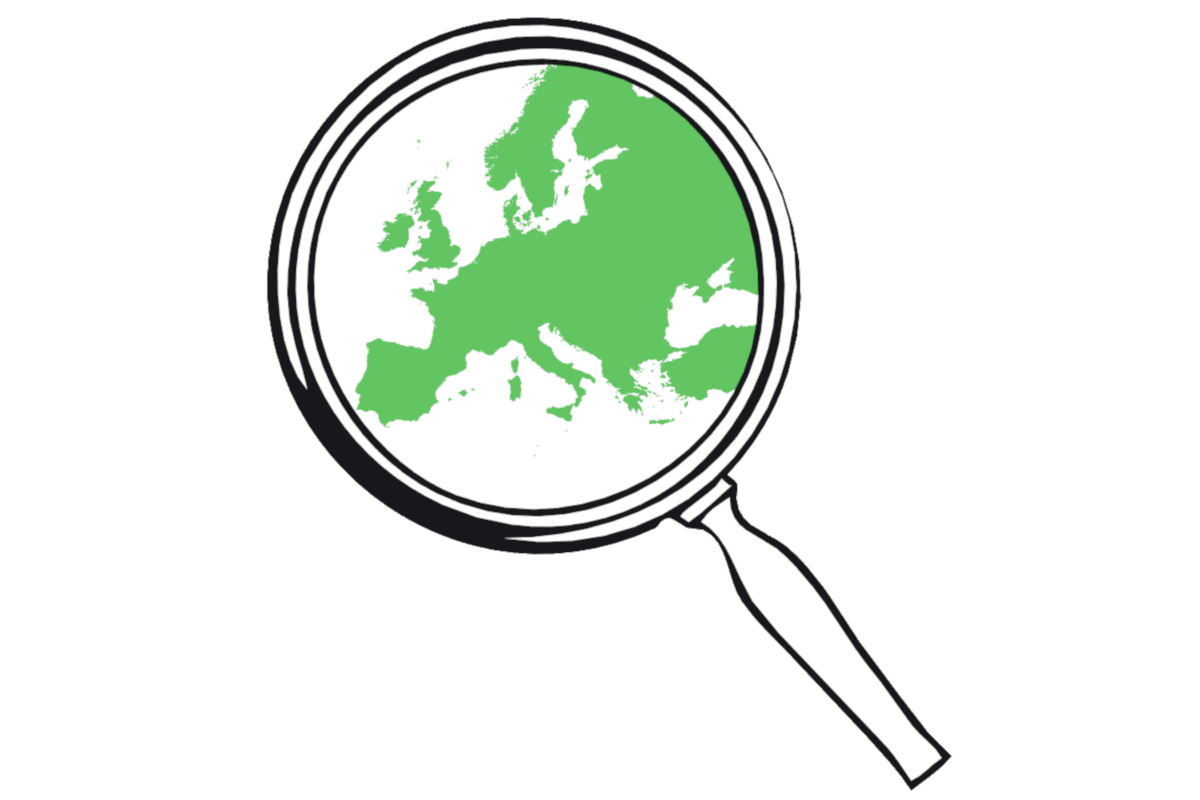
Our work in 2024
Category: News
A review of our work in 2024, and a call for your support in 2025.
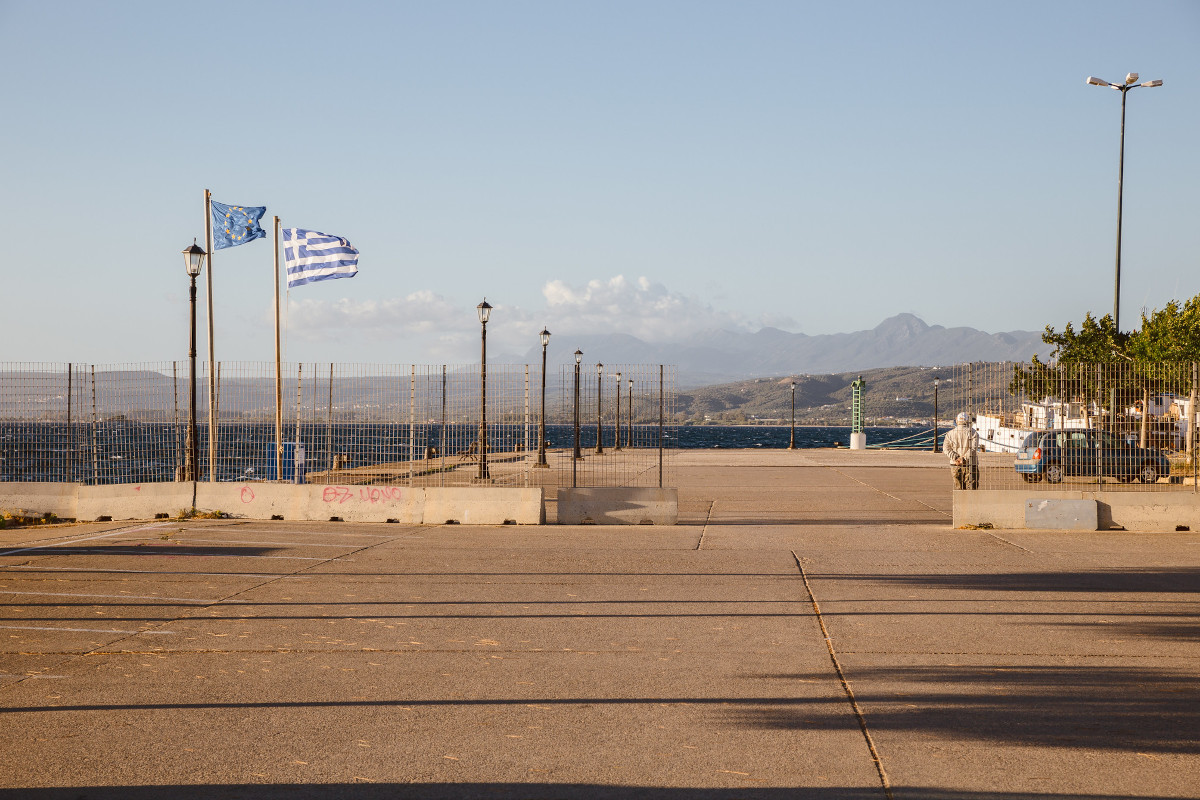
Pylos shipwreck will "neither be forgotten nor forgiven," says joint statement
Category: News
"The state crime of Pylos will neither be forgotten nor forgiven." A statement to mark the death of more than 600 people in the 2023 Pylos shipwreck condemns the failure to bring prosecutions against those responsible. The statement, signed by more than 50 NGOs (including Statewatch), notes that "the perpetrators continue to carry out their duties with impunity, not only posing a constant threat to people on the move but also exemplifying the immunity they receive."

Italian security decree "most serious attack on right to protest in recent decades"
Category: News
A bill under discussion in the Italian senate is "the most serious attack to the freedom of protest ever waged in recent decades," says a joint statement signed by 26 organisations from across Europe, including Statewatch. The bill, targeted at the climate and environmental movements, would criminalise protest roadblocks. Other measures would increase punishments for resisting major infrastructure projects. The bill would "further criminalise and marginalise vulnerable communities, including immigrants, beggars, the homeless, Roma people, those residing in squats, and detainees," says the statement.

EU police data plans pose "substantial security and privacy threats"
Category: News
EU plans to increase police access to personal data could weaken "fundamental rights, legal safeguards and the European economy." The warning comes in an open letter addressed to the EU Justice and Home Affairs Council, and is signed by more than 50 organisations, including Statewatch. The signatories include NGOs, businesses, journalists' unions, lawyers' associations, and others.

EU: New migrant smuggling law to ensure criminalisation of solidarity
Category: Analysis
Next week, a new EU law on the criminalisation of migrant smuggling will be examined by the Justice and Home Affairs (JHA) Council. The Council is due to approve its position for negotiations with the European Parliament. The existing law has been criticised for failing to prevent the criminalisation of migration and acts of solidarity with migrants and refugees. The new text, obtained by Statewatch and published here, appears likely to worsen the situation.

The EU will soon have the largest hoard of biometric data on earth – and travellers could suffer
The Telegraph, 9 December 2024.

Will Frontex’s expansion lead to more oversight and accountability?
Category: Press coverage
The Parliament, 4 December 2024.
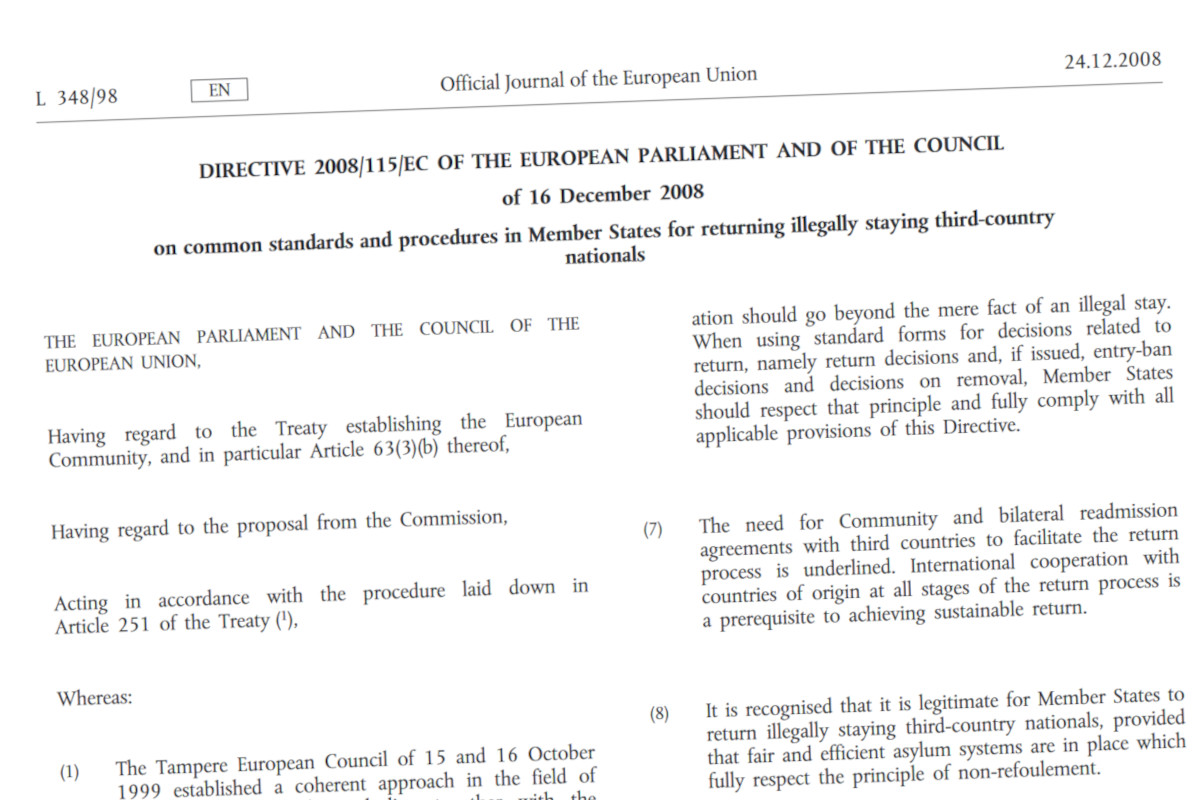
Deportations: when “assertiveness” and “effectiveness” entail violence and abuse
Category: Analysis
Increasing the number of deportations from the EU is a longstanding policy goal. In 2025 a new deportation law will likely be proposed, replacing the 2008 Returns Directive. Documents published alongside this bulletin offer some insights into what may be included in that proposal. The implications for individuals facing deportation are likely to be damaging: fewer legal safeguards, more obligations and increased coercion, and new ways to remove people to countries deemed unsafe.

Frontex’s increasing role in reintegration policy and its effects in West Africa
Category: Analysis
The externalisation of European border controls to Africa has received substantial political and critical attention. The same cannot be said of “reintegration” policies, ostensibly designed to support people deported from the EU. Frontex’s role in both deportation and reintegration is increasing. The consequences of this in The Gambia and Nigeria raise questions over national sovereignty, the rights of and support for deportees, and the instrumentalisation of independent organisations.

Deutschland drängt auf EU-weite Verfolgung und Überwachung von Fahrzeugen
Category: Press coverage
Heise, 17 November 2024.

Fondettes: une galerie expose « Calais après la jungle »
Category: Press coverage
La Nouvelle République, 15 November 2024.
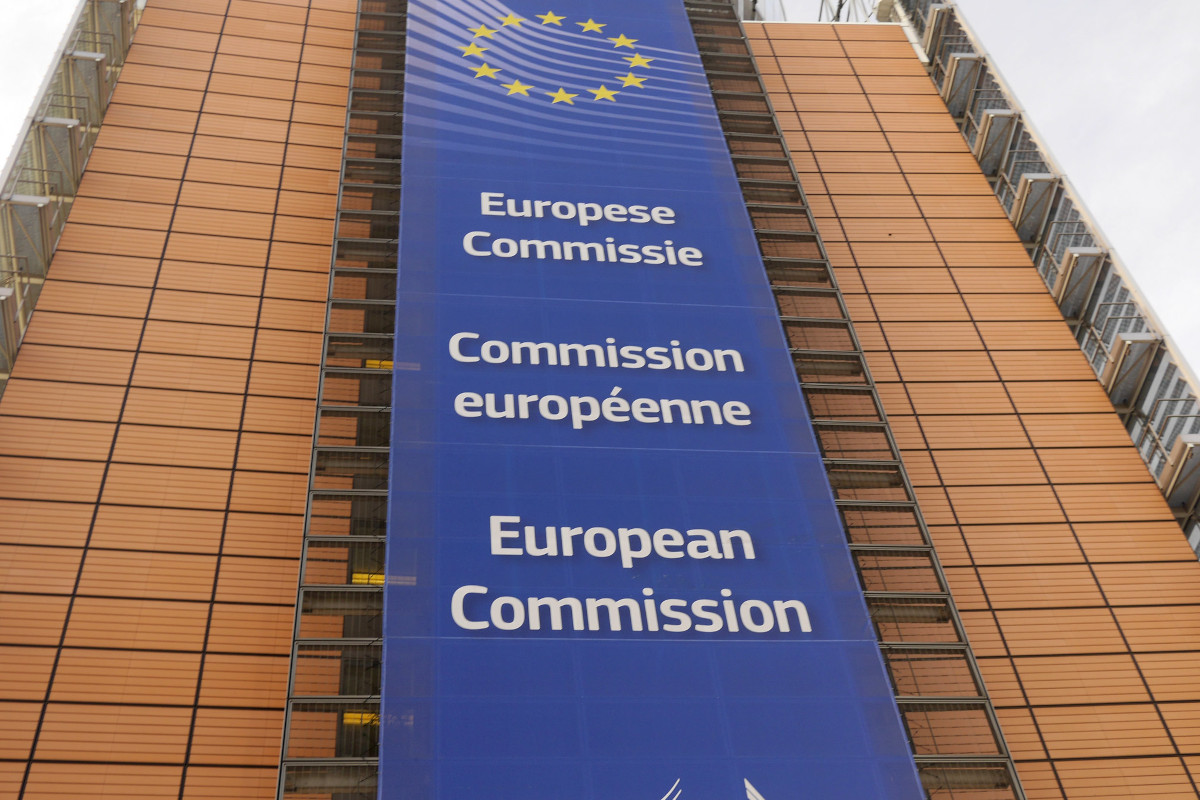
Migration policy priorities of the next European Commission: a jargon-free translation
Category: Analysis
This week, the proposed new European Commissioners are being interviewed by the European Parliament. Four of the 26 “mission letters” sent to the nominees by Ursula von der Leyen set out responsibilities with regard to migration, asylum and border policy. Couched in typical EU jargon, the texts hide a brutal and violent reality. Aside from the implementation of the Pact on Asylum and Migration, key topics in the coming months and years will include a new deportation law; attempts to set up deportation camps (“return hubs”) in non-EU states; new “partnerships” with non-EU states to try to control migration; and increased police powers.

Egypt and Tunisia ‘not interested’ in migrant deals with EU
Category: Press coverage
The Telegraph, 21 October 2024.

Egypt and Tunisia show 'little interest' in EU migration deal despite billions
Category: Press coverage
EUobserver, 14 October.

EU support for violent and authoritarian regimes: no end in sight
Category: Analysis
Migration across the Central Mediterranean has been a consistent topic in the EU for over a decade. In July, the Council’s Working Party on the External Aspects of Migration discussed a paper drafted by the Hungarian Council Presidency. Focusing on Egypt, Libya and Tunisia, it argues that challenges have “deepened and become more complex in 2023.” This includes dangers at sea and shortcomings in living conditions, infrastructure and humanitarian assistance on land. As is customary, there is little mention of the role played by EU migration policy in generating these “challenges”.

Ignoring the root causes of disaster: the EU and Sudan
Category: Analysis
In June, the Belgian Presidency of the Council of the EU circulated a paper on Sudan to the Working Party on External Aspects of Asylum and Migration (EMWP). The document offered an overview of the situation of war and displacement in this country, which has been ongoing since April 2023. It omits several issues that are crucial for a meaningful understanding of the situation.

EU und Kanada: Neues Abkommen zur Übermittlung von Fluggastdaten steht
Category: Press coverage
Heise, 4 October 2024.

Så gick Frontex från liten myndighet till högteknologisk propagandamaskin
Category: Press coverage
Dagens ETC, 3 October 2024.

L’Allemagne envisage de scruter les réseaux sociaux des demandeurs de visas Schengen
Category: Press coverage
Cameroun Actuel, 21 September 2023.
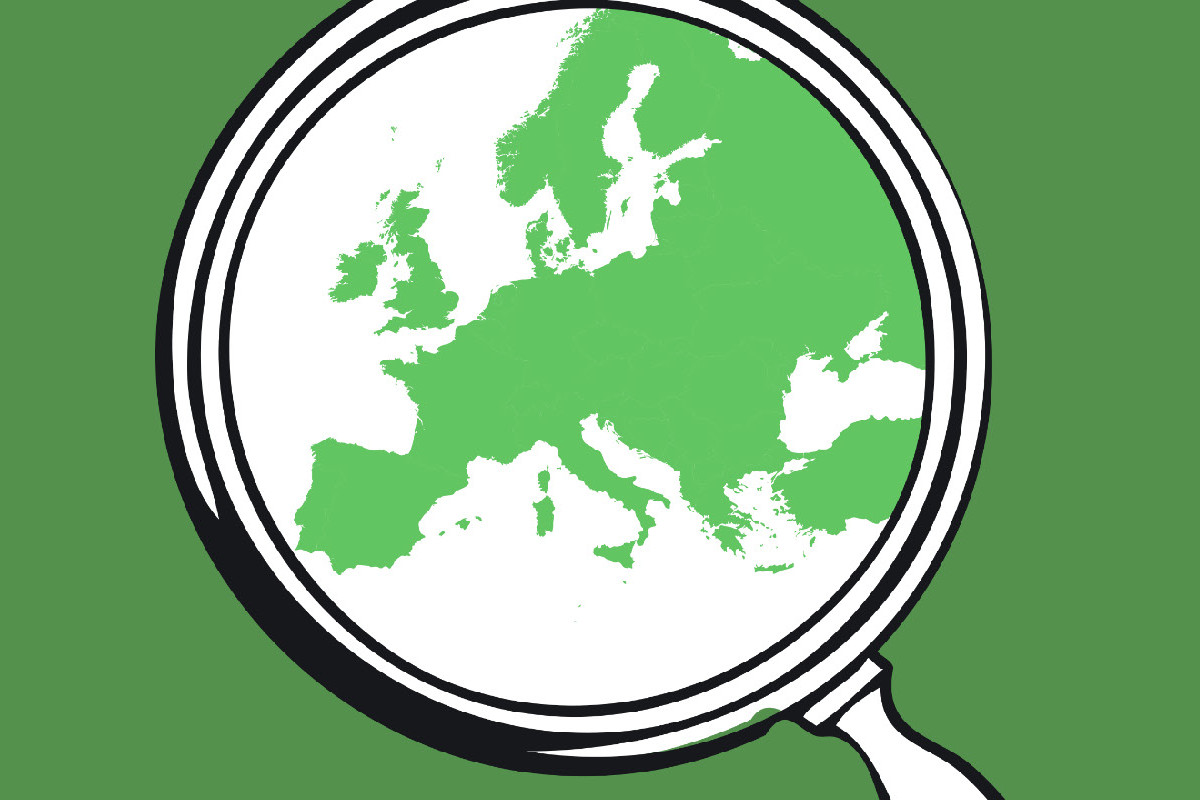
Annual activity report 2023
Category: Publications and reports
Civil liberties in an era of crisis and turmoil

How should Europe deal with its migration crisis?
Category: Press coverage
Al Jazeera's Inside Story, 16 September 2024.

Marruecos solo acepta el 8% de las expulsiones de sus nacionales emitidas por la UE
Category: Press coverage
El País, 11 September 2024.

What happens if I’m rejected for an Etias – and can I appeal?
Category: Press coverage
i, 26 August 2024.

Frontex goes drone shopping as EU looks to keep migrants out
Category: Press coverage
EurActiv, 21 August 2024.

Immigration : l’Europe veut « mieux criminaliser » les exilés et leurs soutiens
Category: Press coverage
l'Humanité, 21 August 2024.

La Unión Europea usará inteligencia artificial para controlar los flujos migratorios en las fronteras
Category: Press coverage
El Periódico de Catalunya, 1 August 2024.

How Sweden pushes for EU access to encrypted data
Category: Press coverage
EUobserver, 24 July 2024.
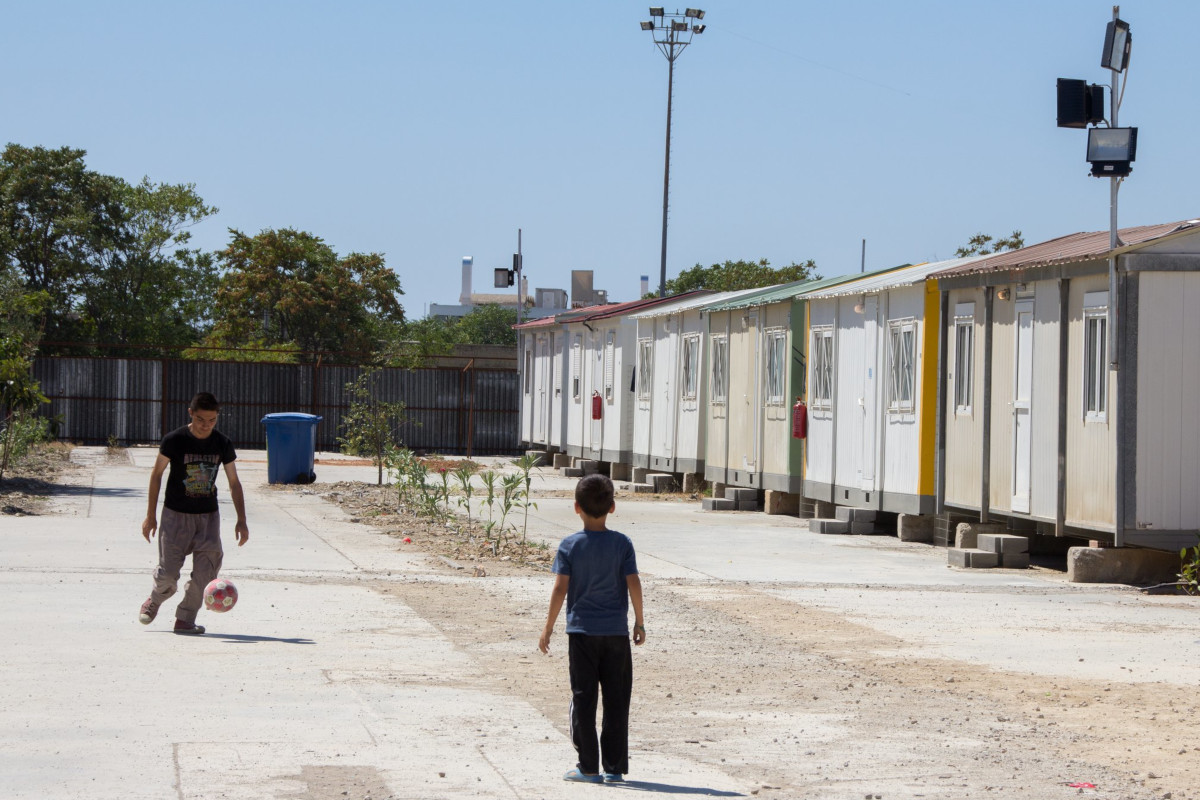
Implementing the Pact: obligation for fundamental rights monitoring
Category: Analysis
The recently adopted Screening Regulation under the EU Pact on Migration and Asylum sets out several requirements for the establishment and operation of a mechanism for monitoring the fundamental rights of people subject to “screening” procedures at the external borders. Based on a recent Council document on the implementation of article 10 of the Screening Regulation and EU Fundamental Rights Agency guidance, this article provides an overview of what is required and discusses some potential challenges that may arise.

Visa sanctions to increase deportations
Category: Analysis
Changes to the EU’s rules on visa issuance that came into force in 2020 have made it possible for sanctions to be introduced against states that fail to cooperate with deportations. For example, non-EU states that consistently fail to provide identity documents for their own nationals facing deportation from the EU can have visa fees increased, or the examination of applications slowed down. The tool appears to be popular with EU institutions and member states, and changes are on the way to “improve” its functioning. This analysis examines the mechanism itself, measures proposed or adopted under the mechanism, and recent proposals to develop and reform the system, and considers the way in which the idea of “solidarity” (between EU member states and EU bodies) is used as a weapon against third countries.

A bottomless pit: billions more euros for externalised border controls
Category: Analysis
In view of the recently concluded mid-term review of the EU’s budget, funding for the externalisation of migration control has been at the top of the political agendas of EU member states and institutions. In the words of the European Commission and the European External Action Service, funding “ensure[s] that the actions undertaken… continue delivering results.” A substantial increase in the EU budget is on the cards, at the same time as a possible shift towards a supposedly new “preventive model” for external migration control.

Come funzionano i voli di rimpatrio forzato dall’Italia alla Tunisia
Category: Press coverage
Internazionale, 24 June 2024.

The truth about the shadowy ‘Migration 5’
Category: Press coverage
Radio New Zealand, 17 June 2024.

Automating the fortress: digital technologies and European borders
Category: Analysis
The fortification of Europe’s borders is inherently linked to the use of digital technologies. Indeed, the process would be unthinkable without them. From the biometric passports and automated gates used at border crossing points to the drones, sensor systems and detection technologies used to prevent and detect unauthorised migrants, digital technologies are crucial to a political project that seeks to give state authorities increased knowledge of – and thus control over – foreign nationals seeking to enter the EU. Vast quantities of public funding have been used to develop and deploy these technologies, and unless there is significant public and political opposition to the project, it is likely that the EU will provide far more money in the years to come. Given the harm caused by the ongoing reinforcement of Fortress Europe, and the myriad more beneficial ways in which those funds could be spent, that opposition is urgently needed.

Academic boycotts over Gaza war jeopardise Israel’s place in Horizon Europe
Category: News
Science|Business, 23 May 2024.

From Cutro to Pylos: what two shipwrecks reveal about Europe’s deadly migration policies
Category: Analysis
The anniversary of the shipwreck in Crotone on 26 February was marked by relatives and supporters of at least 94 people who died on the morning of that same day in 2023. They gathered on the beach in Cutro, in the city of Milan, and elsewhere in Italy: the names of the dead were read at public events, and survivors gave their testimonies.Three months later, it will also be the first anniversary of the Pylos shipwreck, in which at least 500 people lost their lives, and similar events will mark that anniversary. [1]

The politics behind the EU-Mauritania migration partnership
Category: Analysis
On 7 March, the EU and Mauritania signed a landmark “migration deal.” This January note from the European Commission makes the case for the deal to EU member state representatives in the Council. Dated 26 January, and therefore preceding both the public announcement of the deal on 7 February and its signing one month later, the note offers insight into the politics behind the migration partnership deal between Mauritania and the EU.

Charting a course through the labyrinth of externalisation
Category: Analysis
“Migration is a European challenge which requires a European response” has become a favoured refrain of EU officials and communiques. While the slogan is supposed to reinforce the need for a unified EU migration policy, it also masks the reality of the situation. The EU’s response to migration – in particular, irregular migration – is increasingly dependent on non-EU, and non-European states. Billions of euros and huge diplomatic efforts have been expended over the last three decades to rope non-EU states into this migration control agenda, and the process of externalisation is accelerating and expanding. Understanding the institutions and agencies involved is a crucial first step for anyone working for humane EU asylum and migration policies.

Met police to pay ‘five-figure sum’ to French publisher arrested under anti-terror laws
Category: Press coverage
The Guardian, 29 April 2024.

Putting the cart before the horse: the Commission’s proposal to increase Europol's powers
Category: Analysis
Hounded by criticism from civil society and EU member states over its new proposal to increase the powers of Europol, the European Commission has belatedly published an “analytical document” in lieu of a formal impact assessment. The new proposal would lead to the storage of vast quantities of information by Europol on human smuggling and trafficking cases, intended to increase investigations and prosecutions. However, the Commission’s document offers a minimal analysis of the potential impact on individual rights, particularly of people in vulnerable situations, and the data protection safeguards at Europol are inadequate for the proposed changes.

EU funding drone technology used by Israel in Gaza war, claim monitors
Category: Press coverage
Euronews, 23 March 2024.

European money for the war in Gaza: how EU research funding supports the Israeli arms industry
Category: Analysis
Technologies developed with financial support from Europe are being used in the current war in Gaza, as they have been previously in occupation of Palestinian territory and marginalisation of the Palestinian people.
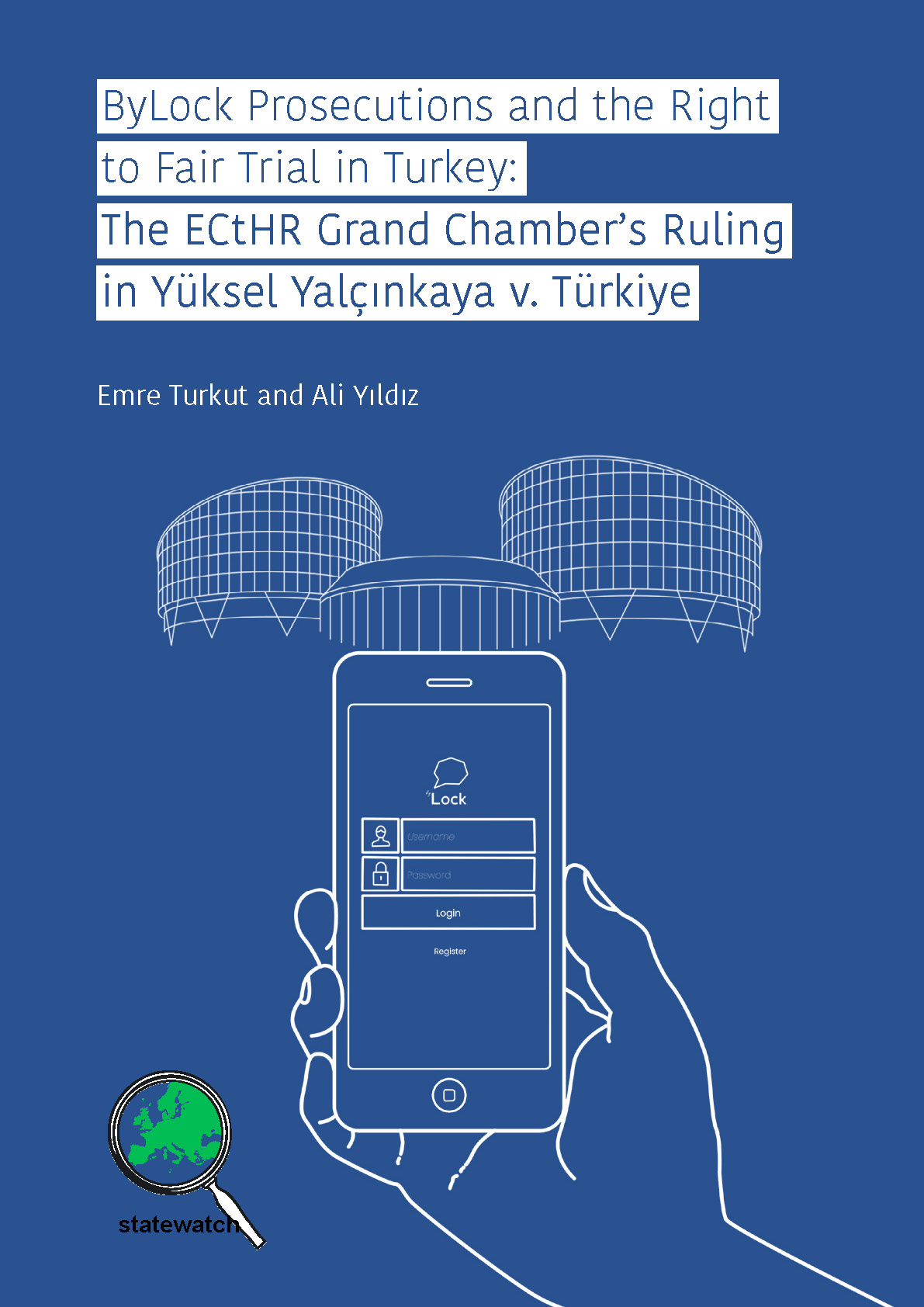
ByLock Prosecutions and the Right to Fair Trial in Turkey: The ECtHR Grand Chamber’s Ruling in Yüksel Yalçınkaya v. Türkiye
Category: Publications and reports
This report analyses the European Court of Human Rights' judgement in the case Yalçınkaya v Türkiye, which found that a conviction based on the use of the encrypted messaging app ByLock violated a number of rights: no punishment without law; the right to a fair trial; and freedom of assembly and association. The judgement represents a milestone in the legal and political discourse surrounding ByLock convictions, and should be used as the basis for retrials for the tens of thousands of people who have been punished for their alleged use of the app.

Kunstmatige intelligentie maakt de Europese grenzen nog killer. ‘Europa verschuilt zich achter technologie’
Category: News
Nederlands Dagblad, 5 March 2024.

The case of Civipol: commodified mobility policing in West Africa and its colonial continuities
Category: Analysis
Current European attempts to outsource migration control to West Africa mirror historical entanglements between colonial logics, corporate interests and policing. This article looks at the place of public-private relations in French colonialism in order to historically situate the activities of Civipol, a French public-private actor owned both by the French state and major security companies, that has specialized in building African states’ internal security capacity.
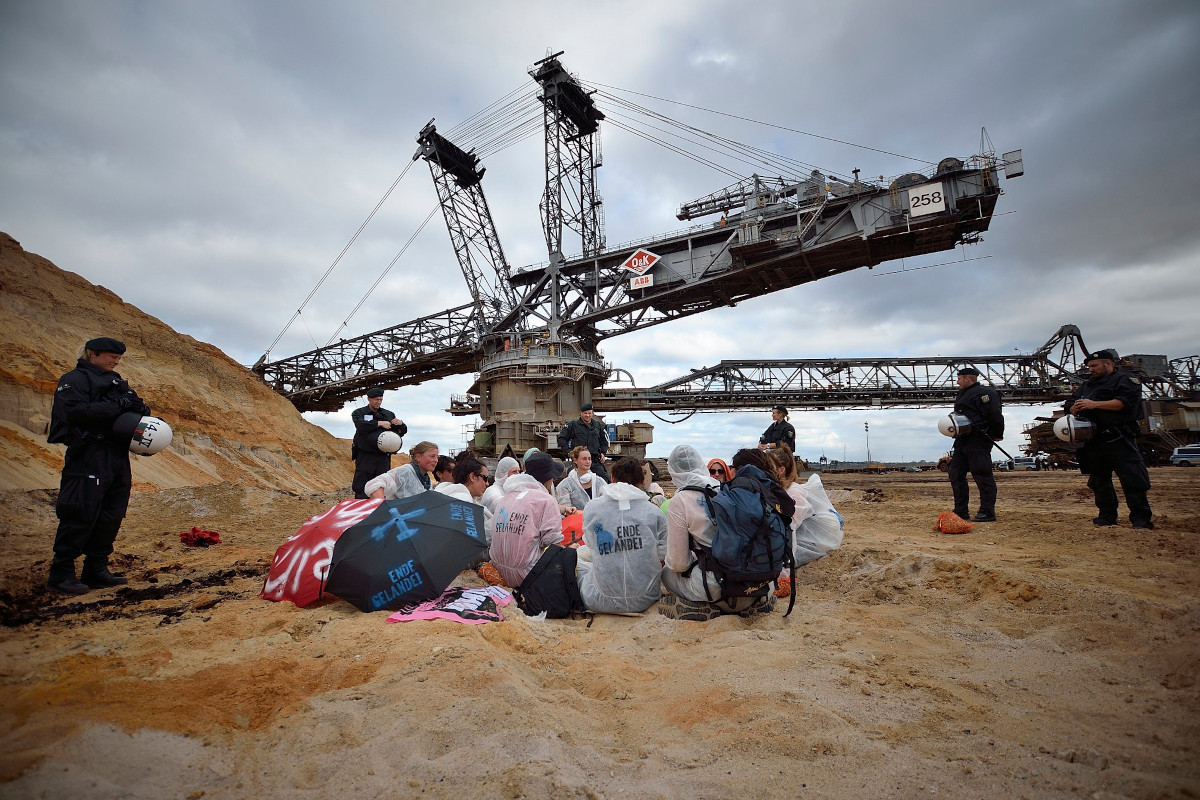
Environmental activism under the EU counter-terror microscope
Category: Analysis
Next week, EU and member state officials will discuss “the role of climate change and environmental concerns in violent extremist and terrorist radicalisation.” A discussion paper for the meeting, obtained by Statewatch, considers the threat posed by “violent left-wing and anarchist extremism” – a heading under which a number of prominent environmental protest groups are mentioned. The inclusion of peaceful but disruptive groups in the paper may legitimate further police surveillance and infiltration, legal harassment and government crackdowns – a problem identified as “a major threat to human rights and democracy” by a UN Special Rapporteur.

Border security with drones and databases
Category: Analysis
The EU’s borders are increasingly militarised, with hundreds of millions of euros paid to state agencies and military, security and IT companies for surveillance, patrols and apprehension and detention. This process has massive human cost, and politicians are planning to intensify it.

Irak ottaa nyt palautettavat kansalaisensa vastaan, Somalia kieltäytyy yhä yhteistyöstä
Category: Press coverage
Helsingin Sanomat, 26 February 2024.

Frontex and deportations, 2006-22
Category: Analysis
Data covering 17 years of Frontex’s deportation operations shows the expanding role of the agency. We have produced a series of visualisations to show the number of people deported in Frontex-coordinated operations, the member states involved, the destination states, and the costs.

The growing infrastructure and business model behind (im)migration and surveillance technologies
Category: Events
Panel co-hosted by Statewatch and Privacy International at Privacy Camp 2024 in Brussels, Belgium.

Germany: Fatal police shootings in 2022
Category: Analysis
For the year 2022, the official firearm usage statistics of the Conference of the Ministers of the Interior recorded a total of 54 shots fired at people. 11 individuals were killed as a result. This is three more than the previous year. Legally, these shots were classified as self-defense/emergency aid. 41 people were injured due to police firearm use.

USA krever fri adgang til å søke i norske registre
Category: Press coverage
Bergens Tidende, 1 January 2024.

Police to be able to run face recognition searches on 50m driving licence holders
Category: Press coverage
The Guardian, 20 December 2023.

New Brexit fingerprint checks for UK travellers in Europe set to start in 2024
Category: Press coverage
i, 18 December 2023.

NGOs: EU asylum overhaul will create 'cruel system'
Category: Press coverage
EUobserver, 18 December.
Frontex working groups
Category: Observatory: Frontex
Frontex rules on the creation and functioning of internal working groups, and a chart of working groups as of early October 2023.

People-smuggling profits at historic high, EU concedes
Category: Press coverage
EUobserver, 28 November 2023.

Digital rights and the protection of the right to asylum in the Charter of the European Union
Category: Analysis
The right to asylum, as delineated in Article 18 of the Charter of Fundamental Rights of the European Union (EU) (‘the Charter’), does not grant the right to asylum to every individual seeking it. Instead, it articulates that everyone is entitled to have their application for international protection examined in line with international and EU law. This principle is reinforced by Article 19 of the Charter, which strictly prohibits collective expulsions and forbids the removal, expulsion or extradition of any person ‘to a State where there is a serious risk that he or she would be subjected to the death penalty, torture or other inhuman or degrading treatment or punishment’.

Europol löscht NoBorder-Initiativen aus Terrorbericht
Category: Press coverage
ND, 22 November 2023.

Svensken som ska hålla Frontex på mattan: ”Kan inte vara överallt”
ETC, 20 November 2023.

Migrazioni: l’Unione Europea pianifica nuovi accordi con Egitto e Tunisia mentre continua a sostenere la Libia nella lotta alle partenze
Category: Press coverage
La Repubblica, 19 November 2023.

Visafreiheit: USA wollen Zugriff auf EU-Biometriedaten bilateral durchsetzen
Category: Press coverage
Heise, 19 November 2023.

Webinar: Activists and NGOs under watch! Are you in Europol’s databases?
Category: Events
On 7 November, digital rights experts from EDRi and Statewatch will explore how civil society, activists and social movements have been increasingly criminalised and surveilled in Europe, and will introduce attendees to a new tool that will people request their data that is held by Europol. Access requests are an important tool in countering the abusive data collection practices by European police.

EU will drohendes Grenzchaos mit Biometrie und App verhindern
Category: Press coverage
Netzpolitik, 2 November 2023.

Greek data watchdog to rule on AI systems in refugee camps
Category: News
Computer Weekly, 30 October 2023.

Annual activity report 2022
Category: Publications and reports
Rights, freedom and democracy: the struggle is continuous

Dünya çapında kullanılıyor: İngiltere, derhal durdurmaları için harekete geçti!
Category: Press coverage
Haber7, 6 October 2023.

Surge in police use of facial recognition sparks concerns over wrongful targeting
Category: Press coverage
Morning Star, 26 September.

The cost of migration: Europe's response
Category: Press coverage
BBC, 20 September.

The new proposal on the security of EU information: a wider but incomplete legal framework for classified information
Category: Analysis
Part 3 of a series /// The proposal on security of EU information, as introduced, would create a legal framework for classified information with a number of gaps and loopholes that would prevent the European Parliament and the Court of Justice from exercising their roles as set out in the EU treaties. Changes are required to fix these problems.

The proposal on security of EU information: how to burst the bubble and open the EU fortress
Category: Analysis
Part 2 of a series /// The Commission's proposal on security of EU information threatens to fatally undermine the rules on access to documents, which are essential for transparency, openness and public participation in democratic-decision making. The European Parliament and the Council need to take action to fix the proposal on security of information. At the same time, there are clear steps they could take to improve the access to documents rules, ensuring that legislative deliberations are as open and transparent as required by the treaties.

Brexit: EU issues guidance after Britons 'wrongfully held' at Schengen borders
Category: Press coverage
The Local, 10 September 2023.

The proposal on security of EU information: transforming the “bubble” into a “fortress”?
Category: Analysis
Part 1 of a series /// EU institutions are currently discussing a proposal for a new law "on information security in the institutions, bodies, offices and agencies of the Union." While the objective itself may be legitimate, the proposal as it stands seeks to extend to other EU institutions and agencies the secrecy and opacity that has for so long characterised the work of the Council. It undermines existing legislation on public access to official documents and would fatally undermine the treaty obligation for the institutions, bodies, offices and agencies of the EU "to conduct their work as openly as possible." At the same time, the proposal fails to ensure the interinstitutional and interagecy cooperation necessary to ensure an effective administration.

Telling the story of EU border militarization: messages, principles and language
Addressing and preventing European border violence is a huge but necessary strategic challenge. This guide offers framing messages, guiding principles, and suggested language for people and organisations working on this challenge. It emerges from a process of discussion online and in-person between over a dozen organisations working in the European migrant justice space.

Telling the story of EU border militarization
Category: Publications and reports
Addressing and preventing European border violence is a huge but necessary strategic challenge. This guide offers framing messages, guiding principles, and suggested language for people and organisations working on this challenge. It emerges from a process of discussion online and in-person between over a dozen organisations working in the European migrant justice space.

International police data-sharing: what are the UK and EU cooking up?
Category: Analysis
For the last few years, British and European officials have been seeking ways to regain the ability to instantly share police data across borders – an ability that was lost after the UK left the EU at the end of 2020. The plan currently under development is to build a new data-sharing architecture encompassing the UK, the EU and other “international partners,” but substantive details of it are being kept under lock and key. The implications go beyond privacy and data protection, and raise questions about the potential uses of a new system to crack down on the right to protest, as well as the right to seek asylum.

Droni in Niger e radar nel Mediterraneo: l'Ue spende miliardi per confini hi-tech
Category: Press coverage
La Via Libera, 10 July 2023.
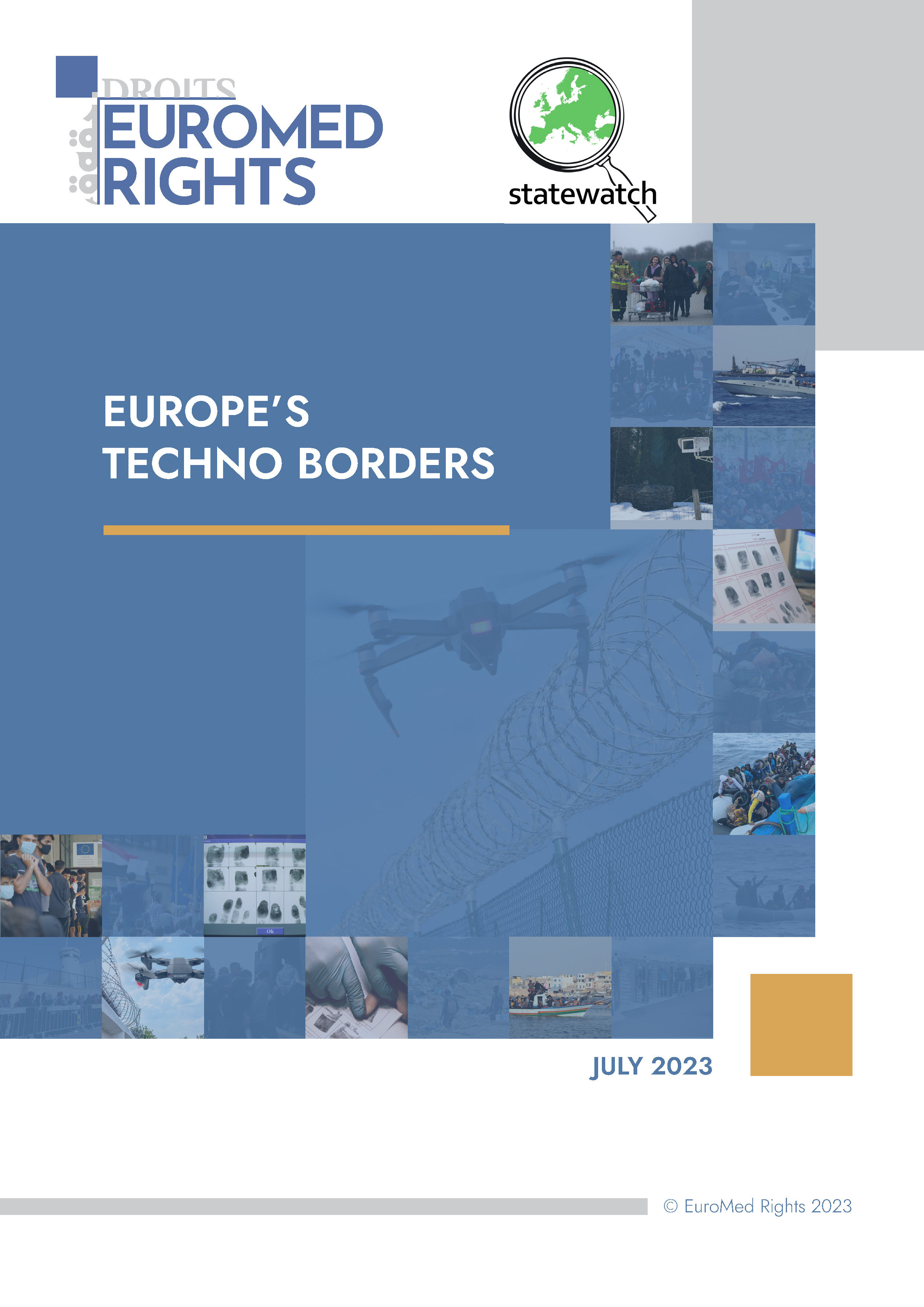
Europe's techno-borders
Category: Publications and reports
The digital technologies deployed as part of Europe’s techno-borders underpin invasions of privacy, brutal violations of human rights, and make the border ‘mobile’, for example through the increased use of biometric identification technologies, such as handheld fingerprint scanners. This report analyses the past, present and future of Europe’s “techno-borders,” the infrastructure put in place over the last three decades to provide authorities with knowledge of – and thus control over – foreign nationals seeking to enter or staying in EU and Schengen territory.

Surveillance technology and artificial intelligence: what impact for people on the move?
Category: Events
A webinar presenting a new report from Statewatch and EuroMed Rights (Europe's techno-borders); a new EuroMed Rights report (Artificial intelligence: the new frontier of the EU's border externalisation strategy); and an update on negotiations on the EU's Artificial Intelligence Act.

The human cost of AI in EU-Africa's migration surveillance
Category: Press coverage
EUobserver, 10 July.

Leak: EU ministers want to keep more obstacles for long term permits
Category: Press coverage
Euractiv, 7 July.

UK government must be more open on use of AI, say campaigners
Category: Press coverage
BBC News, 13 June.

Externalisation of migration control: from the 1990s to the present
Category: Analysis
A talk given by Statewatch researcher Yasha Maccanico at the TransBorder Camp in Nantes, July 2022.

The green police: anti-mafia powers for environmental crime investigations?
Category: Analysis
The European Commission's proposal for a new environmental crime Directive will significantly strengthen law enforcement powers. As well as introducing a range of new criminal offences at EU level, the proposed Directive encourages the use of intrusive policing tactics against suspected environmental crime offenders. Member states, however, aim to water down the Commission’s proposal to reduce the obligations on national authorities, and are concerned about what they see as an attempt to ‘overharmonise’ national criminal laws.
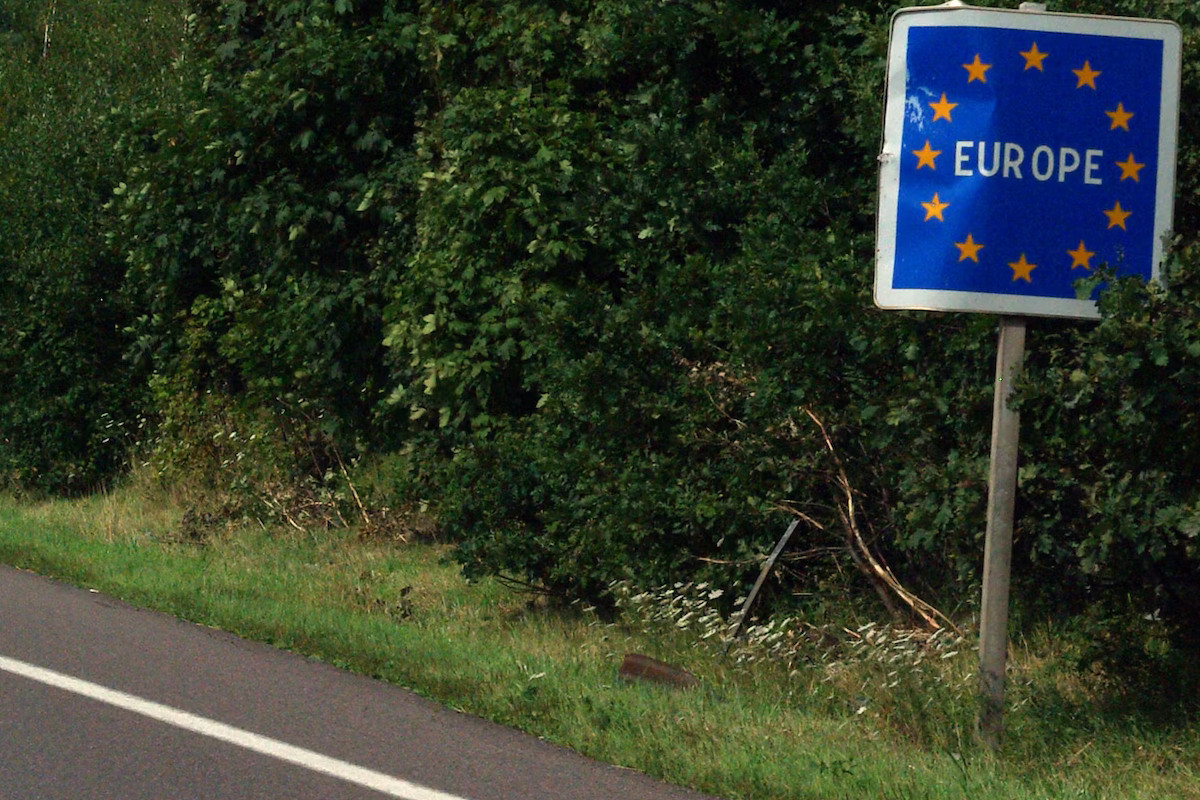
Viewpoint: How to make fences and influence people: a simple guide
Category: Analysis
Are you an EU member state looking to divert attention from the human rights abuses you are committing at your border? By following this simple guide, you can ensure that not only will the European Commission, the “Guardian of the Treaties”, turn a blind eye to those abuses, but that you will receive a healthy cash injection at the same time!

Prosecuting solidarity: extracts from a new book on the Riace case
Category: Analysis
A book about the political use of judicial proceedings to curtail a virtuous example of solidarity at work in reception practices in a small southern town in Calabria, Riace, led by its former mayor, Mimmo (Domenico) Lucano. Hearings of the appeal trial in Reggio Calabria are underway, after the first trial in Locri (whose sentence is commented on in these two extracts) found several defendants guilty, imposing lengthy prison terms (over 13 years for Lucano, over 80 years in total for 18 defendants) and financial penalties. The contributions to this book focus on the trial, the sentence, the appeal and the reality of the experience of Riace, including trial monitoring reports by Giovanna Procacci.

Submission to European Commission consultation on "security-related information sharing"
Category: Analysis
The Commission’s initiative for a ‘Security-related information sharing system between frontline officers in the EU and key partner countries’ is a further development along the path of problematic border externalisation, and a trend of increasing use of large-scale processing of the personal data of non-EU citizens for combined criminal law and immigration control purposes, that civil society has been speaking out against for years.
“Call them crazy”: Criminalisation of activists undermines rule of law in the EU
Category: Analysis
The Dutch police continue to disregard the rule of law to criminalise the pacifist activist Frank van der Linde. In recent years, his personal data has been sent to Europol, he has been labelled a terrorist, and police have suggested he be referred to a psychiatric facility. Far from an isolated case, van der Linde’s story shows just how far police in Europe will go to criminalise the right to protest and stifle political dissent.
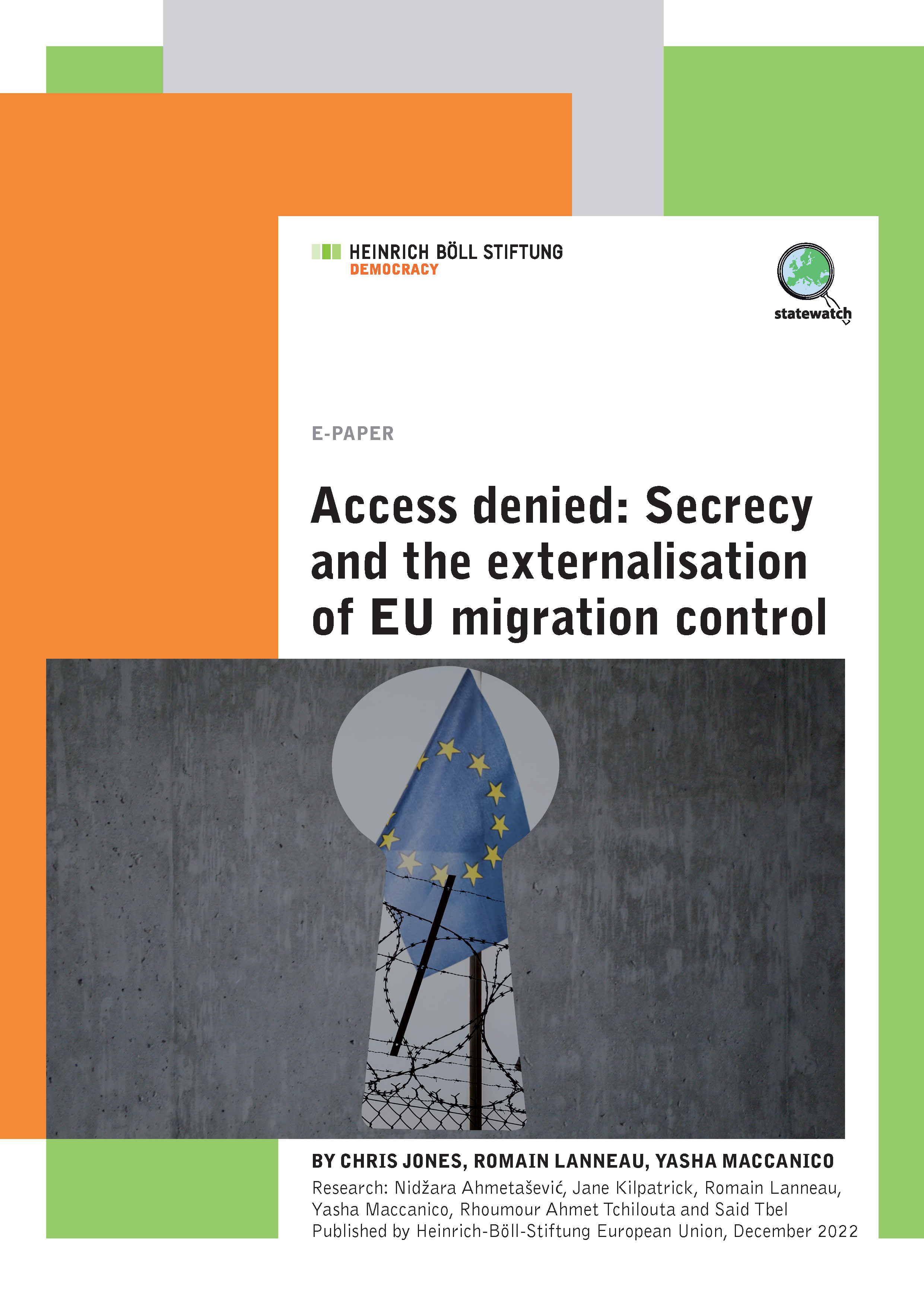
Access denied: Secrecy and the externalisation of EU migration control
Category: Publications and reports
For at least three decades, the EU and its Member States have engaged in a process of “externalisation” – a policy agenda by which the EU seeks to prevent migrants and refugees setting foot on EU territory by externalising (that is, outsourcing) border controls to non-EU states. The EU’s New Pact on Migration and Asylum, published in September 2020, proposed a raft of measures seeking to step up operational cooperation and collaboration in order to further this agenda.

Migration policy overspill: access to information in peril
Category: Analysis
It is well-documented that the externalisation of migration and border policies by the EU and other western states has led to appalling violations of human rights. While this is by far the most important issue resulting from border externalisation, there are also many other negative effects - including attacks on the right to access and impart information.
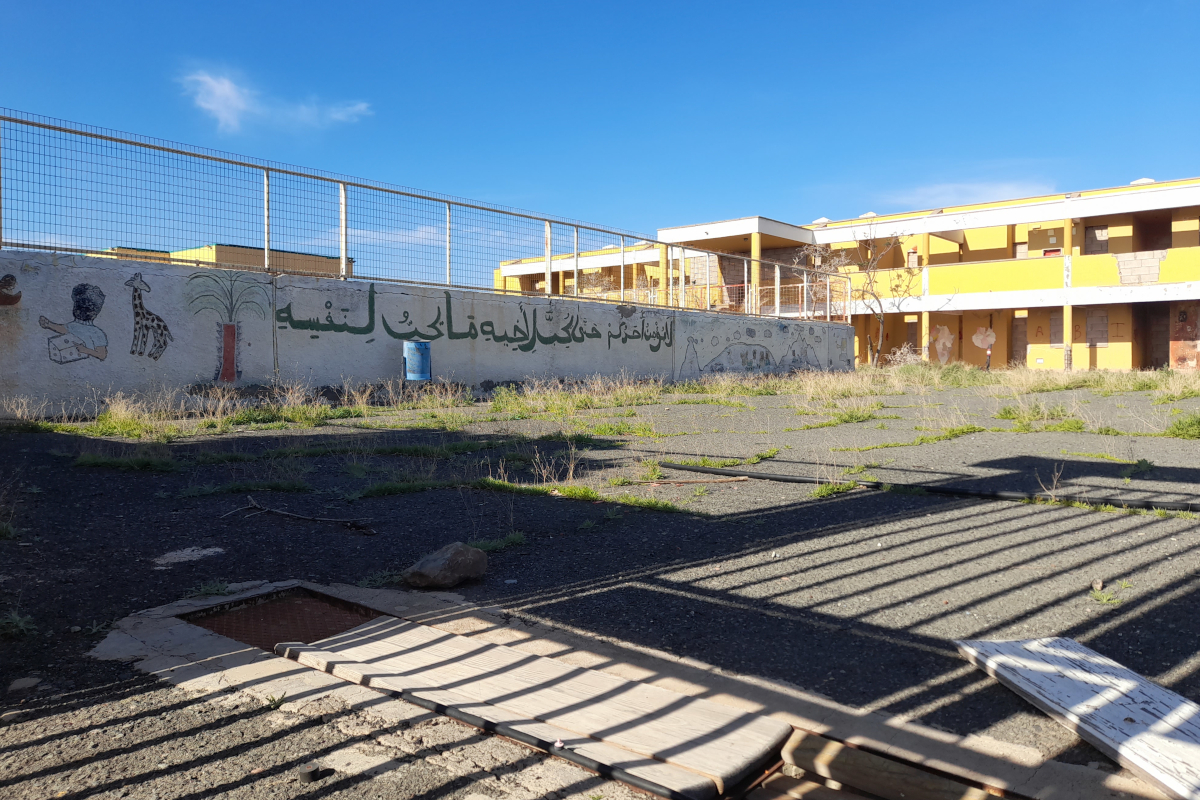
Unaccompanied and separated children: patterns of child migration are changing at the southern Spanish border
Category: Analysis
Since the early 1990s thousands of "unaccompanied and separated children" have arrived on Spanish territory. The authorities have frequently violated their rights. Policy changes and other events have led to migration patterns shifting over the years. A debate is needed over the facilities and care provided for child migrants, who at the moment are often housed in large facilities that do not meet their needs or uphold their rights.

Pushbacks, migration policy and returns at the core of EU support for authoritarian regimes
Category: Analysis
The ongoing debate on pushbacks and rights violations at external EU borders neglects an important aspect: the EU and its states betray their claimed goal to promote human rights, the rule of law and civil society development worldwide by helping authoritarian regimes oppress their citizens, and also to stop them from leaving.
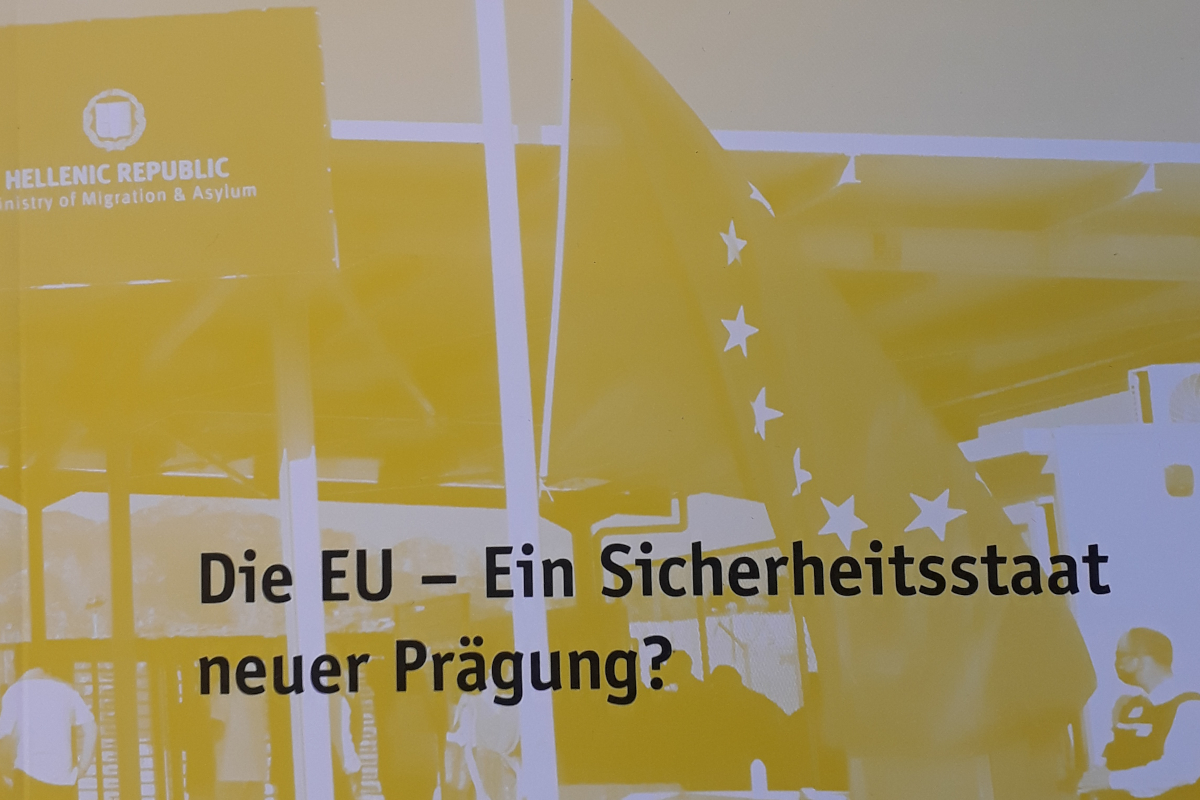
The European Union and its crises
Category: Analysis
Since the Amsterdam Treaty of 1999, various crises have served as a pretext for expanding EU security structures and the powers of repressive authorities. Politically motivated human rights abuses remain the order of the day and have been exacerbated by the recent “migration crisis” at the EU's eastern borders.
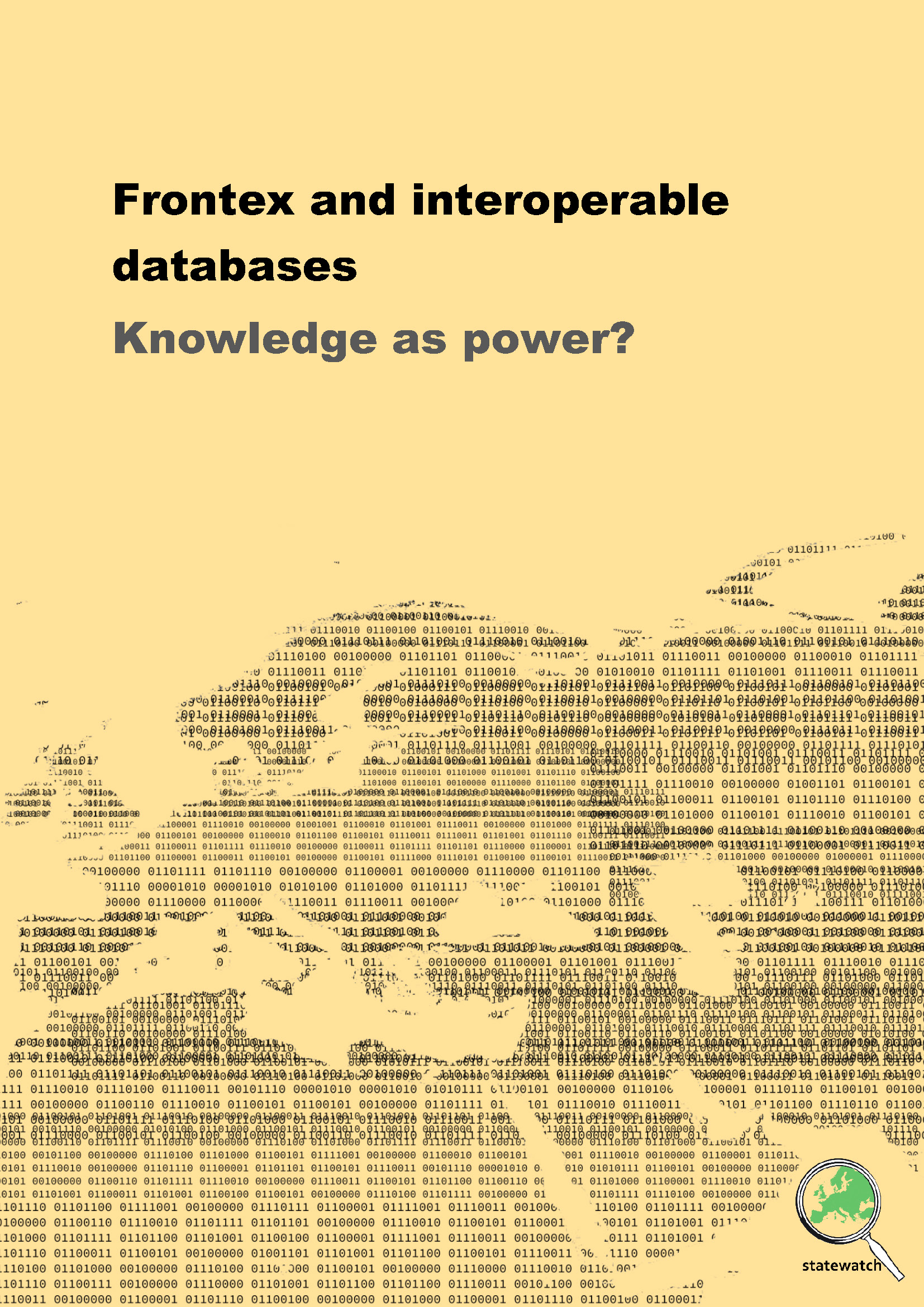
Frontex and interoperable databases: knowledge as power?
Category: Publications and reports
The EU’s border agency, Frontex, will be able to access vast quantities of data once the EU’s ‘interoperable’ policing and migration databases are fully operational. This briefing considers the agency’s use of data from two different perspectives – operational and statistical – and provides an overview of the agency’s role in the EU’s emerging “travel intelligence” architecture. It is aimed at informing understanding, analysis and critique of the agency and its role, with a view to making it possible to better understand, engage with and challenge future developments in this area.
Longtime Client Majid Khan Released from Guantánamo, to Begin New Life in Belize
Category: News
Press release by the Center for Constitutional Rights on the release of Majid Khan from Guantámo and his transfer to Belize.
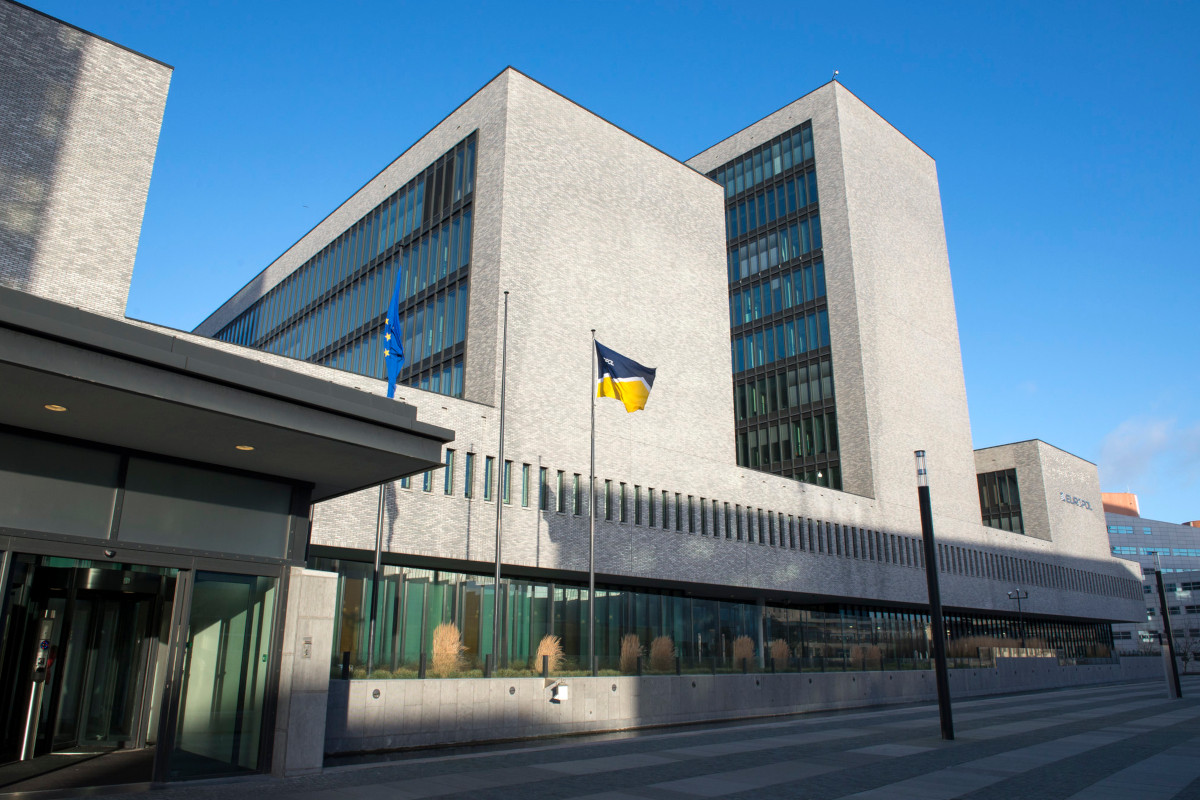
Workshop: Policing the crisis, policing as crisis: the problem(s) with Europol
Category: Events
We are hosting a workshop at Privacy Camp 2023 in Brussels.
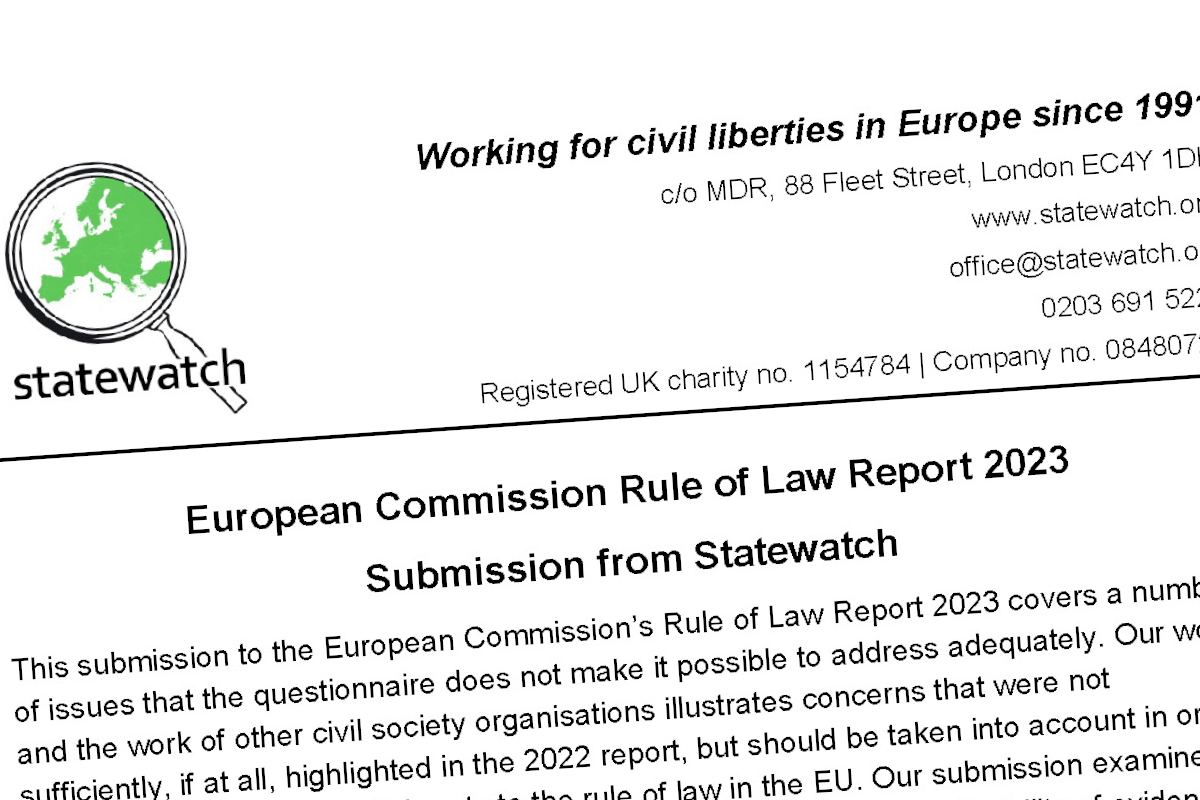
Submission for the EU Rule of Law Report 2023
Category: Evidence/Submission
On 20 January, we filed a submission to the European Commission's public consultation for its Rule of Law Report 2023, which will cover developments in 2022. Our submission highlights a number of topics - in particular regarding rule of law issues at EU level, surveillance, access to an effective remedy and the criminalisation of the press - that have not received sufficient attention in previous iterations of the report.

Frontex and deportations, 2006-21
Category: Analysis
Data covering 16 years of Frontex’s deportation operations shows the expanding role of the agency. We have produced a series of data visualisations to show the number of people deported in Frontex-coordinated operations, the member states involved, the destination states, and the costs.
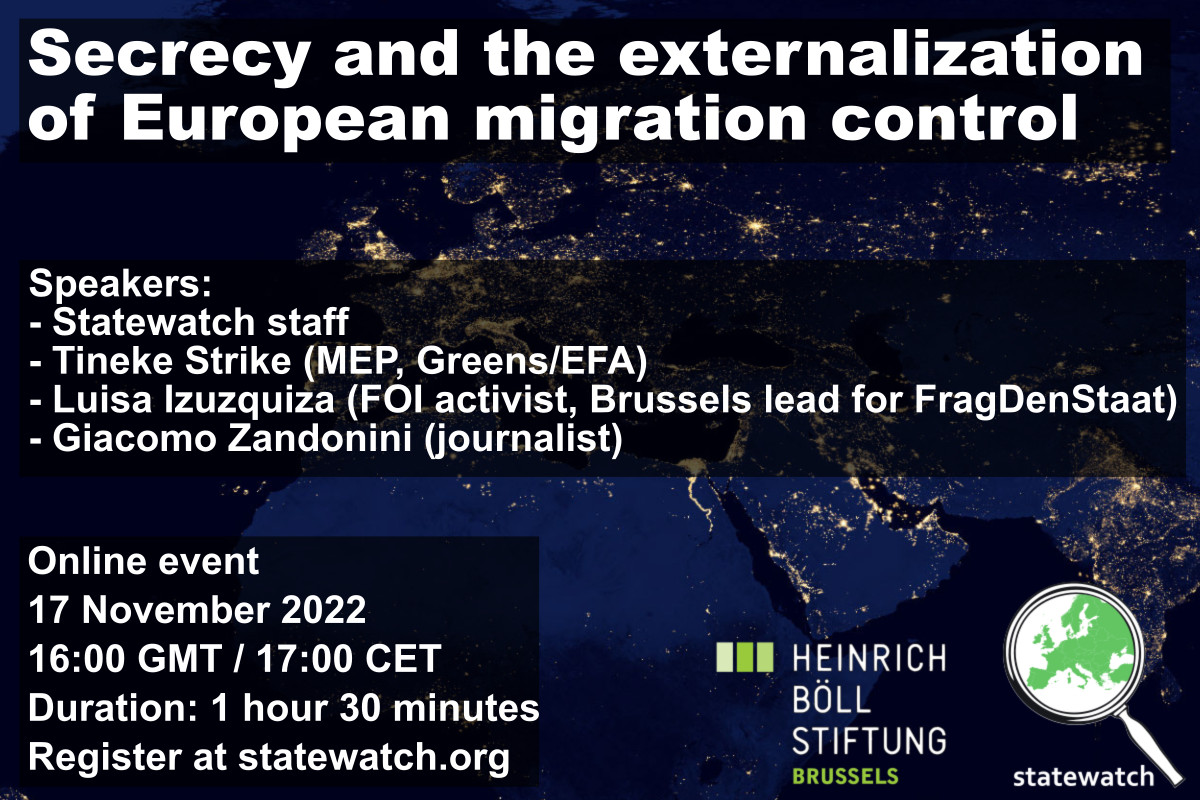
Secrecy and the externalisation of EU migration control
Category: Events
Since the EU Pact on Migration and Asylum was unveiled in September 2020, significant public and policy attention has been paid to the raft of new and recycled legal measures proposed. However, the Pact also includes a range of activities that do not undergo the same institutional to-and-fro as passing new laws.
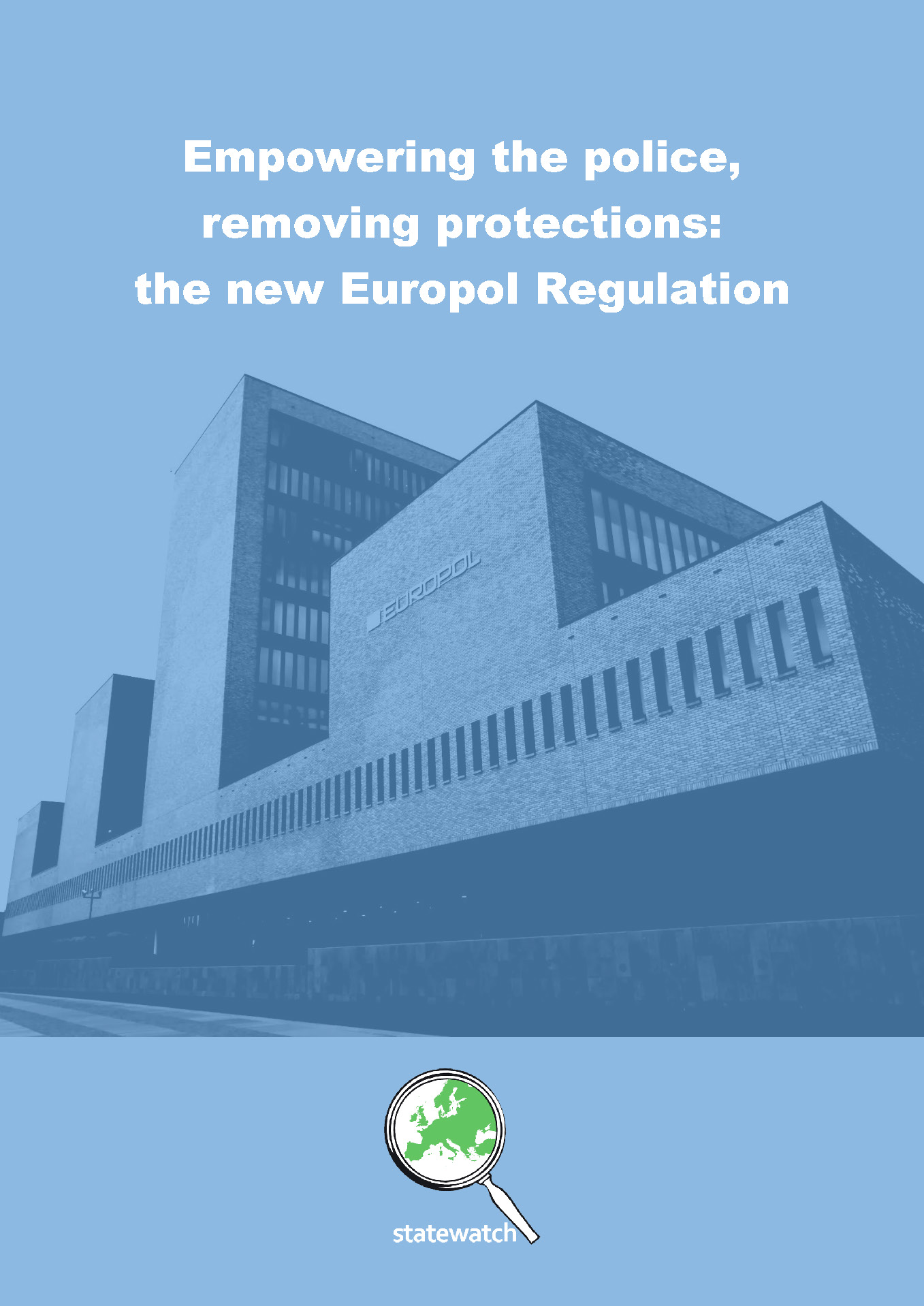
Empowering the police, removing protections: the new Europol Regulation
Category: Publications and reports
This report examines the new powers granted to EU policing agency Europol by legal amendments approved in June 2022. It finds that while the agency's tasks and powers have been hugely-expanded, in particular with regard to acquiring and processing data, independent data protection oversight of the agency has been substantially reduced.
Retroplanning for the drafting of the Agency’s implementing rules for the processing of operational personal data (Article 90 EBCG Regulation)
Category: Observatory: Frontex
List of preparatory activities, consultations and meetings by the management board of Frontex between June 2021 and December 2021 ahead of the adoption the new Frontex rules on Operational Personal Data (‘OPD’), meant to be done by the end of 2021.
Data Protection Officer comments on the draft Frontex Management Board Decisions
Documents with the first and second round of comments on the draft decisions on processing operational personal data.
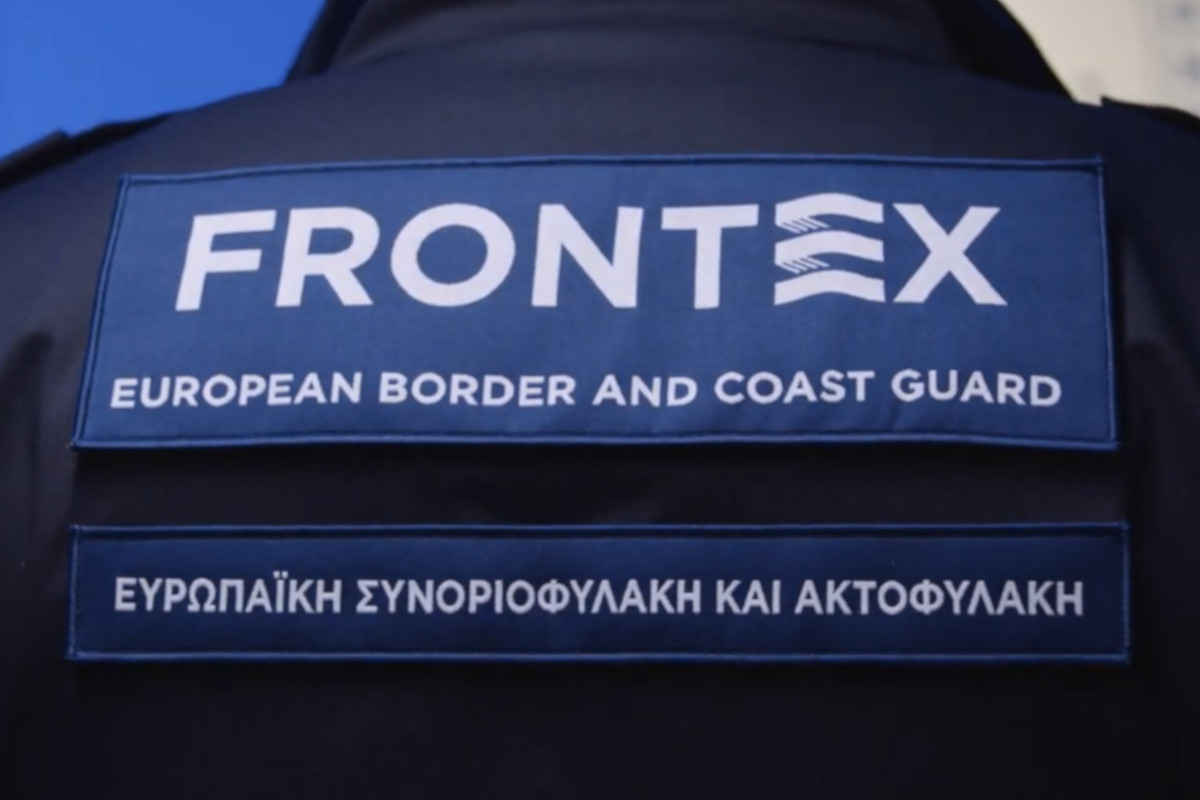
Evaluation of the 2019 Frontex Regulation: Statewatch submission to the European Commission call for evidence
Category: Evidence/Submission
We made a brief submission to the European Commission's call for evidence to inform the evaluation of the 2019 Frontex Regulation. The evaluation is due to be carried out between December 2022 and October 2023 by an external consultant. Our submission highlights issues concerning fundamental rights, transparency and accountability.

The Melilla border deaths represent a new phase in the bloody story of Fortress Europe
Category: Analysis
On 24 June dozens of people died after attempting to cross the heavily-fortified border from Morocco into the Spanish enclave of Melilla. A report by the Nador branch of the Association Marocain des Droits Humains (AMDH), summarised and built upon here, examines the build-up to and immediate aftermath of the deadly incident. The report documents multiple human rights violations and also reveals a significant shift: from EU authorities undertaking pushbacks and leaving people to their fate in situations in which they may come to harm, to EU authorities undertaking pushbacks with the explicit knowledge that they would be beaten and treated in an inhumane and degrading manner by their non-EU ‘partners’.

Questioning the interviewers: Frontex’s covert interrogations at the Spanish southern border
Category: Analysis
Tony, a police officer deployed multiple times in Frontex operations in Spain and Greece, slips on the word “interrogate”. He immediately corrects himself: “We are not allowed to say interrogate”. We both know that the term interrogation fits perfectly well.
CJEU judgment on the Passenger Name Record Directive
Category: Observatory: Travel surveillance and passenger profiling
The Court of Justice appears to have rewritten the EU's Passenger Name Record (PNR) Directive in a case concerning the effects of the law on fundamental rights. While the ruling introduces a number of restrictions on what the authorities may do with PNR data, it nevertheless legitmises its ongoing use as a policing tool.
FSWG exchange of view: Frontex and non-EU countries
The LIBE Committee Frontex Scrutiny Working Group (FSWG) held an exchange of views on Frontex’s activities in non-EU countries today, though certain questions by members were left conspicuously unanswered.

AI at the borders: Negotiations, regulations and fundamental rights
Category: Events
The Commission’s proposed AI Act aims to address the risks of certain uses of artificial intelligence and to establish a legal framework for the trustworthy deployment of AI. In the context of migration and border control, the Act raises significant concerns, which must be addressed in ongoing negotiations within Parliament, and in future campaigning and advocacy. Join us on Monday 16 May to discuss how AI is already used in the migration control context, and some of the key amendments that must be tabled to adequately protect the rights of people on the move.
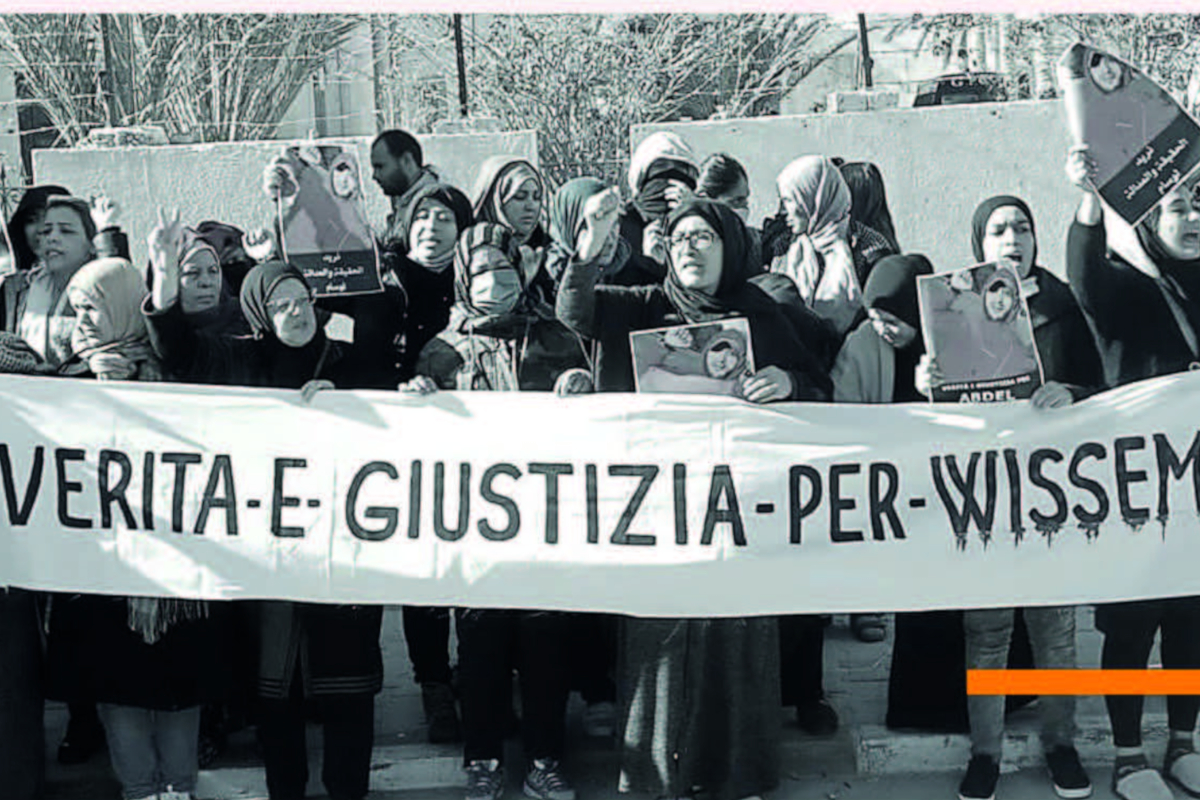
Tunisian deportees in Italy denied rights under European “migration management” policies that seek to exclude
Category: News
On 28 November 2021, Wissem Ben Abdellatif, a 26-year-old Tunisian man, died in a hospital in Rome after suffering a heart attack. He had been transferred to the hospital from the Ponte Galeria detention centre, where he was being held whilst awaiting deportation. A new report dedicated to his memory examines the experiences of Tunisian citizens deported from Italy. Based on over 50 in-depth interviews with deportees, it concludes that Tunisians are regularly denied their rights after arriving in Italian territory (for example, to legal advice, information, or adequate living conditions), and that the situation is propelled by a security-minded approach to migration that has been implemented across the EU and its member states for at least two decades.

A clear and present danger: Missing safeguards on migration and asylum in the EU’s AI Act
Category: News
The EU's proposed Artificial Intelligence (AI) Act aims to address the risks of certain uses of AI and to establish a legal framework for its trustworthy deployment, thus stimulating a market for the production, sale and export of various AI tools and technologies. However, certain technologies or uses of technology are insufficiently covered by or even excluded altogether from the scope of the AI Act, placing migrants and refugees - people often in an already-vulnerable position - at even greater risk of having their rights violated.
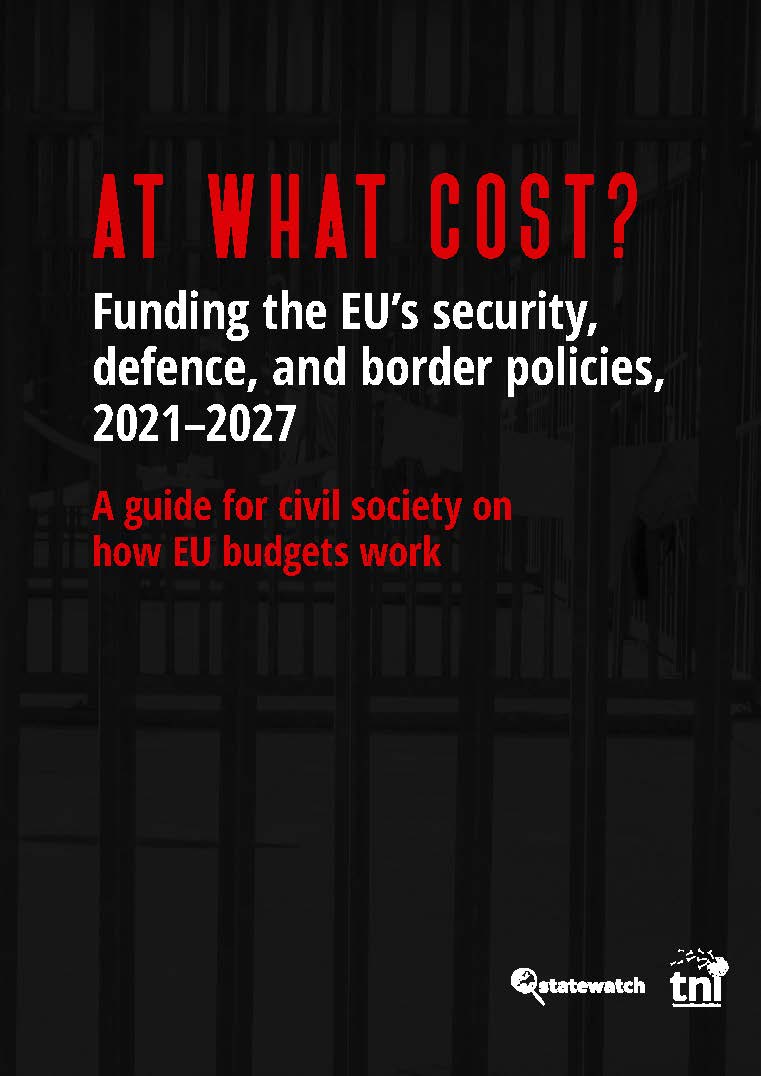
At what cost? Funding the EU’s security, defence, and border policies, 2021–2027
Category: Publications and reports
A critical guide for civil society on how EU budgets work. Co-published with the Transnational Institute.
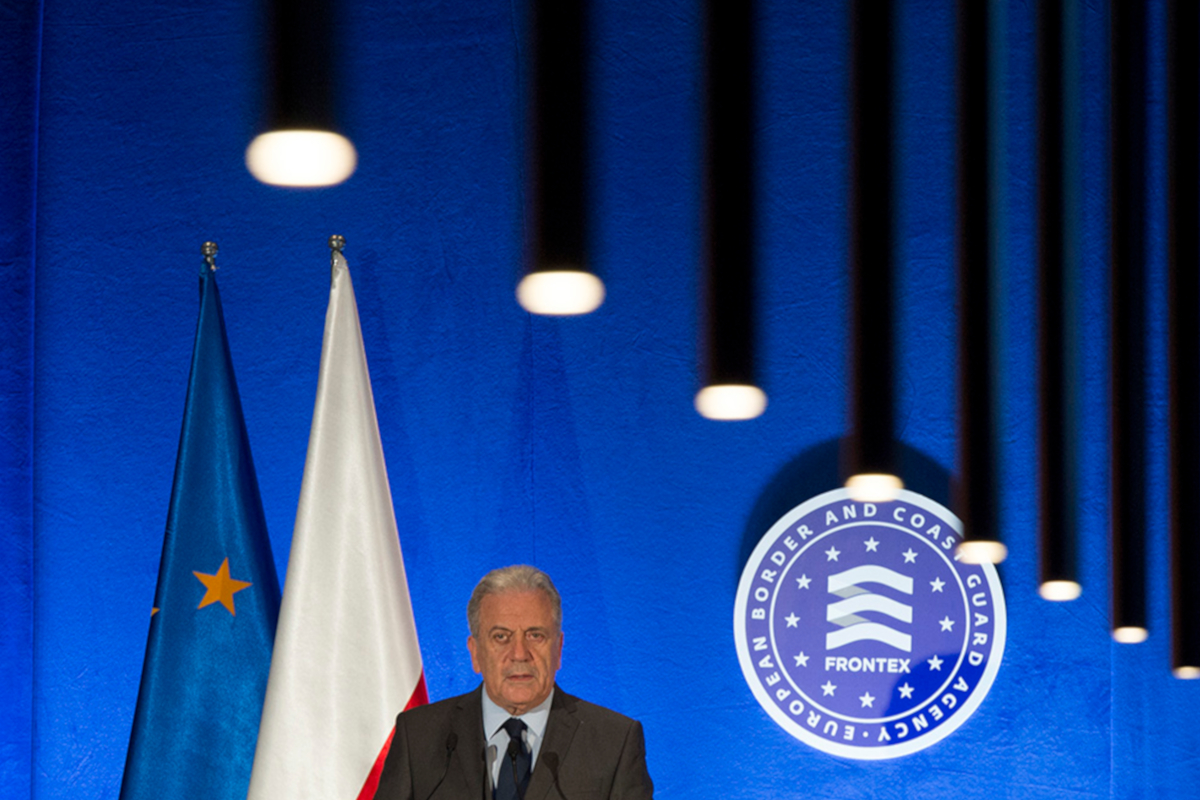
Frontex: more power, no responsibility? Mega-agency lacks real accountability structure
Category: Analysis
Since 2004, four successive regulations have increased the agency’s resources and mandate, but no adequate control mechanisms have followed to balance these with legal or political accountability.
Agreement between the European Union and the Republic of Moldova on operational activities carried out by the European Border and Coast Guard Agency in the Republic of Moldova
Category: Observatory: Frontex
MEPs withhold discharge of EU border control agency Frontex’ accounts
Category: Observatory: Frontex
Budgetary Control Committee (CONT) press release details reasons behind postponement of the decision on the European Border and Coast guard Agency accounts for 2020.
Evaluation report: JO Flexible Operational Activities in Return 2015
Category: Observatory: Frontex
Operations Division, Joint Operations Unit Return Operations Sector
Evaluation report 2014: JO Attica
Category: Observatory: Frontex
Operation division Joint Operations Unit Return Operations sector
Fundamental Rights Strategy 2021
Category: Observatory: Frontex
Endorsed by the Fundamental Rights Officer on 25 January 2021
Evaluation report: Rapid Border Intervention Exercise 2017
Category: Observatory: Frontex
2017/PRU/05 Operations Division Joint Operations Unit Land Borders Sector
Evaluation report: Joint Operation VEGA Children 2018
Category: Observatory: Frontex
Operational Response Division Field Deployment Unit Planning and Evaluation Sector
Evaluation report: Joint Operation VEGA Children 2017
Category: Observatory: Frontex
Operations Division Joint Operations Unit Air Border Sector
Evaluation report: JO Triton 2017
Category: Observatory: Frontex
Operational Response Division Field Deployment Unit
Evaluation report: JO Poseidon 2018
Category: Observatory: Frontex
Operational Response Division Field Deployment Unit
Evaluation report: Pulsar Concept Joint Operation Pegasus 2018
Category: Observatory: Frontex
Operational Response Division Field Deployment Unit
Evaluation report: Pulsar Concept Joint Operation Pegasus 2017
Category: Observatory: Frontex
Operational Response Division Field Deployment Unit
Evaluation report: Joint Operation Minerva 2017
Category: Observatory: Frontex
Operations Division Joint Operations Unit Sea Borders Sector
Evaluation report: JO Hera 2018
Category: Observatory: Frontex
Operational Response Division Field Deployment Unit
Evaluation report: Joint Operation Focal Points 2018 Land
Category: Observatory: Frontex
Operational Response Division Field Deployment Unit
Evaluation Report: Focal Points Concept Joint Operation Focal Points Air 2017
Category: Observatory: Frontex
Regular Officers: Operations Division Joint Operations Unit Air Border Sector
Evaluation report: Focal Points Concept JO
Category: Observatory: Frontex
Focal Points 2017 Air – Intermediate Managers
Evaluation report: Joint Operation Focal Points 2017 Land
Category: Observatory: Frontex
Operational Response Division Field Deployment Unit
Evaluation report: JO Flexible Operational Activities 2018 Land on Border Surveillance
Category: Observatory: Frontex
Operational Response Division Field Deployment Unit
Evaluation report: Joint Operation Flexible Operational Activities 2018 Land on Border Checks
Category: Observatory: Frontex
Operational Response Division Field Deployment Unit
Evaluation report: JO Flexible Operational Activities 2017 Land on Border Surveillance
Category: Observatory: Frontex
Operational Response Division Field Deployment Unit
Evaluation Report: Joint Operation Flexible Operational Activites land 2017 on Border Checks
Category: Observatory: Frontex
Evaluation report: Joint Operation Coordination Points 2017
Category: Observatory: Frontex
Operations Division Joint Operations Unit Land Borders Sector
Evaluation report: Focal points concept
Category: Observatory: Frontex
Joint Operation Coordination Points Air 2018
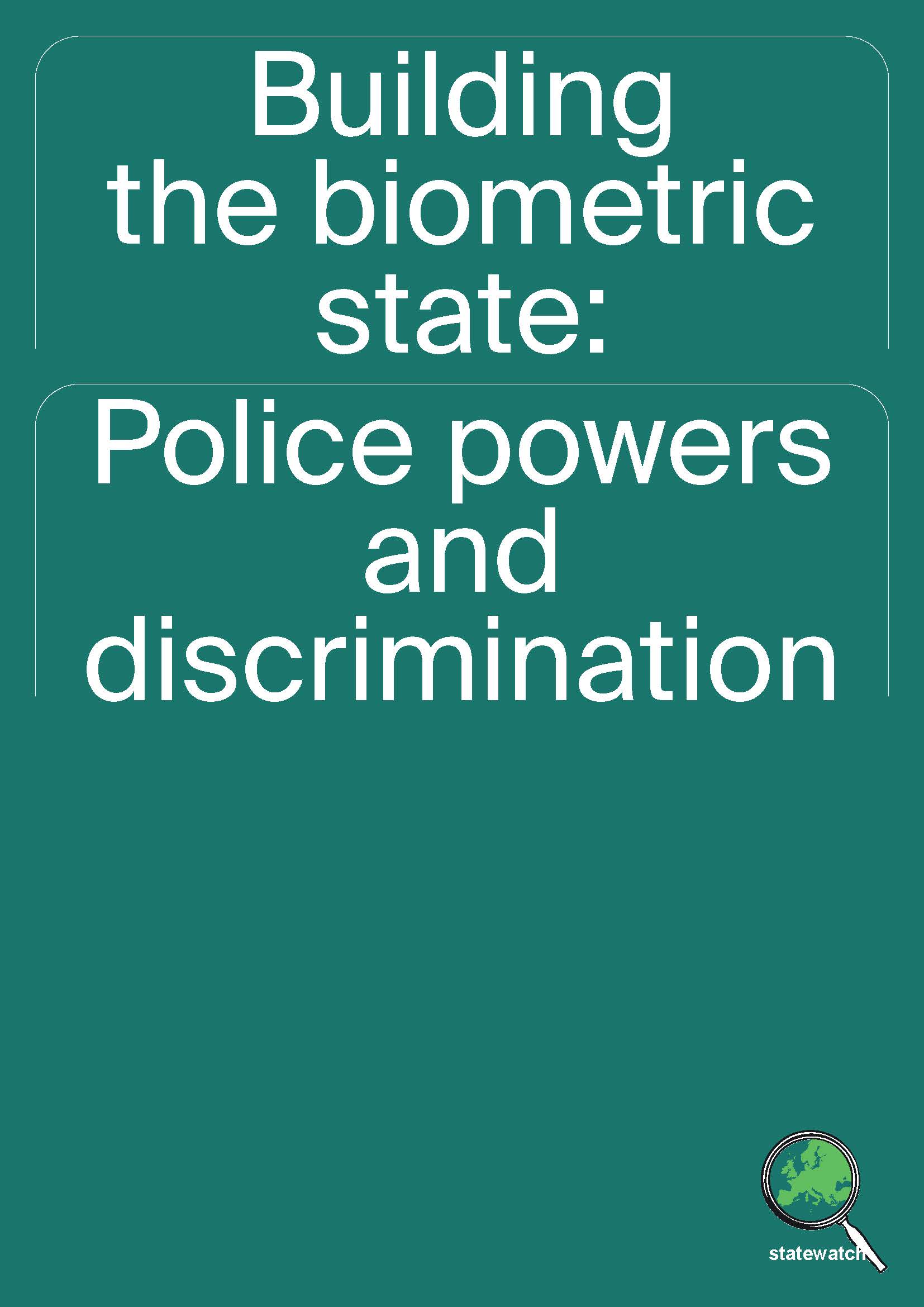
Building the biometric state: Police powers and discrimination
Category: News
This report examines the development and deployment of biometric identification technologies by police and border forces in Europe, and warns that the increasing use of the technology is likely to exacerbate existing problems with racist policing and ethnic profiling.
Mariana Gkliati and Jane Kilpatrick: Crying Wolf Too Many Times: The Impact of the Emergency Narrative on Transparency in FRONTEX Joint Operations
Category: Observatory: Frontex
Crisis-driven EU policy in recent years fits within a securitisation narrative, in which the claim of public security threat outweighs fundamental rights and their accountability safeguards. Under this policy development, Frontex, the EU Border and Coast Guard Agency, has experienced an impressive expansion in its powers and competences, without the equivalent enhancement of accountability safeguards. This article, published in the Utrecht Law Review, focuses in particular on the issue of transparency as a fundamental right and an element of social and political accountability.
Joint Operation Coordination Points 2018 Land Operational Response Division Field Deployment Unit Operational Planning and Evaluation Sector
Category: Observatory: Frontex
Frontex evaluation report 2018: Joint Operation Coordination Points 2018 Land Operational Response Division Field Deployment Unit Operational Planning and Evaluation Sector
JO Alexis 2018 Operational Response Division Field Deployment Unit
Category: Observatory: Frontex
Frontex evaluation report 2018 JO Alexis 2018 Operational Response Division Field Deployment Unit
Pulsar Concept Joint Operation Alexis 2017 Operations Division Joint Operations Unit Air Border Sector
Category: Observatory: Frontex
Frontex evaluation report 2017
Category: Observatory: Frontex
Frontex evaluation report 2017 Focal Points Concept Joint Operation Focal Points Sea 2017
Frontex staff code of conduct
Category: Observatory: Frontex
Frontex staff code of conduct 2015
Code of conduct for return operations
Category: Observatory: Frontex
Following Decision of the Executive Firector No R-ED-2018-40 adopting the code of conduct for return operations and return interventions coordinated or organised by Frontex of 26/04/2018
Annual report on sea surveillance
Category: Observatory: Frontex
Frontex´ Annual Reports on the implementation on the EU Regulation 656/2014 of the European Parliament and of the Council of 15 May 2014 establishing rules for the surveillance of the external sea borders
Annual information on the commitments of the member states to the European Border Guard teams and the Technical Equipment Pool
Category: Observatory: Frontex
Annual report on the implementation on the EU Regulation 656/2014
Frontex’ Annual Report on the implementation on the EU Regulation 656/2014 of the European Parliament and of the Council of 15 May 2014 establishing rules for the surveillance of the external sea borders.
Mariana Gkliati and Jane Kilpatrick: Frontex cooperation with third countries: examining the human rights implications
Category: Observatory: Frontex
Action brought on 21 May 2021 – SS and ST v Frontex (Case T-282/21)
Category: Observatory: Frontex
In May 2021 the organisation front-LEX filed legal proceedings against Frontex at the European Court of Justice, calling on the tribunal to force Frontex to terminate its activities in the Aegean Sea due to the "undisputed and overwhelming evidence for serious and persisting violations of fundamental rights" in the agency's area of operations. The application was made on behalf of two people - a child asylum-seeker and an adult who is now a recognised refugee in Greece, known as SS and ST - and argues that Frontex had contributed to the fundamental rights violations they suffered on the journey to Greece.

Brexit: Goodbye and hello – the new EU-UK security architecture, civil liberties and democratic control
Category: Publications and reports
The UK government's domestic programme seeks to crack down on dissent and to abolish or severely limit ways for the public to hold the state to account. This report shows that those ambitions also play a role in the post-Brexit agreement with the EU. The treaty makes it possible for the UK to opt in to intrusive EU surveillance schemes with no explicit need for parliamentary scrutiny or debate, and establishes a number of new joint institutions without sufficient transparency and accountability measures.
Action for damages for illegally deporting people and violating fundamental rights
Category: Observatory: Frontex
Court: EU General Court
MANAGEMENT BOARD DECISION 68/2021 of 21 December 2021 adopting the rules on processing personal data by the Agency
Category: Observatory: Frontex
Text of the Management Board Decision 68/2021 of 21 December 2021 adopting the rules on processing personal data by the agency.
MANAGEMENT BOARD DECISION 69/2021 of 21 December 2021 adopting the rules on processing operational personal data by the Agency
Category: Observatory: Frontex
Text of the Management Board Decision 69/2021 of 21 December 2021 adopting the rules on processing operational personal data by the agency.
Notification of the Management Board Decision 69/2021 adopting the rules on processing operational personal data by the agency
Category: Observatory: Frontex
Management Board Decision 69/2021 of 21 December 2021 adopting the rules on processing operational personal data by the agency.
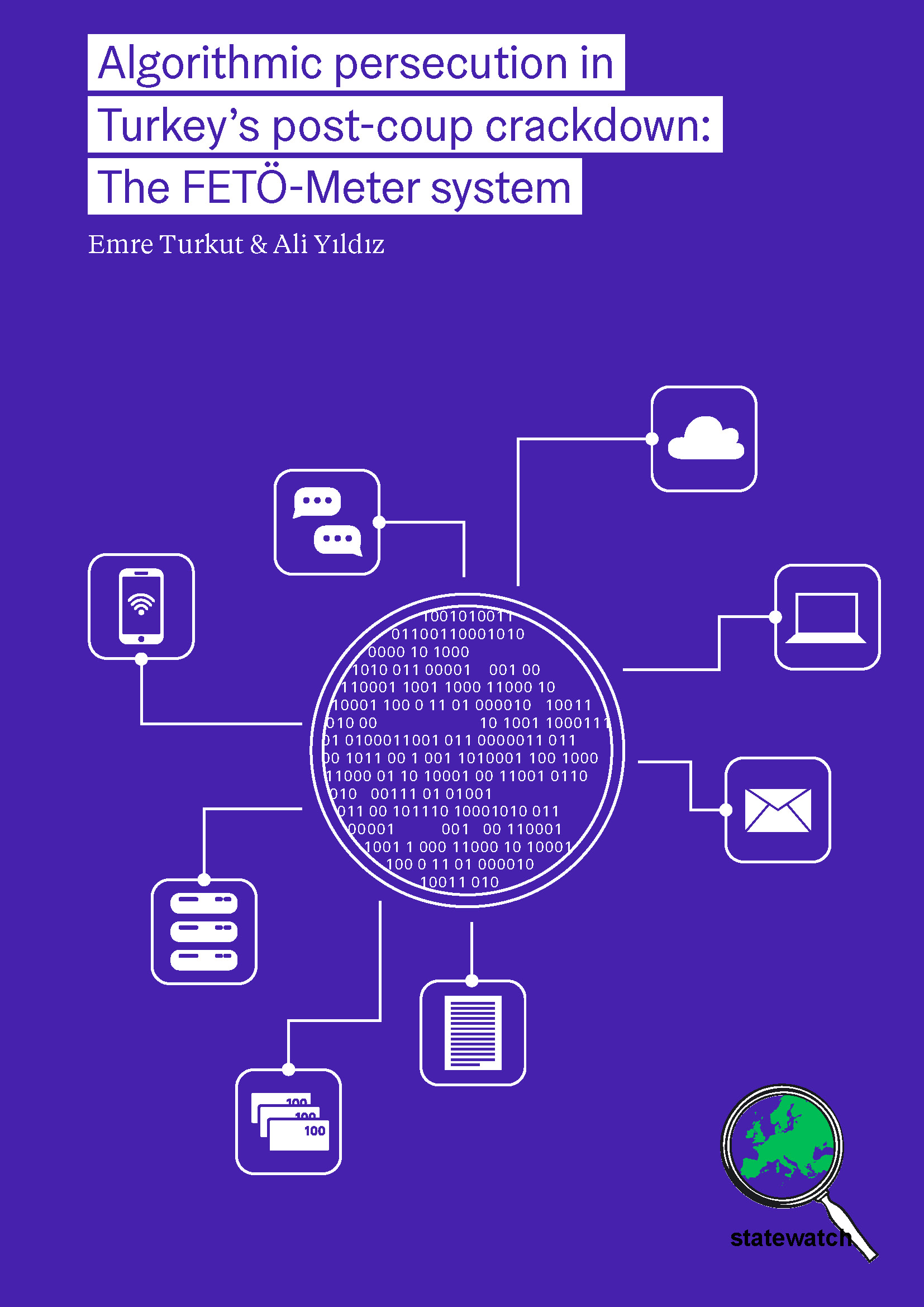
Algorithmic persecution in Turkey’s post-coup crackdown: The FETÖ-Meter system
Category: Publications and reports
Based on interviews with exiled members of the Turkish military, this report looks at how the Turkish authorities utilised something called the 'FETÖ-Meter' - an Excel-based algorithm based on hundreds of data points about individuals' activities, education, work history, family and personal contacts - to target officials for persecution in the wake of the attempted July 2016 coup.

Monitoring the state and learning from history: policing and racism in the Statewatch Library & Archive
Category: Events
We invite you to join us in exploring the connections, similarities and differences between past and present events and struggles through an examination of materials from the Statewatch Library & Archive, a collection of over 800 books, 2,500 items of ‘grey literature’ and a host of other documents and ephemera concerning civil liberties and the state.

Secrecy in the European Union: how to exercise your right to information
Category: Events
This online event is held with the School for Policy Studies, University of Bristol and is supported by the Economic and Social Research Council's as part of the Festival of Social Sciences . We will look at how governments have sought to maintain secrecy in the EU, and teach you how you can exercise your right to access information.

Deportation Union: the role of Frontex
Category: Events
Join Statewatch and the Transnational Institute (TNI) on Monday 14 December for the third and final webinar in the series covering Statewatch’s report ‘Deportation Union: Rights, accountability and the EU's push to increase forced removals’.

Deportation Union: databases for expulsions
Category: Events
The second in our series of webinars exploring the report 'Deportation Union: Rights, accountability and the EU's push to increased forced removals'.
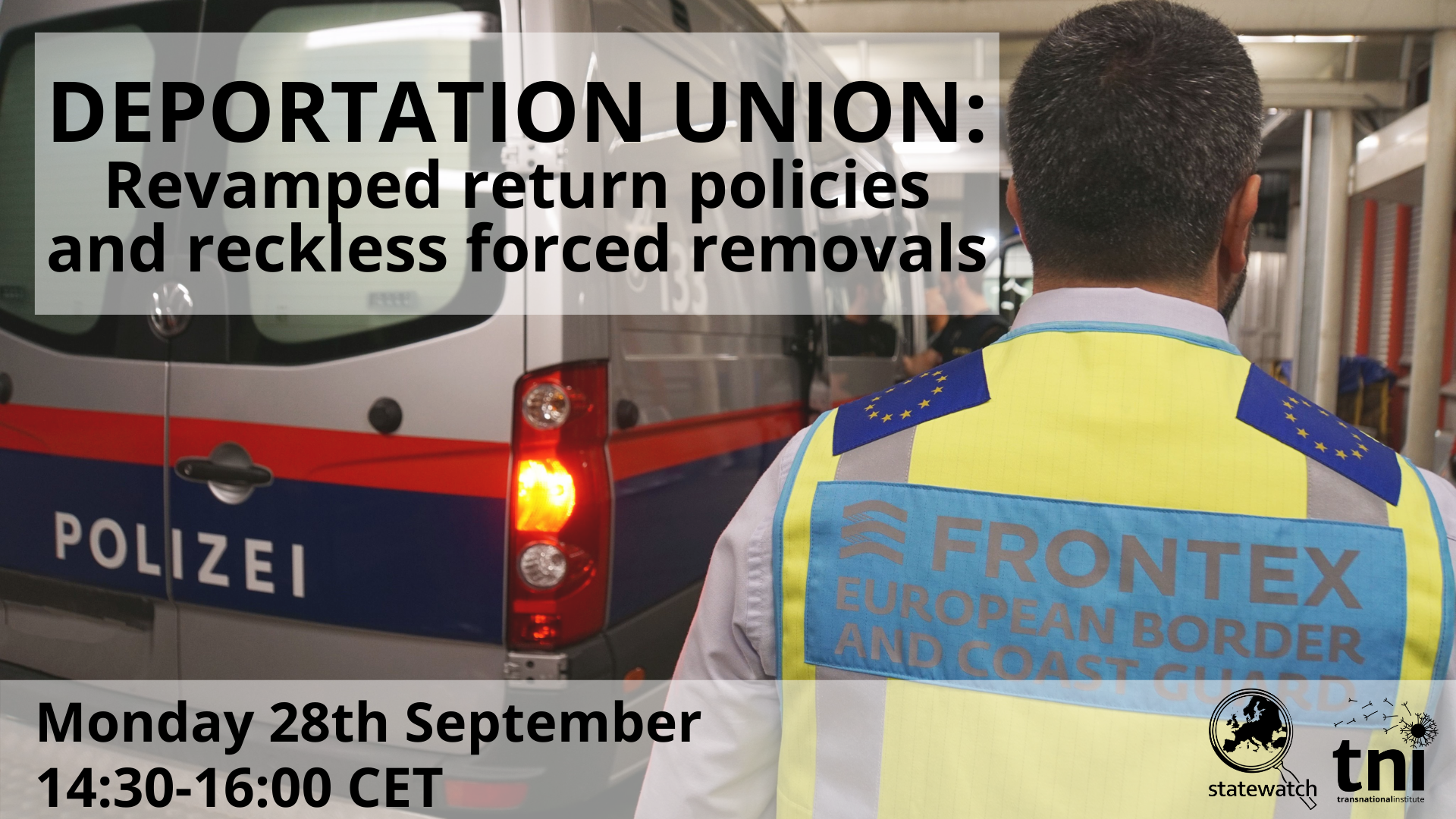
Deportation Union: revamped return policies and reckless forced removals
Category: Events
On 28 September Statewatch and TNI hosted the first webinar of a three-part series accompanying the publication of the report 'Deportation Union: Rights, accountability and the EU's push to increased forced removals'.
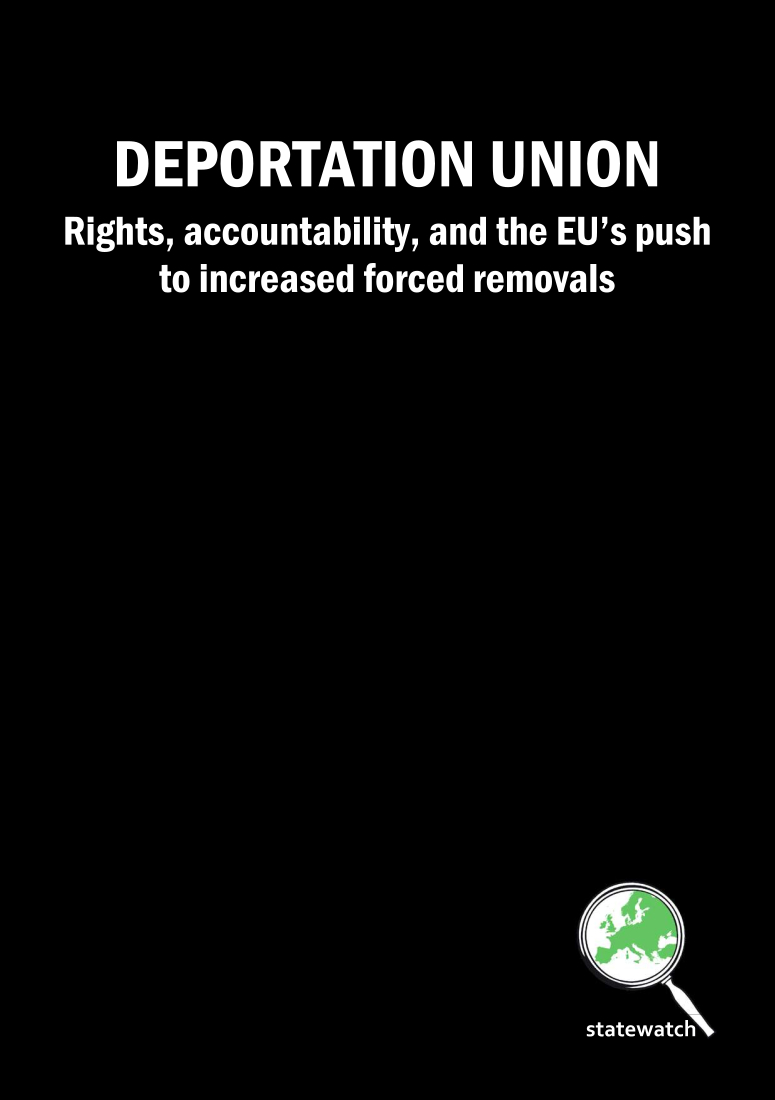
Deportation Union: Rights, accountability and the EU's push to increase forced removals
Deportation Union provides a critical examination of recently-introduced and forthcoming EU measures designed to increase the number of deportations carried out by national authorities and the European Border and Coast Guard Agency, Frontex. It focuses on three key areas: attempts to reduce or eliminate rights and protections in the law governing deportations; the expansion and interconnection of EU databases and information systems; and the increased budget, powers and personnel awarded to Frontex.
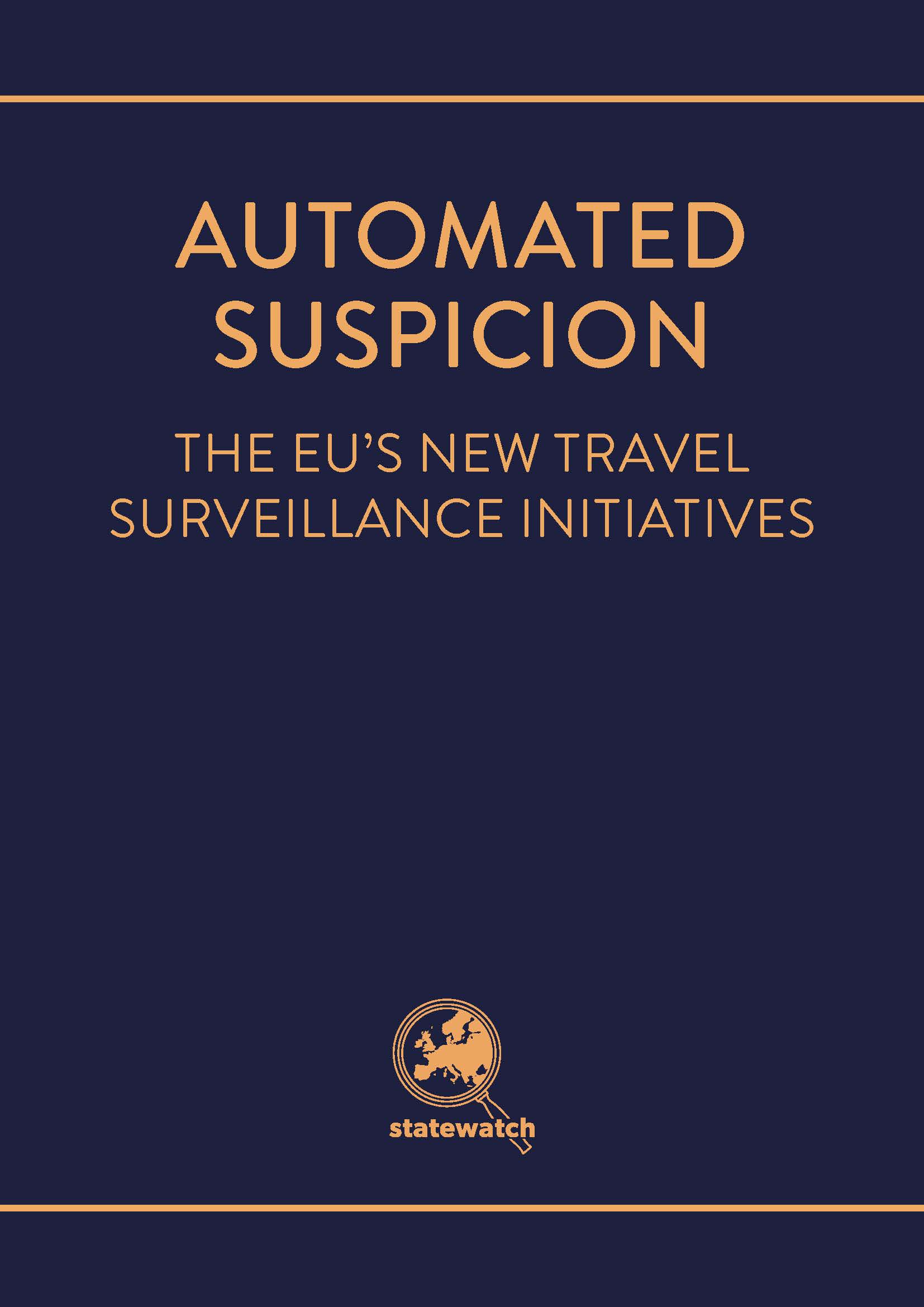
Automated suspicion: The EU's new travel surveillance initiatives
This report examines how the EU is using new technologies to screen, profile and risk-assess travellers to the Schengen area, and the risks this poses to civil liberties and fundamental rights. By developing ‘interoperable’ biometric databases, introducing untested profiling tools, and using new ‘pre-crime’ watchlists, people visiting the EU from all over the world are being placed under a veil of suspicion in the name of enhancing security.

Report launch: Automated suspicion: The EU’s new travel surveillance initiatives
Category: Events
Normal people are increasingly being treated as suspects when they travel to the EU. What are the risks for civil liberties?

Biometrics, big data and state power
Category: Events
Tue, 11 February 2020, 18:30–20:00
Northern Ireland: The legacy of collusion
Category: Events
Thursday 30 January 2020: 18.00 - 20.00 at: Statewatch, c/o: MAYDAY ROOMS, 88 Fleet St, London EC4Y
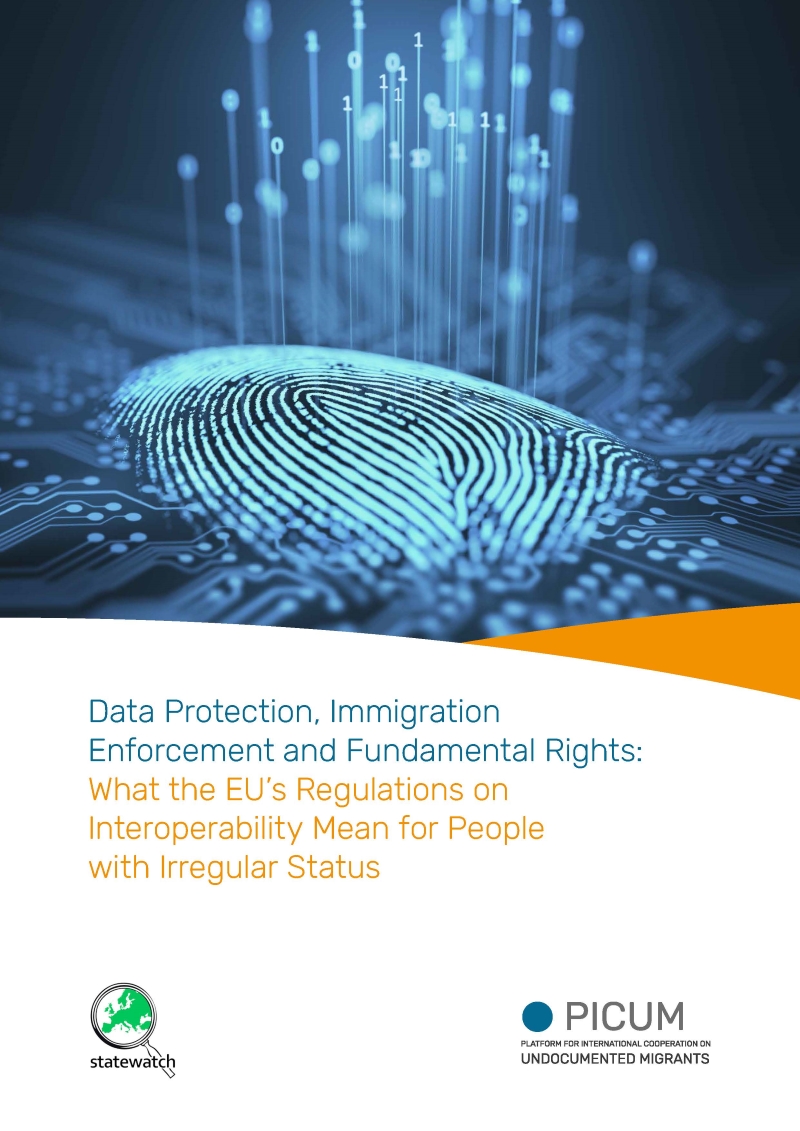
Data Protection, Immigration Enforcement and Fundamental Rights: What the EU’s Regulations on Interoperability Mean for People with Irregular Status
Category: Publications and reports
This paper examines the EU’s justice and home affairs databases and information systems, the changes that have been introduced by recent legislation seeking to make those systems ‘interoperable’ and the potential implications of those changes for fundamental rights, in particular in relation to undocumented migrants.
Launch of the Statewatch Library & Archive
Category: Events
The Statewatch Library & Archive is being launched on Thursday 22 November 2018 at May Day Rooms in London: 18.00 - 20.00.
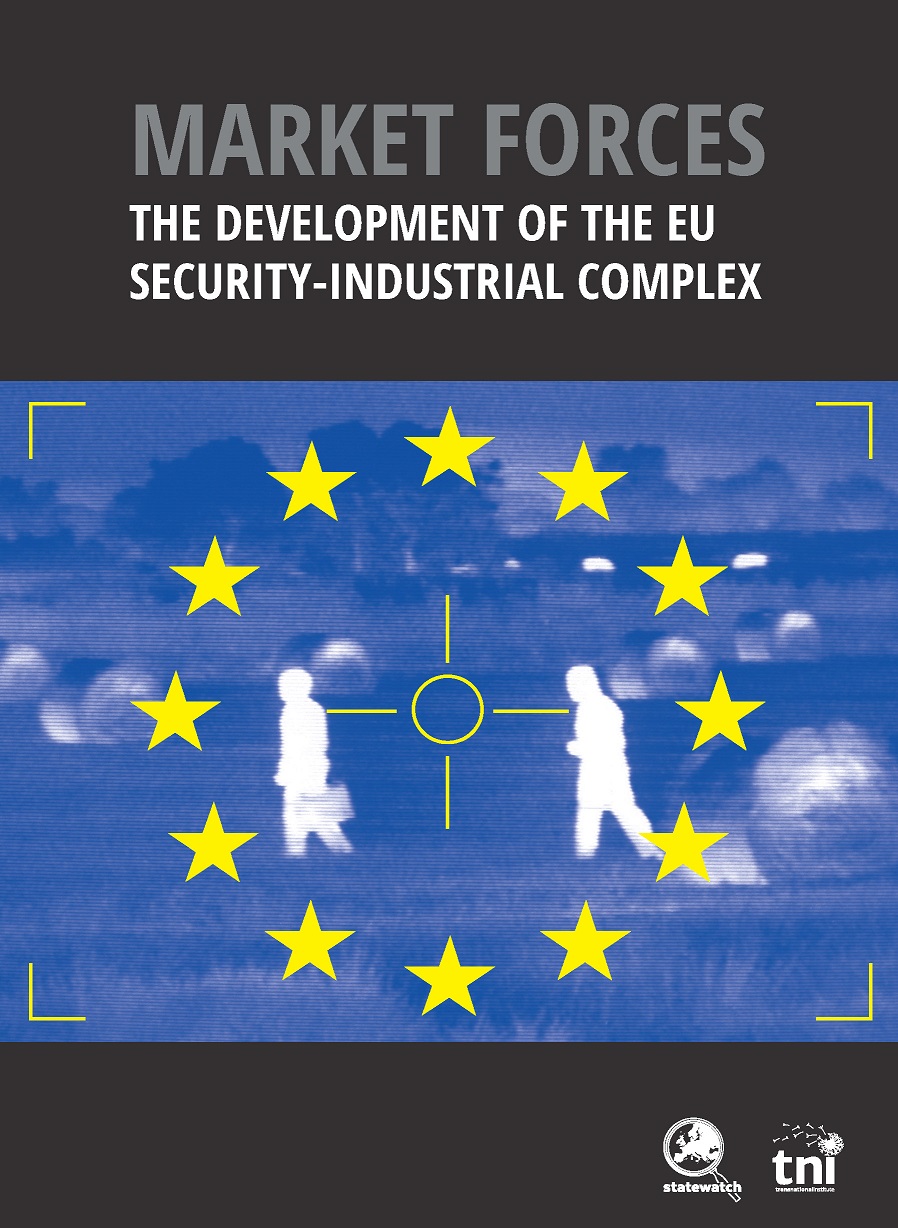
Market Forces: the development of the EU security-industrial complex
While the European Union project has faltered in recent years, afflicted by the fall-out of the economic crisis, the rise of anti-EU parties and the Brexit vote, there is one area where it has not only continued apace but made significant advances: Europe’s security policies have not only gained political support from across its Member States but growing budgets and resources too.

Eurodrones, Inc.
Eurodrones, Inc. tells the story of how European citizens are unknowingly subsidising through their taxes a controversial drone industry yet are systematically excluded from any debates about their use. Behind empty promises of consultation, EU officials have turned over much of drone policy development to the European defence and security corporations which seek to profit from it.
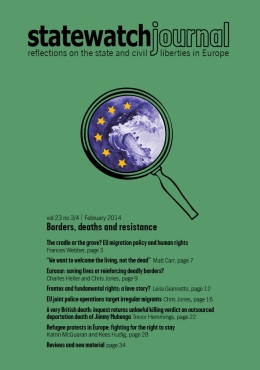
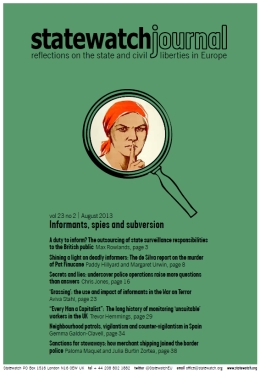
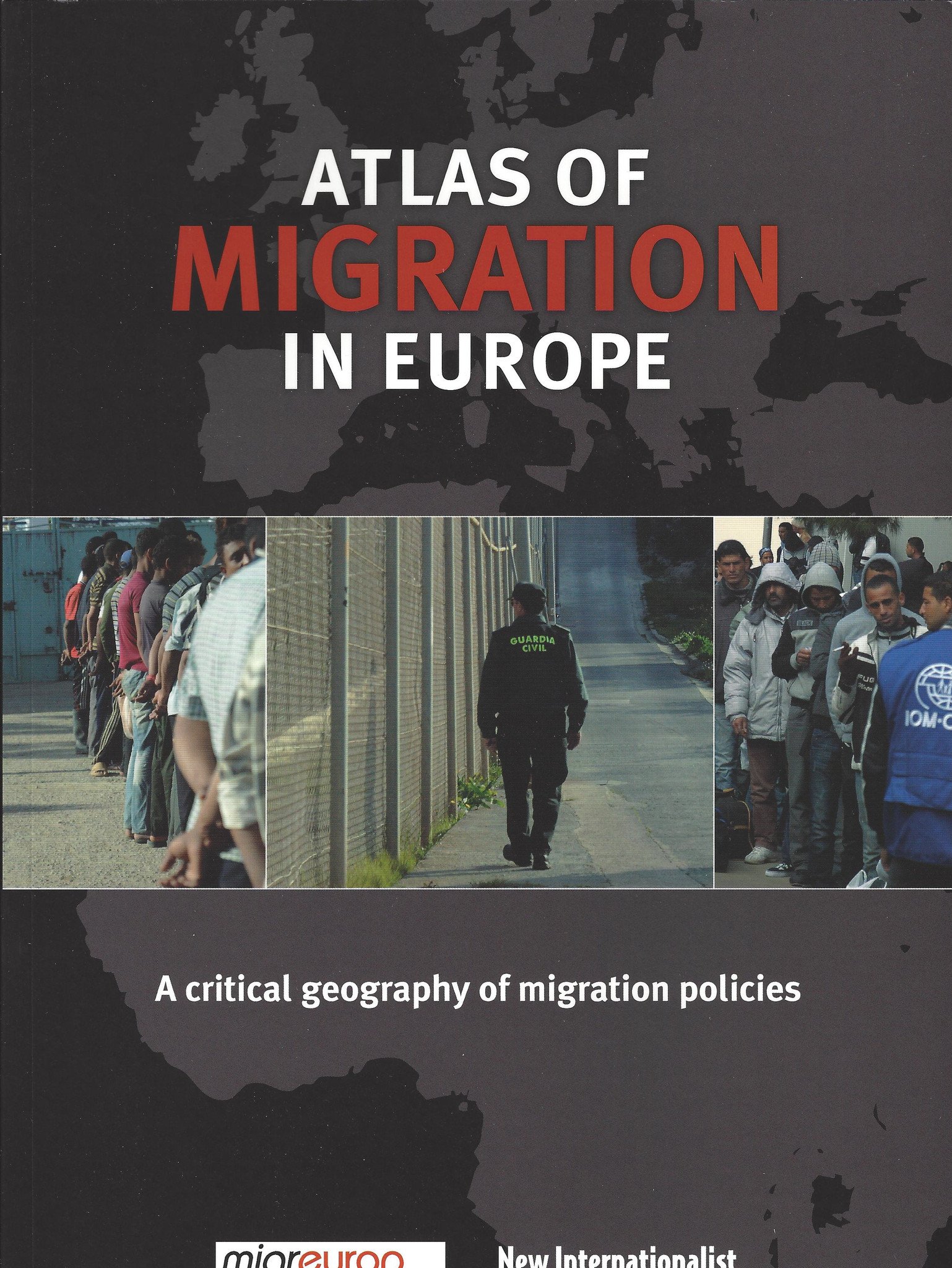
The Atlas of Migration in Europe
The second edition of Migreurop's Atlas of Migration in Europe.

Back from the battlefield: domestic drones in the UK
Back from the battlefield: domestic drones in the UK aims to contribute to the public debate on the use of drones within the UK.
SECILE: Does counter-terrorism just counter terrorism?
<p>Securing Europe through Counter-terrorism: Impact, Legitimacy and Effectiveness (SECILE)</p>
JUSTICIA: European Rights Network
<p>A joint initiative of 19 independent civil society organisations in 17 members states</p>
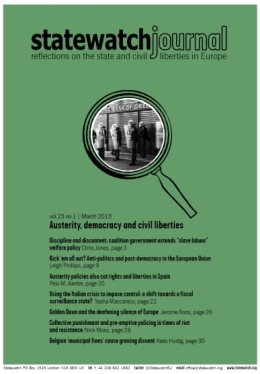
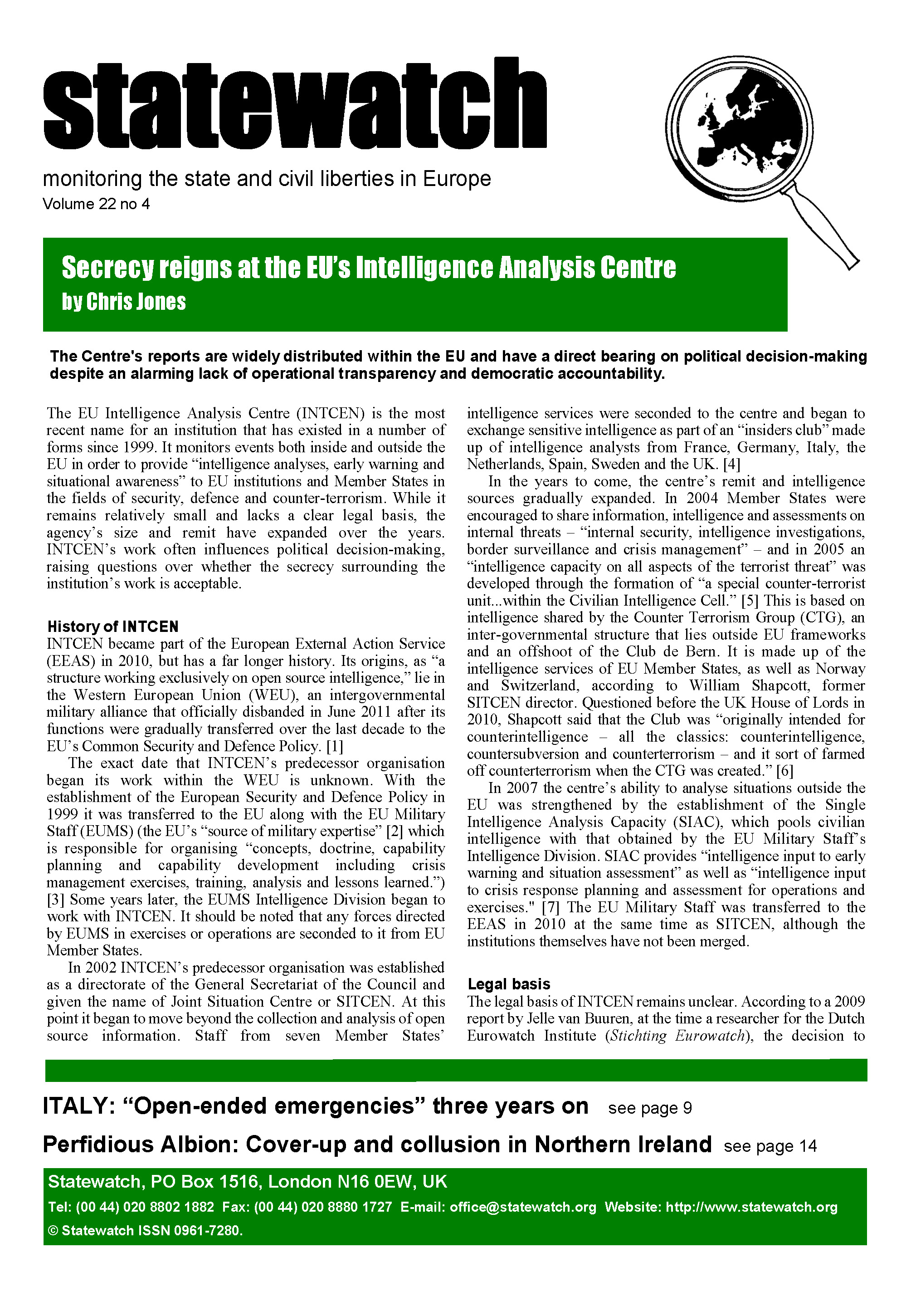
Vol 22(4): EU intelligence secrecy; Roma expulsions; Italy's open-ended emergency; Northern Ireland cover-ups
Cover story: Secrecy reigns at the EU’s Intelligence Analysis Centre
Access to EU documents: Calling the agencies to account
<p><em>Statewatch</em> complaints to the European Ombudsman regarding the transparency obligations of Frontex, Europol and Eurojust</p>
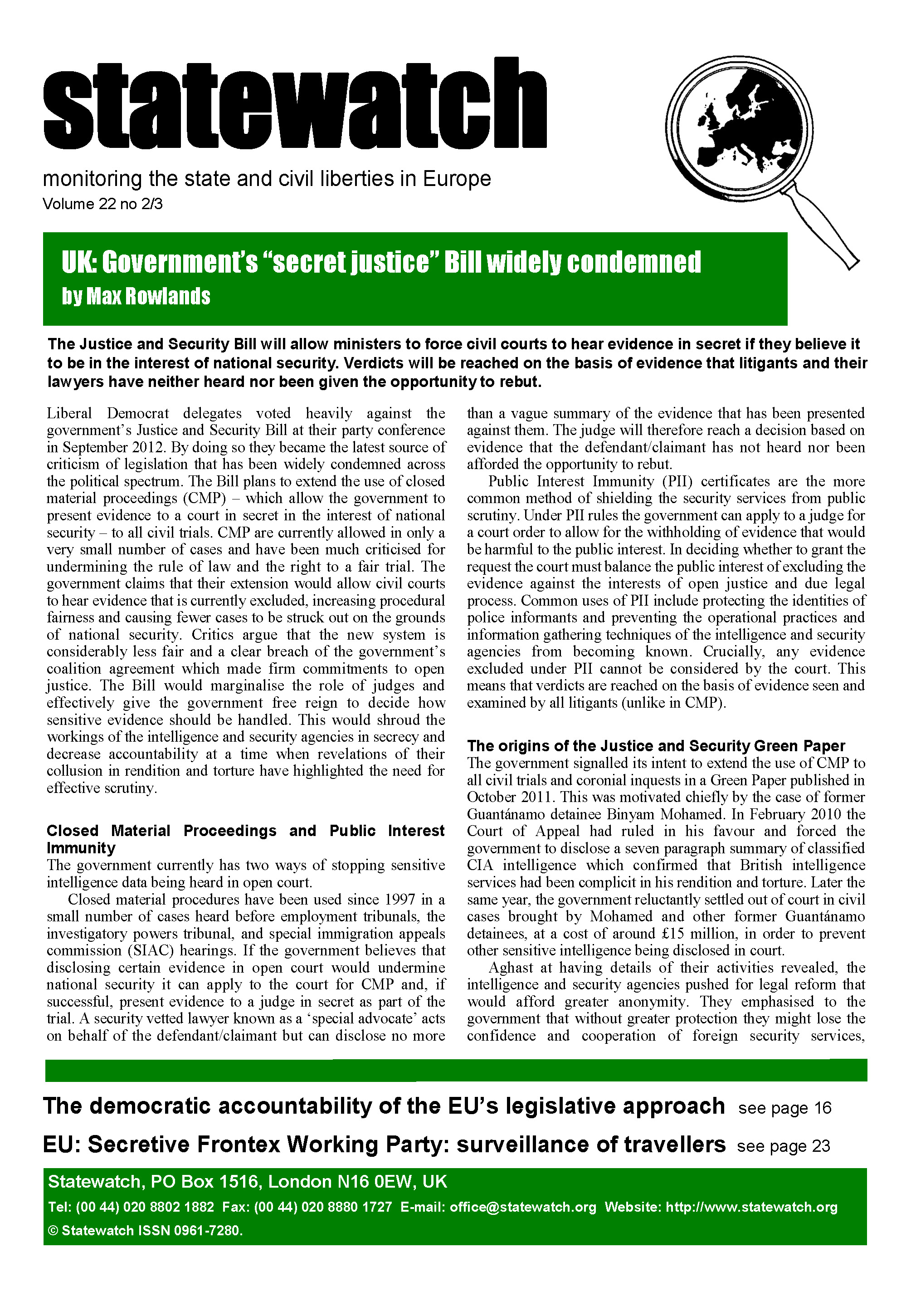
Vol 22(2/3): UK secret justice; when dissent becomes subversion; Sean Rigg's death; Frontex and travel surveillance
Cover story: UK: Government’s “secret justice” Bill widely condemned
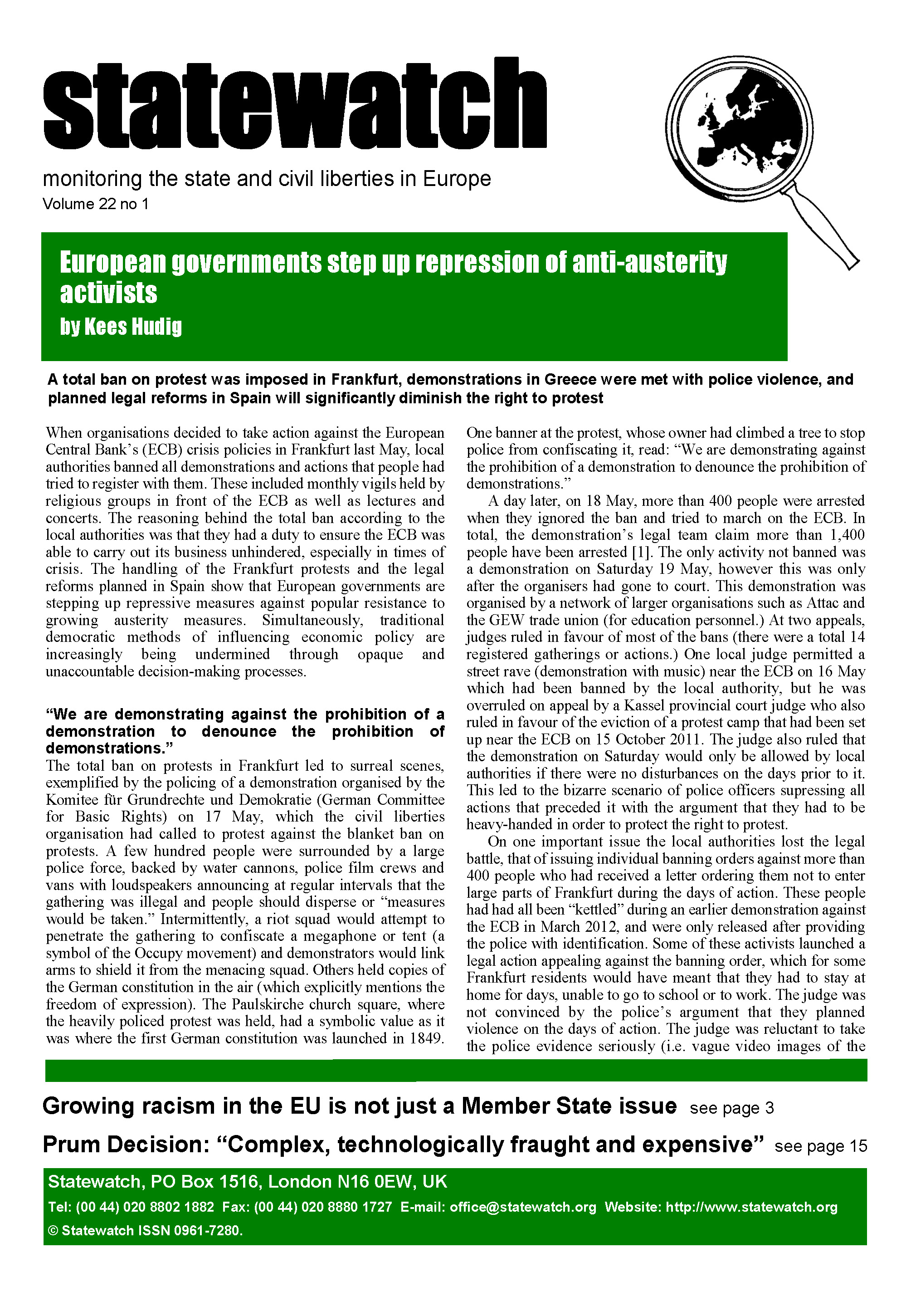
Vol 22 (1): Repression of anti-austerity activists; growing racism in the EU; regulating civil society
Cover story: European governments step up repression of anti-austerity activists
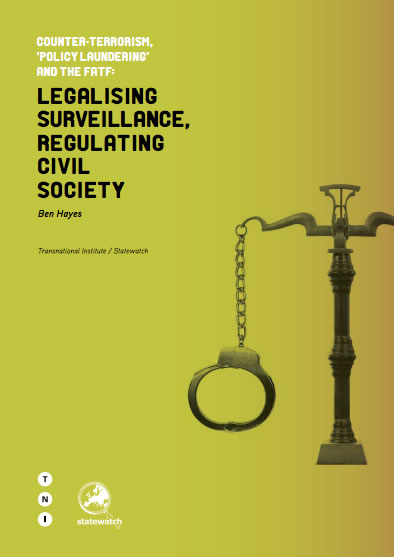
Counter-terrorism, 'policy laundering' and the FATF: legalising surveillance, regulating civil society
This report examines the global framework for countering terrorist financing developed by the Financial Action Task Force (FATF) and other international law enforcement bodies.
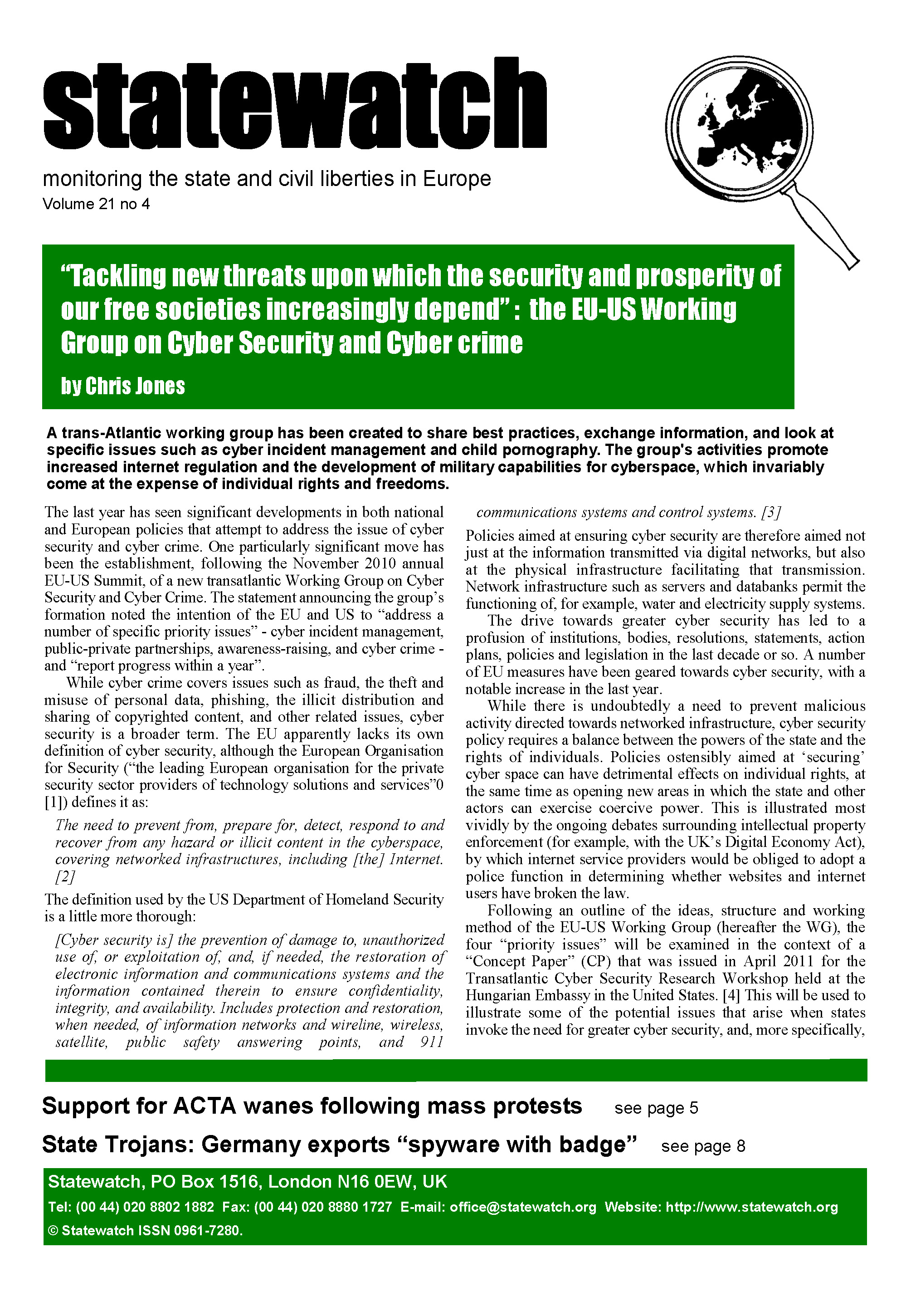
Vol 21 (4): EU-US cybersecurity cooperation; German state trojans; forced returns monitoring
Cover story: “Tackling new threats upon which the security and prosperity of our free societies increasingly depend” : the EU-US Working Group on Cyber Security and Cyber crime
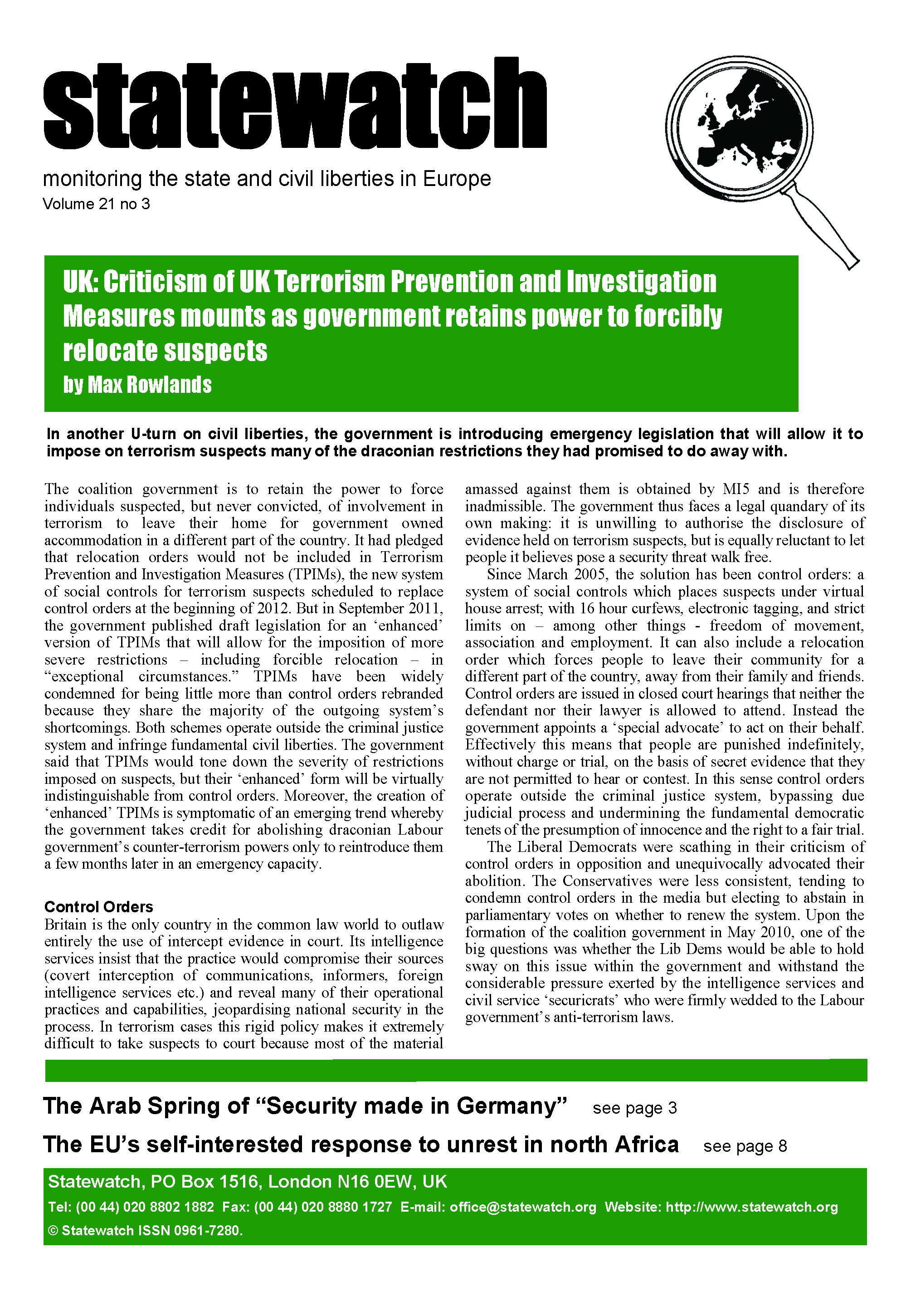
Vol 21 (3): Criticism of UK terrorism measures; the Arab Spring and the EU; telecoms interception in Dresden
Cover story: Criticism of UK Terrorism Prevention and Investigation Measures mounts as government retains power to forcibly relocate suspects
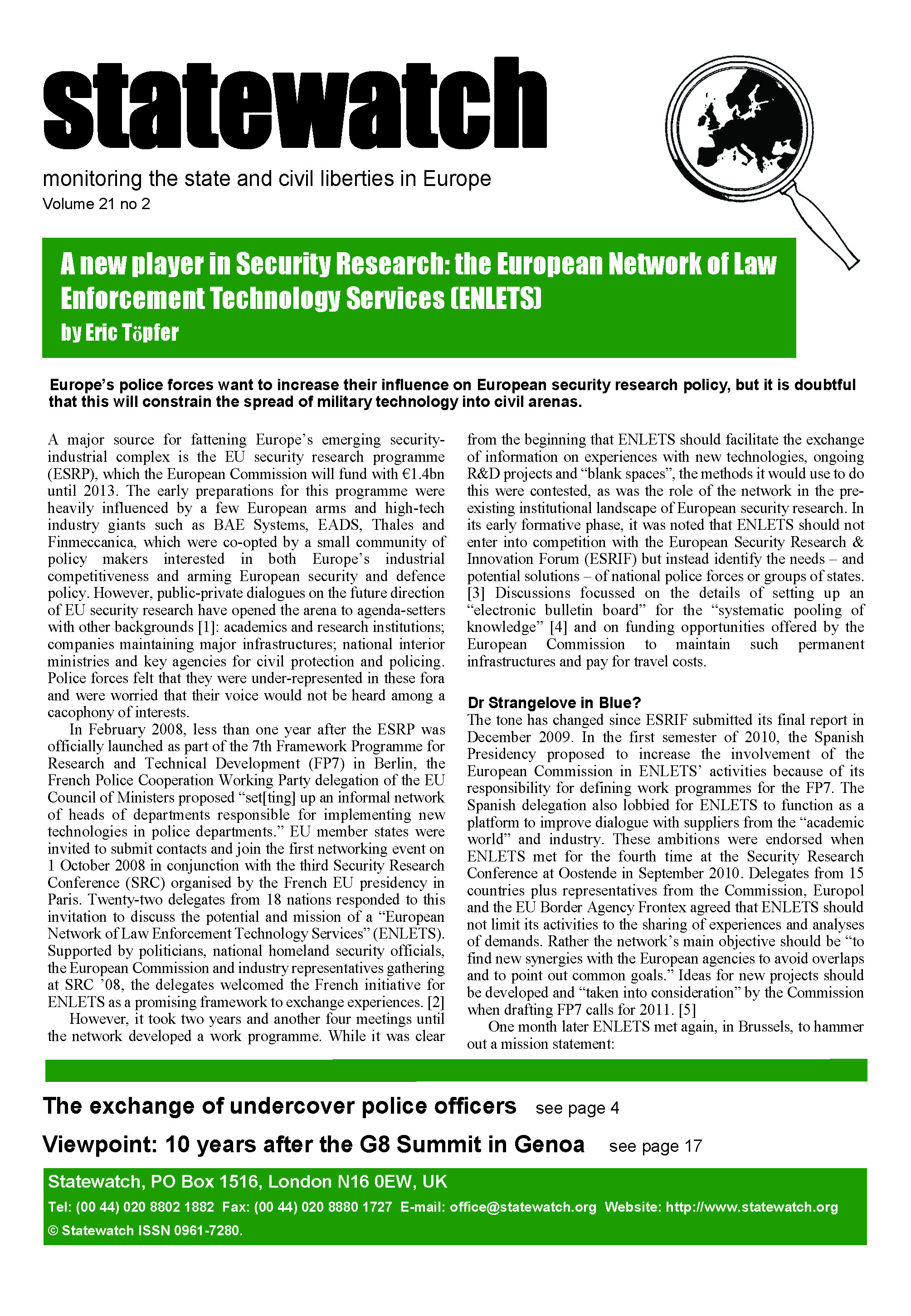
Vol 21 (2): The police and security research; Anglo-German undercover police exchanges; ten years after the Genoa G8
Cover story: A new player in Secuirty Research: the European Network of Law Enforcement Technology Services (ENLETS)
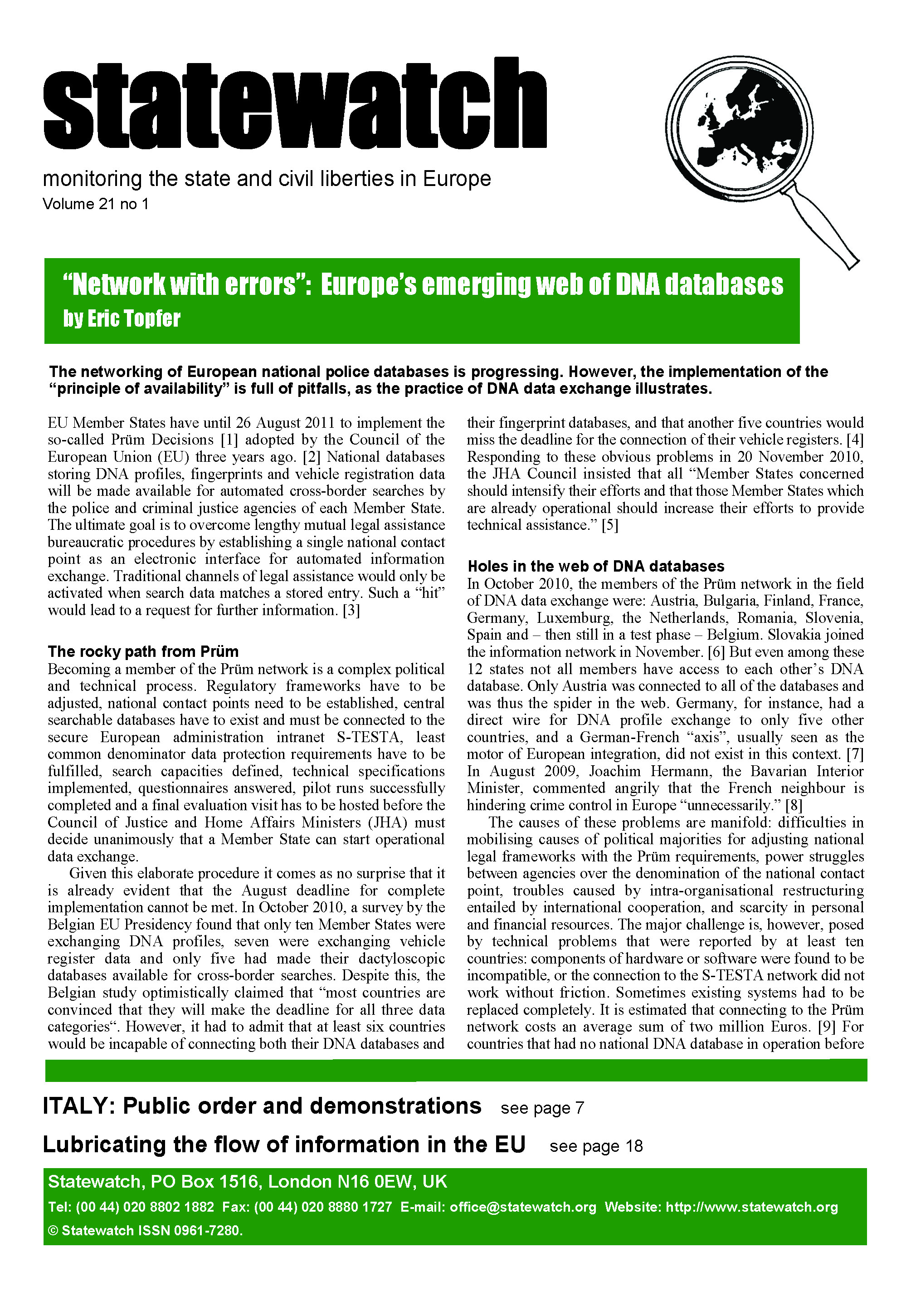
Vol 21 (1): Europe's DNA databases; the death of Jimmy Mubenga; German police shooting
Cover story: “Network with errors”: Europe’s emerging web of DNA databases
Data exchange, exclusion and denial at the borders
<p>Upholding the right to an effective remedy</p>
Outsourcing borders
<p>Monitoring EU externalisation policy</p>
Transnational security architecture, civic space and human rights
<p>This project aims to strengthen global civil society efforts to counter the use of international counter-terrorism and security norms as a means for undermining or restricting civic space and human rights.</p>
Migration Control
<p>Who gets paid, to stop the world's refugees?</p>
Moving Stories
<p>How journalism plays follow-my-leader with rhetoric of negativity</p>
Invisible Borders
<p>A prize-winning cross-border investigative journalism project</p>
EU justice and home affairs agencies
<p>Transparency, accountability and fundamental rights</p>
The “security playbook” and migrants’ rights activism
<p>Examining the criminalization of migrants’ rights work and how this is driven by or intersects with the overreach and abuse of security and counter-terrorism laws, policies, measures, and technological tools.</p>
Following the roadmap: unmasking the EU’s security AI plans
<p>Exposing and explaining security AI projects being undertaken behind closed doors by national and EU officials.</p>
Spotted an error? If you've spotted a problem with this page, just click once to let us know.